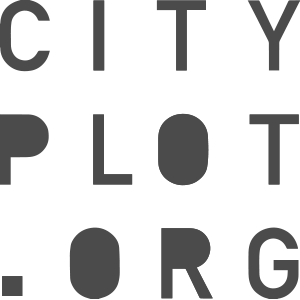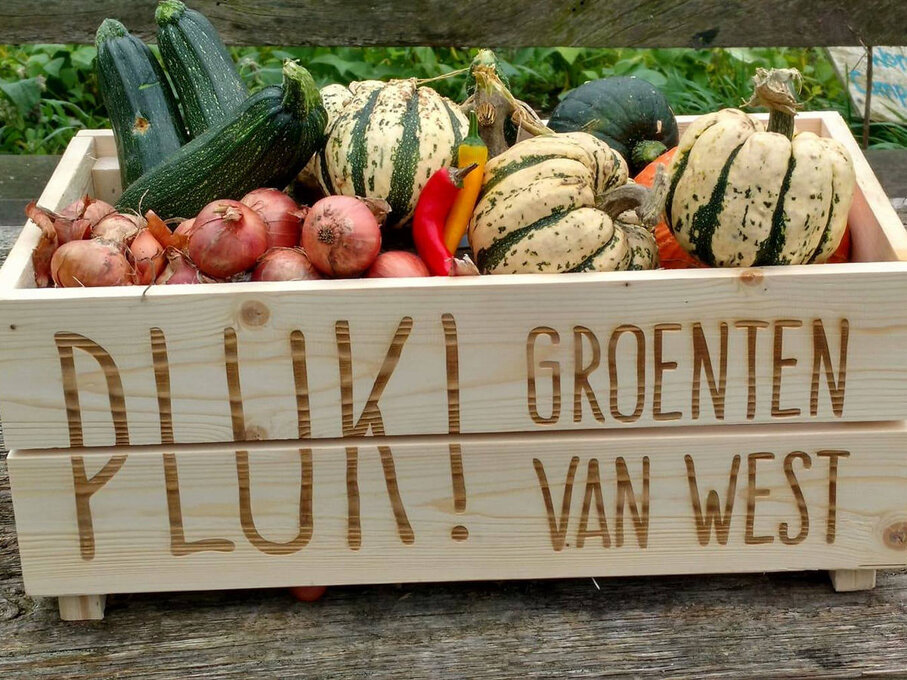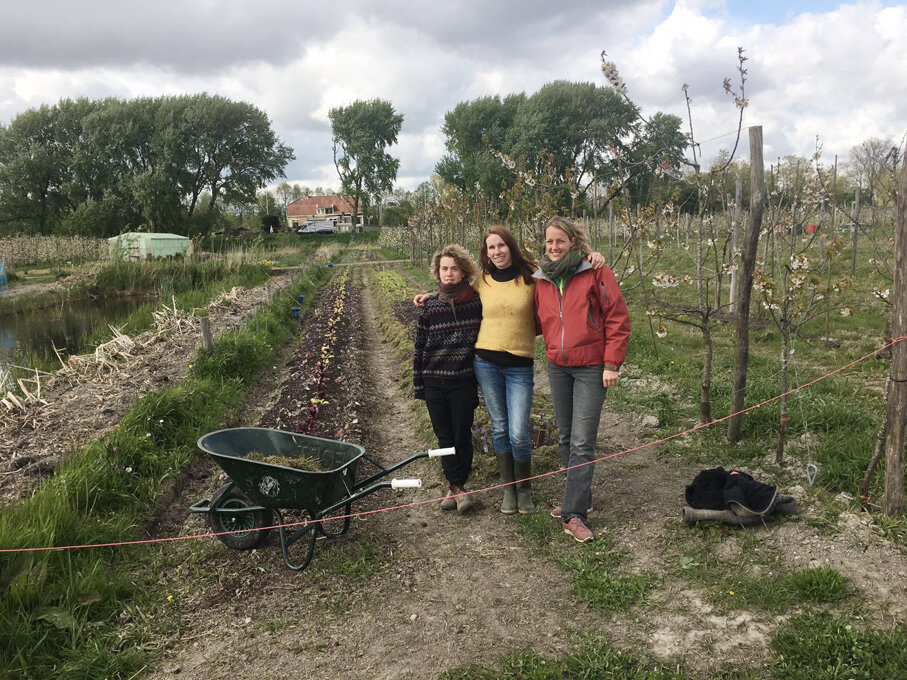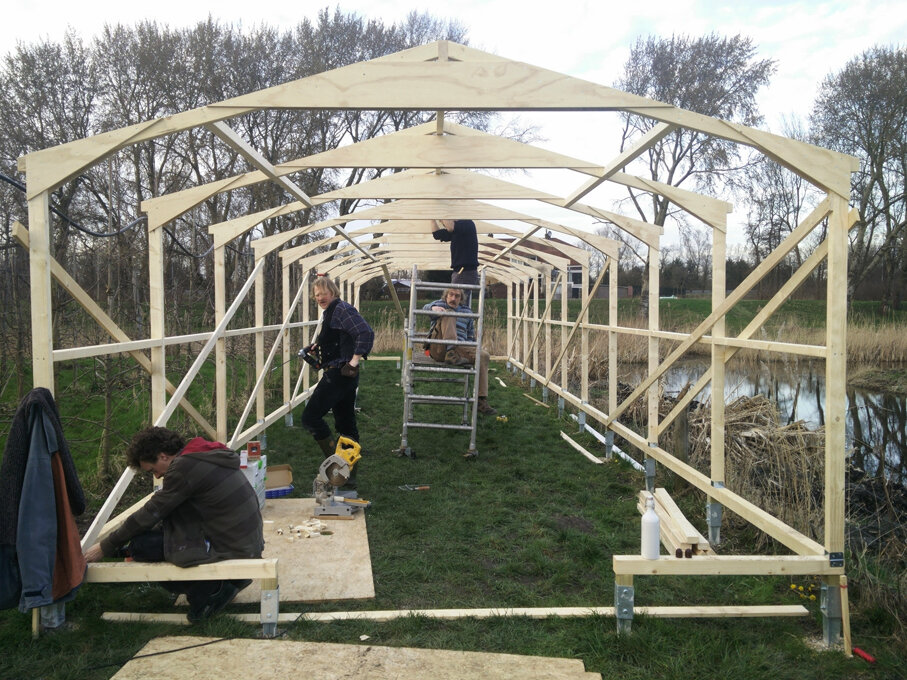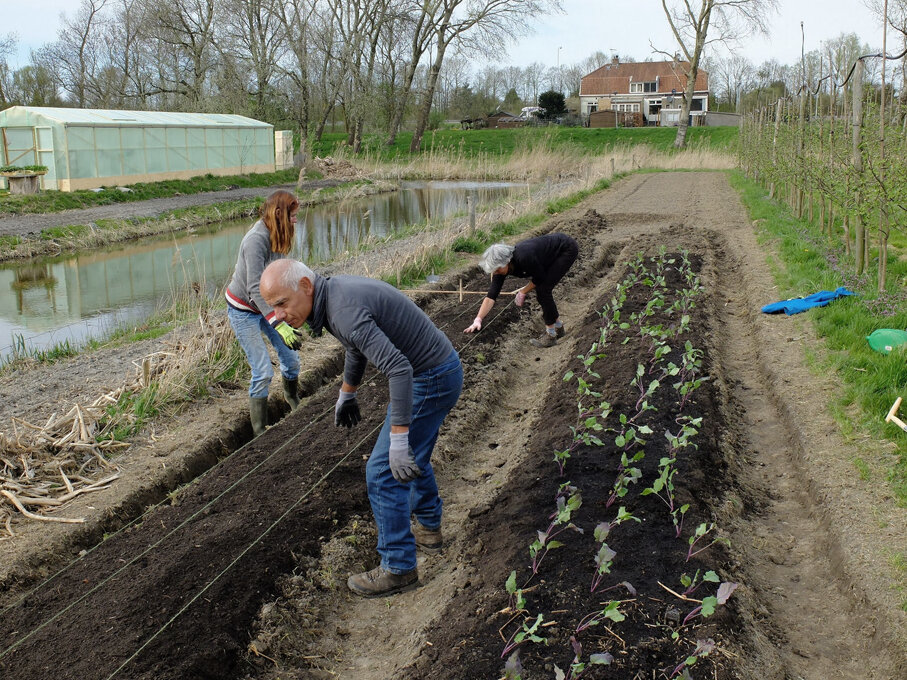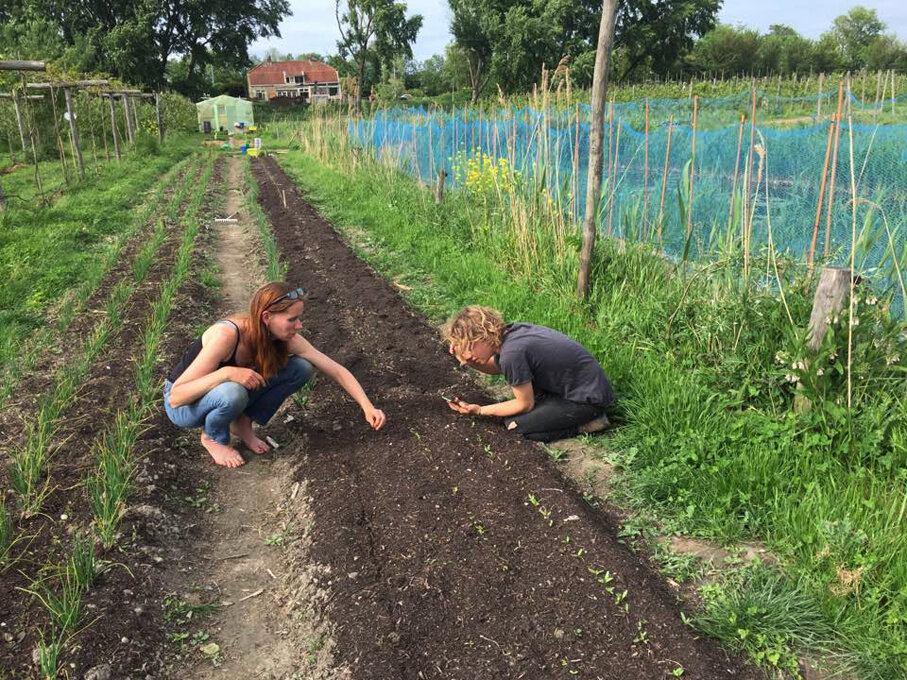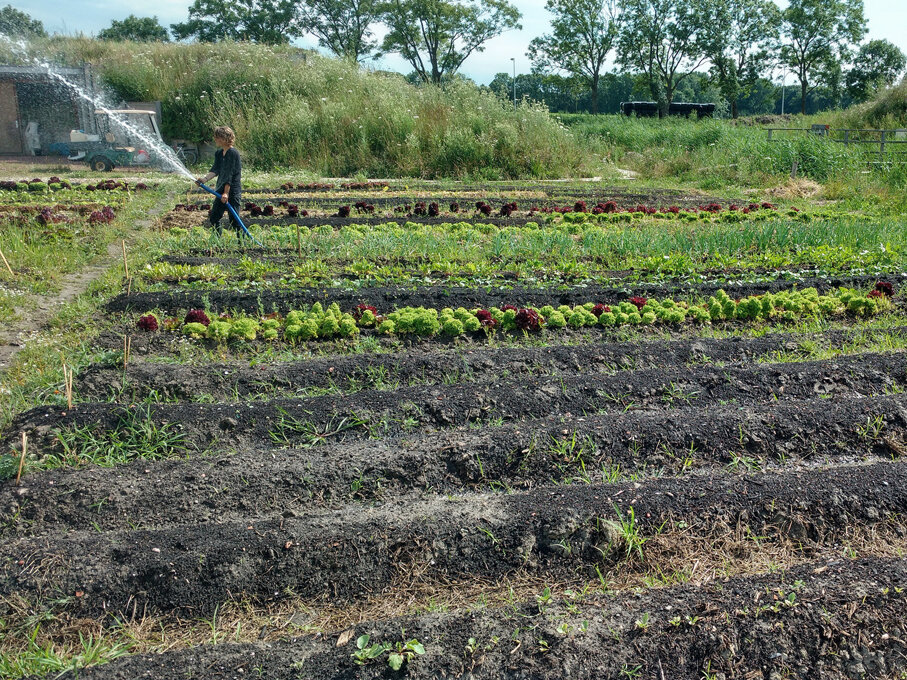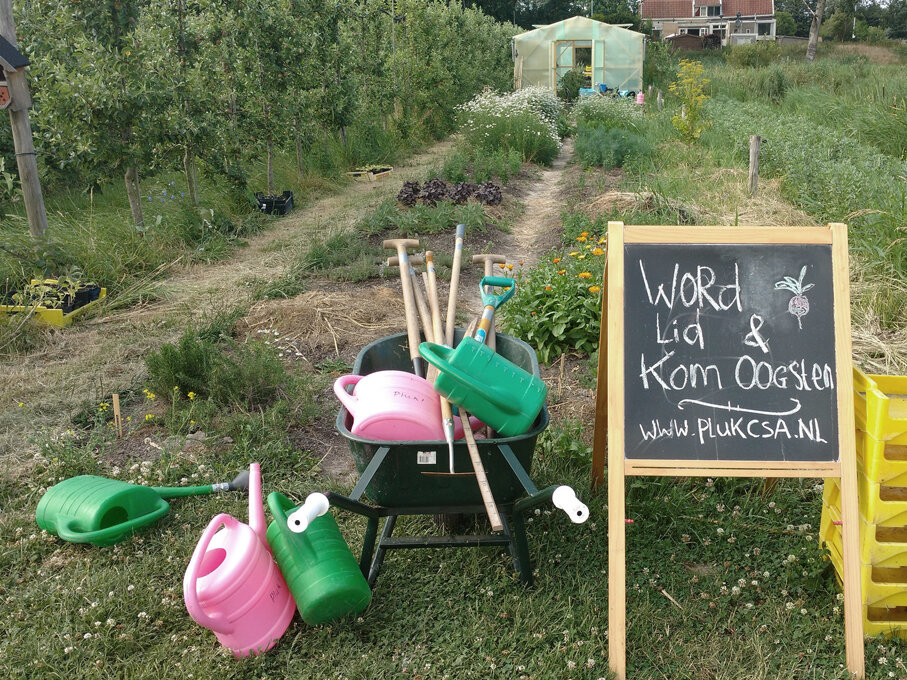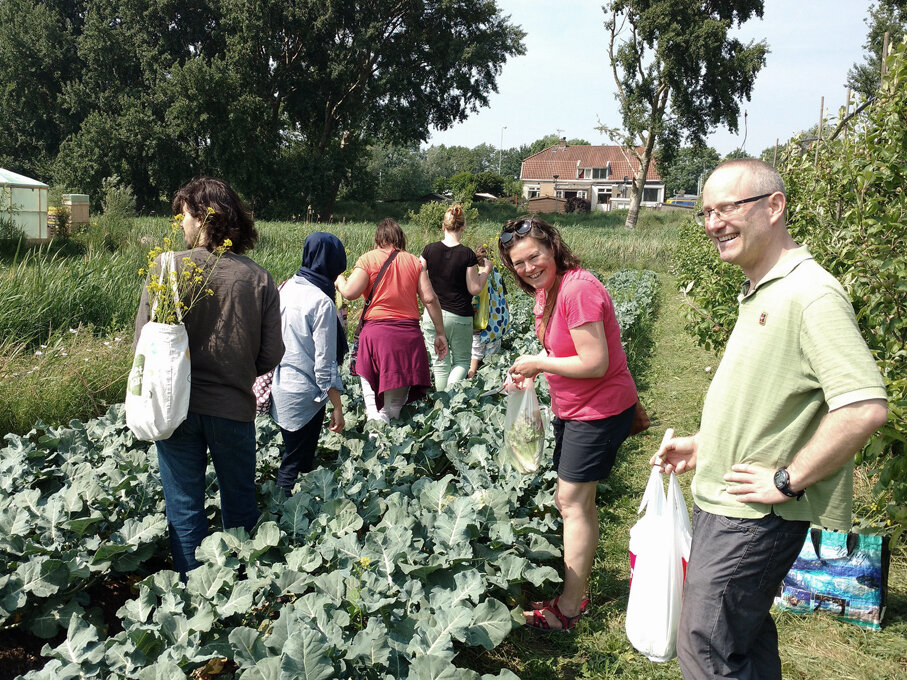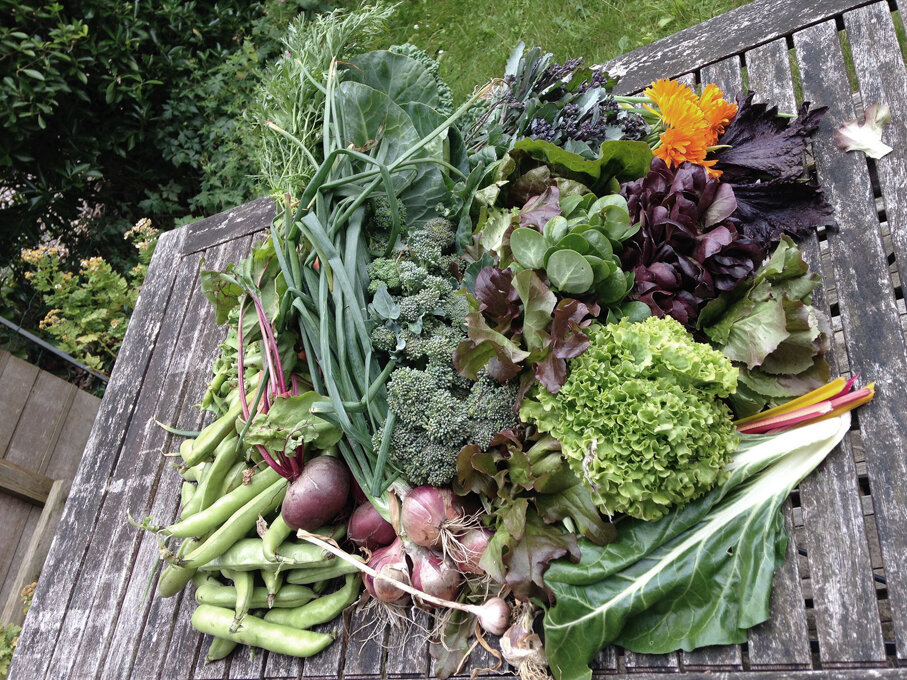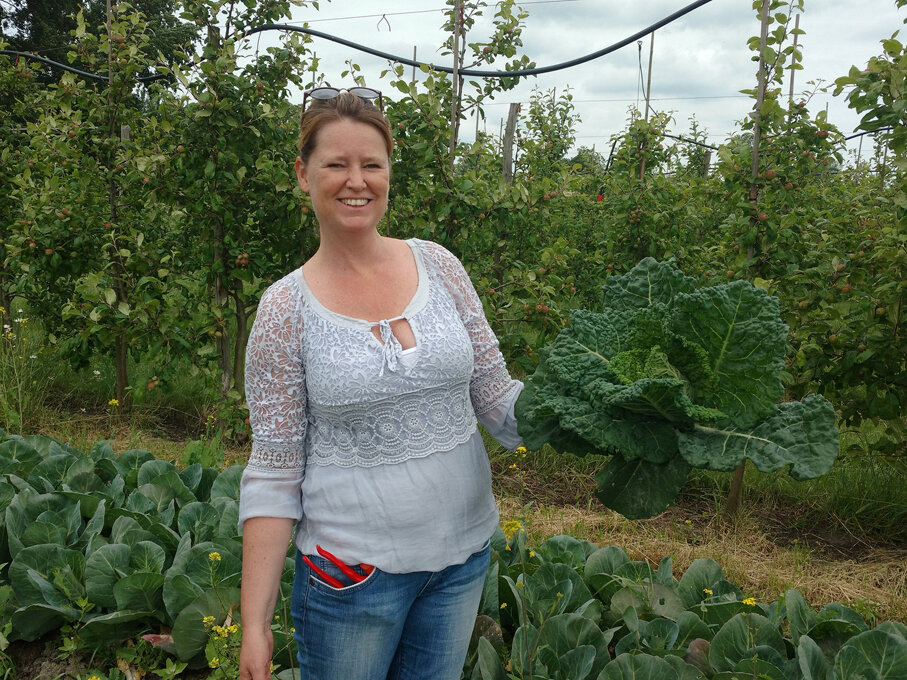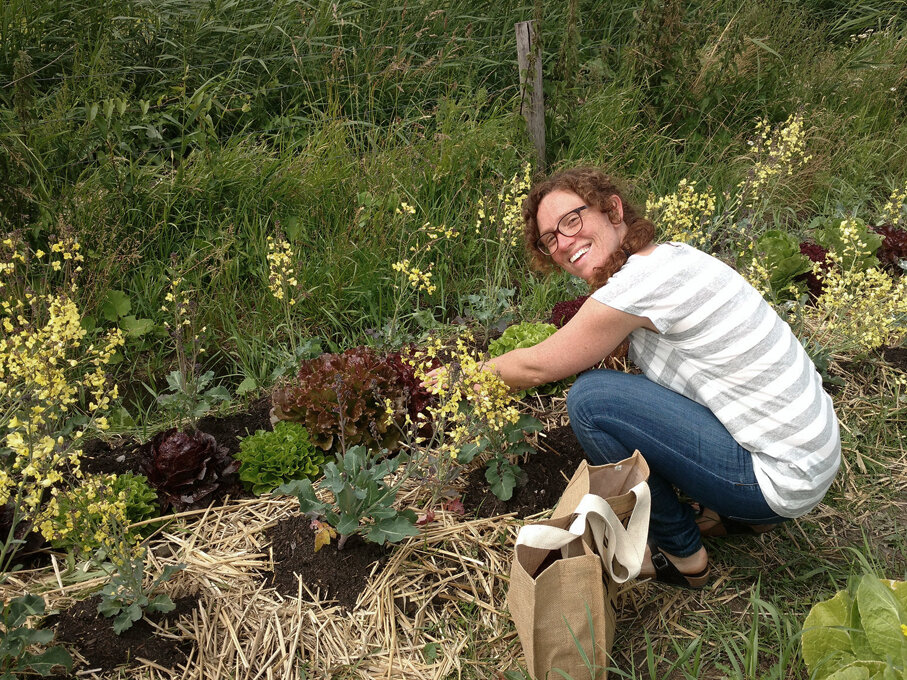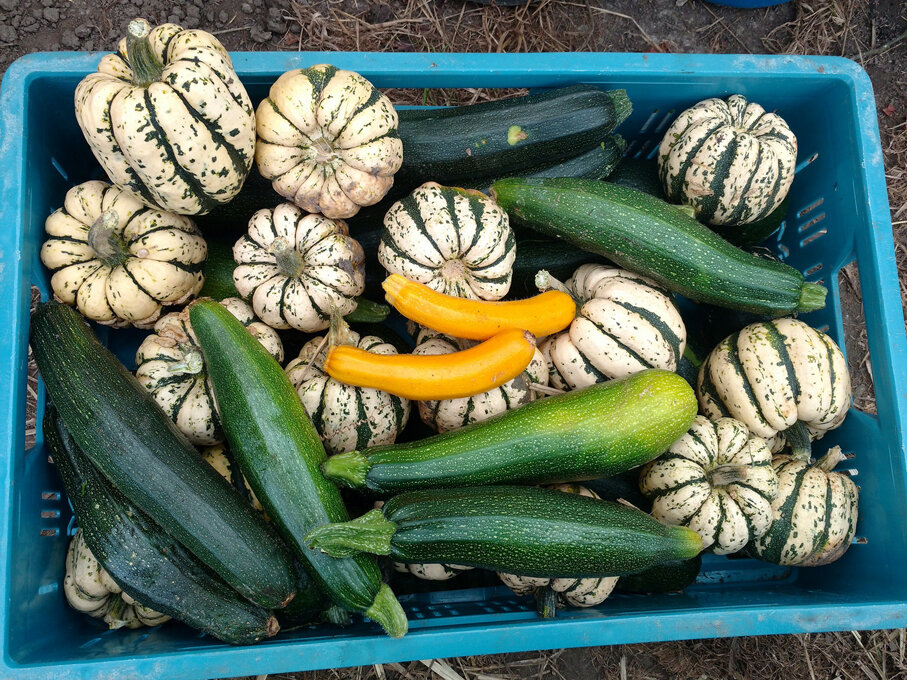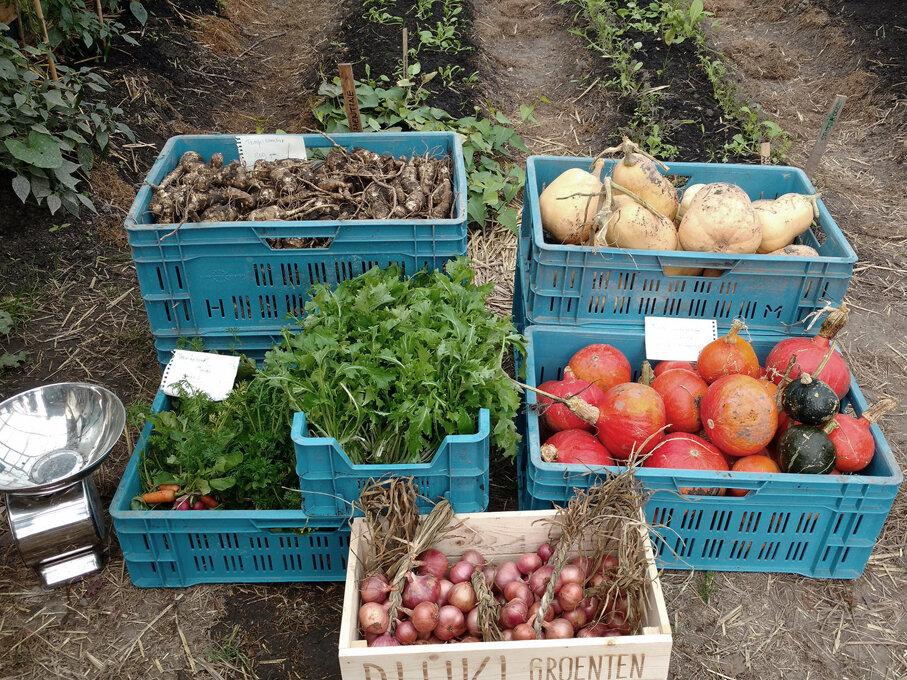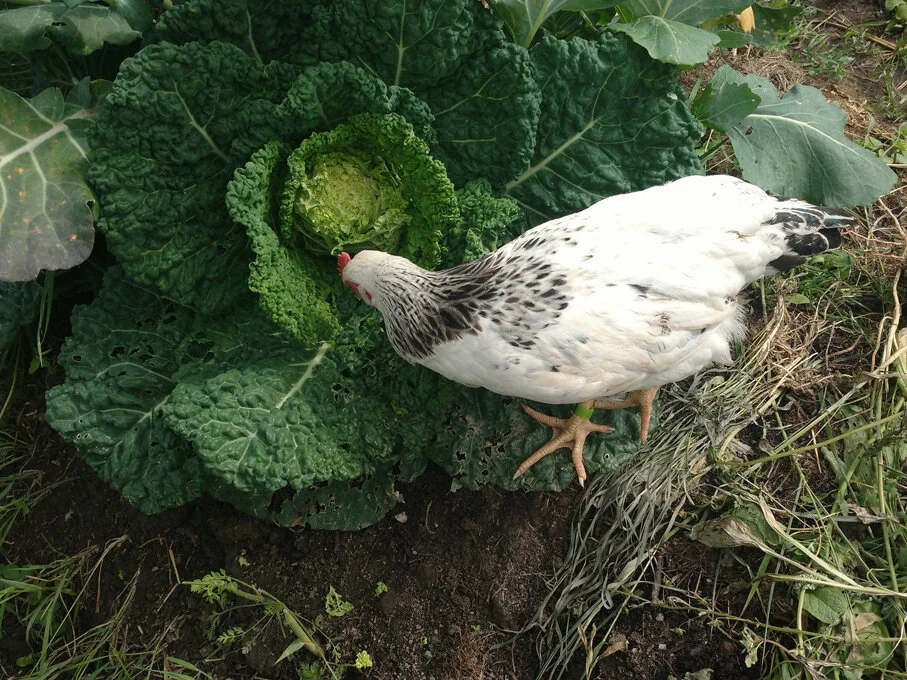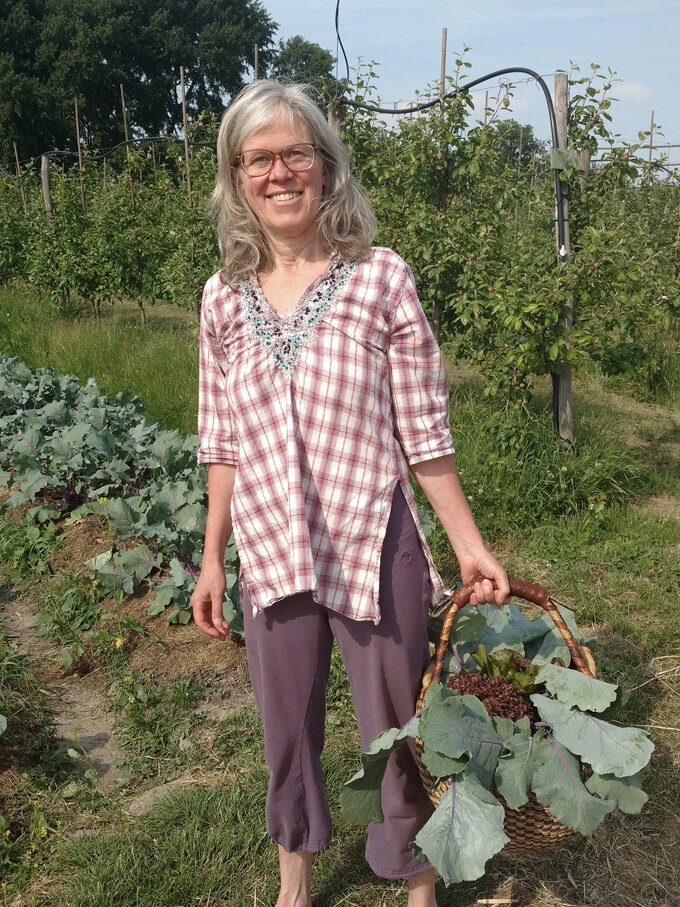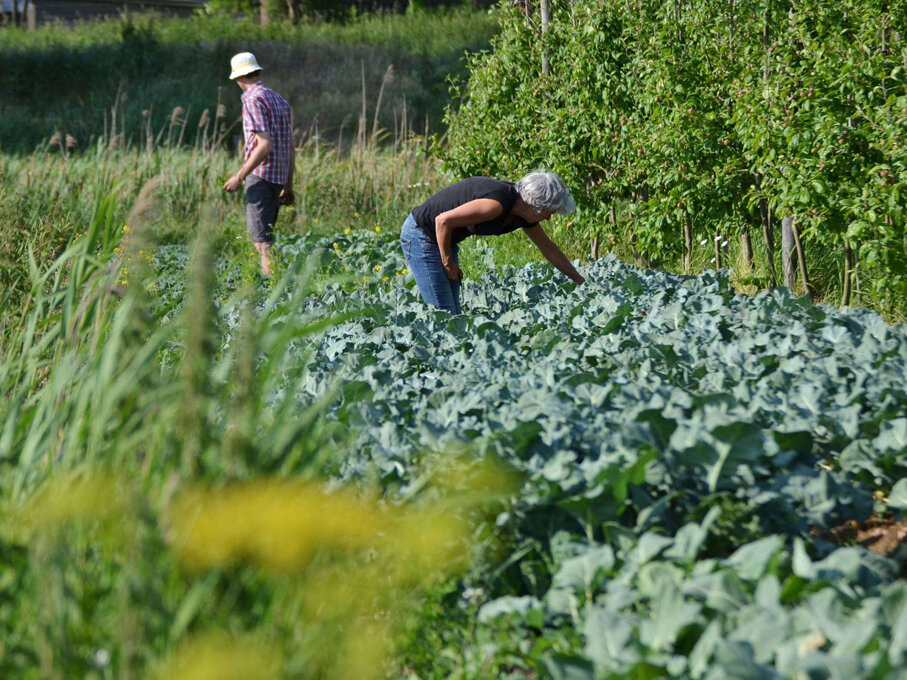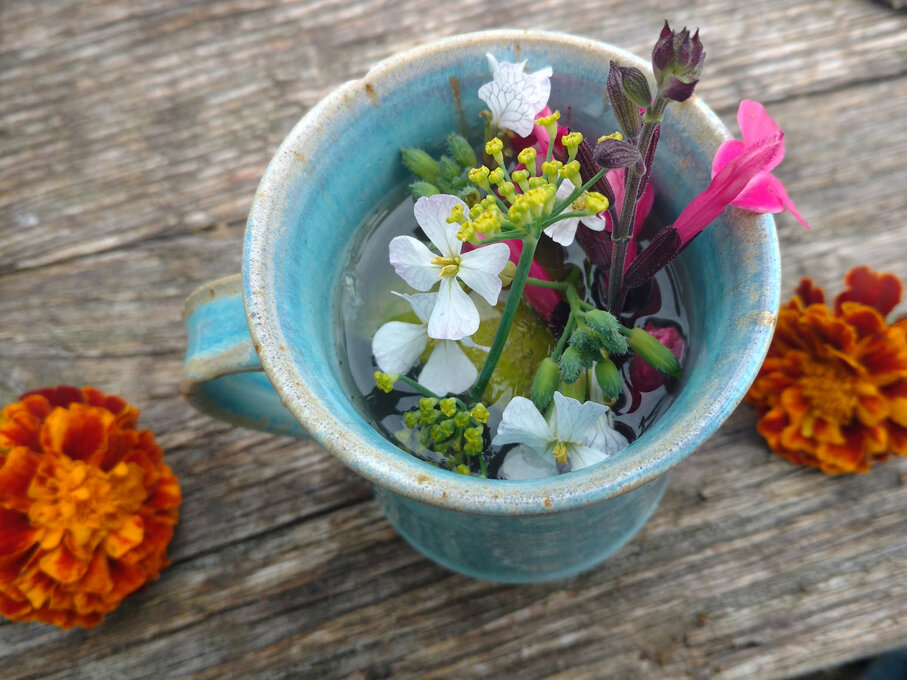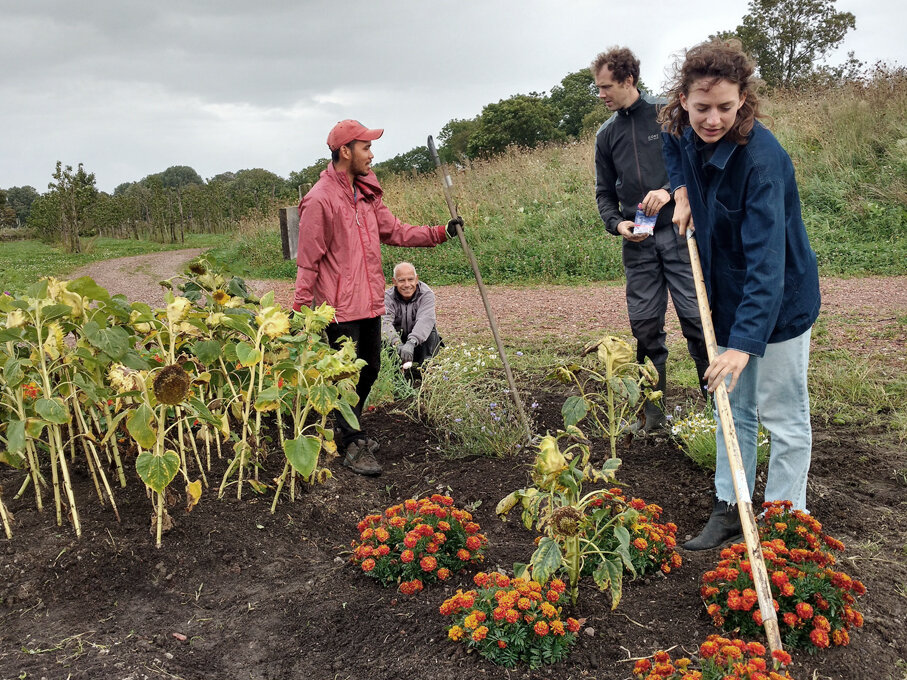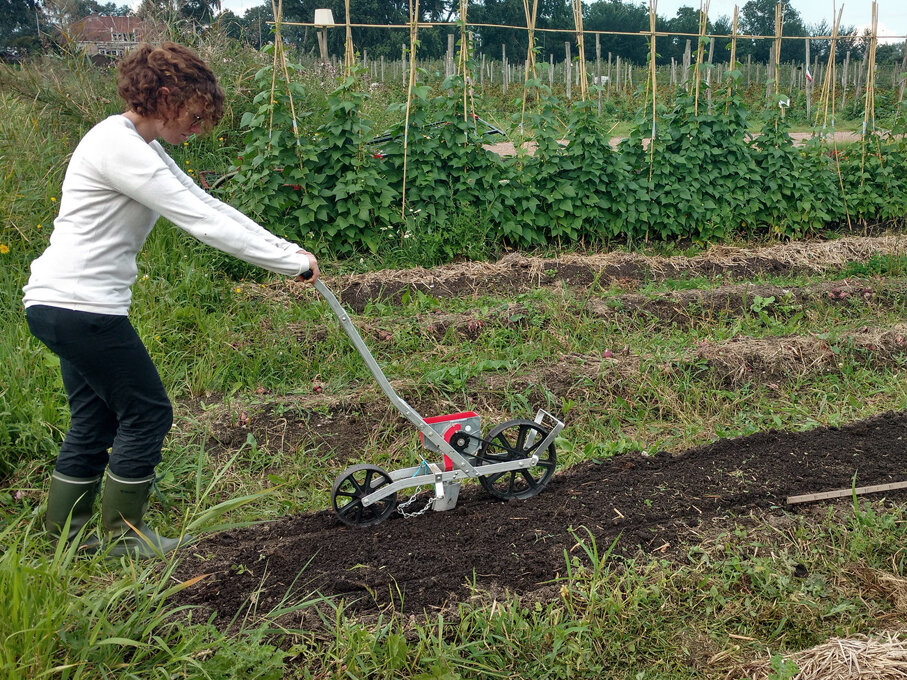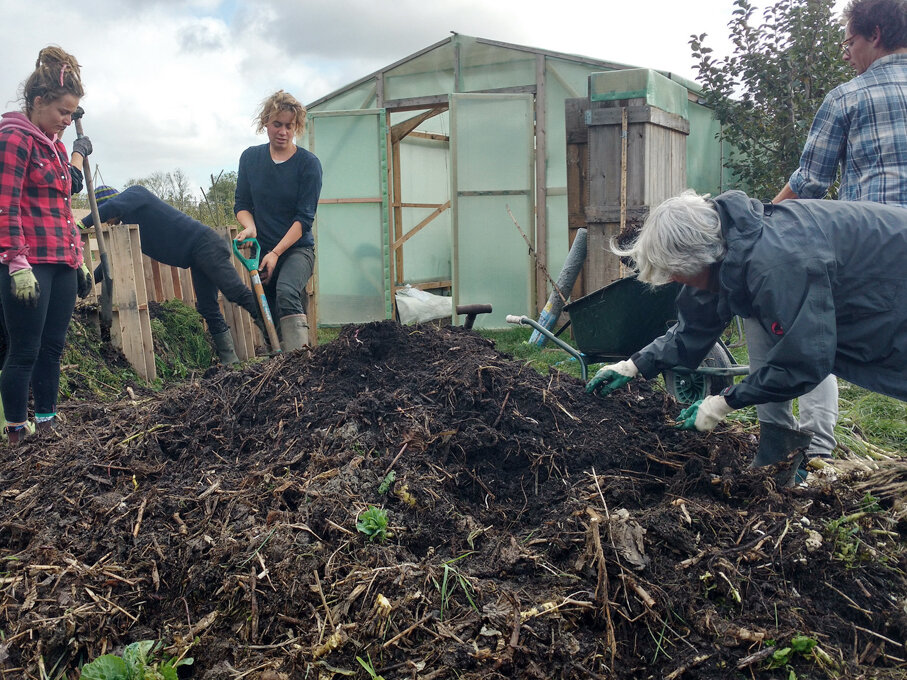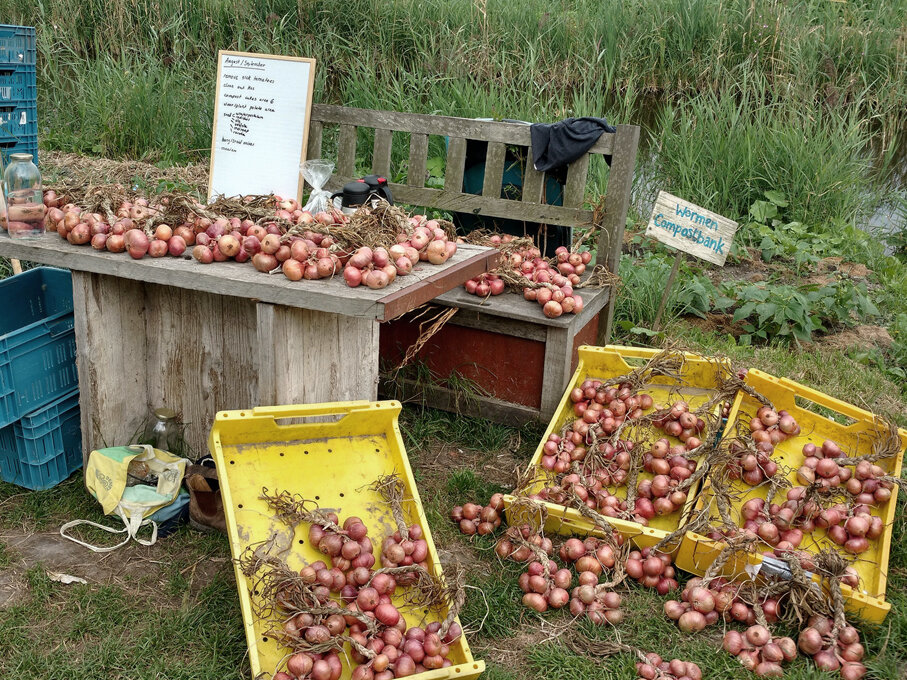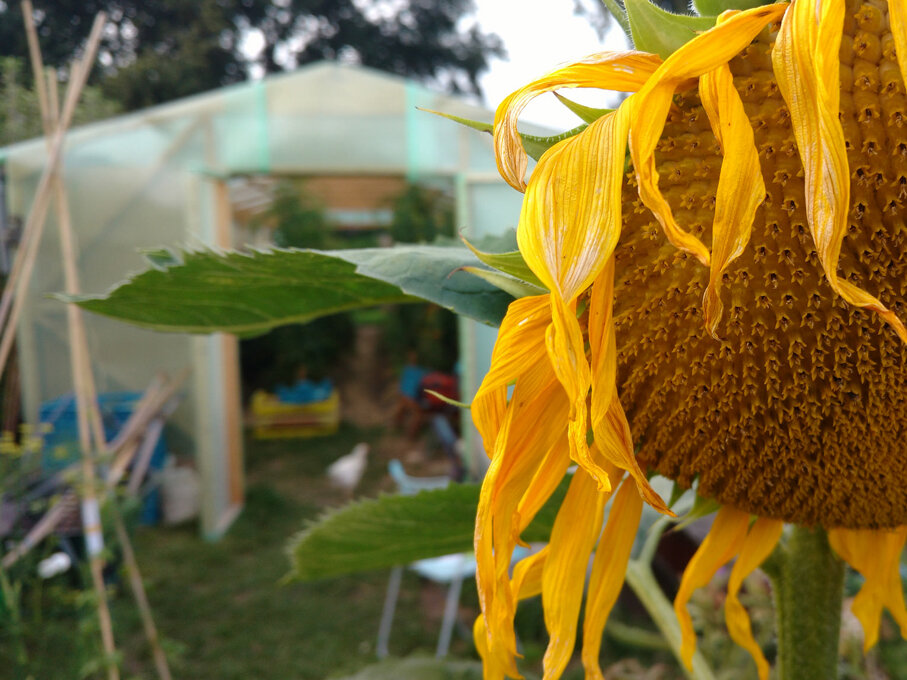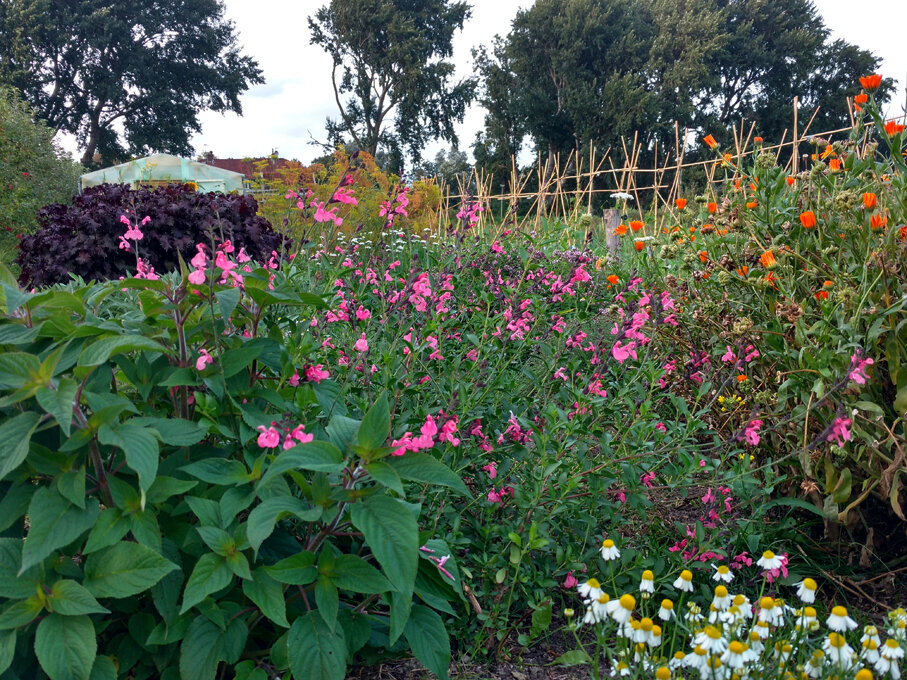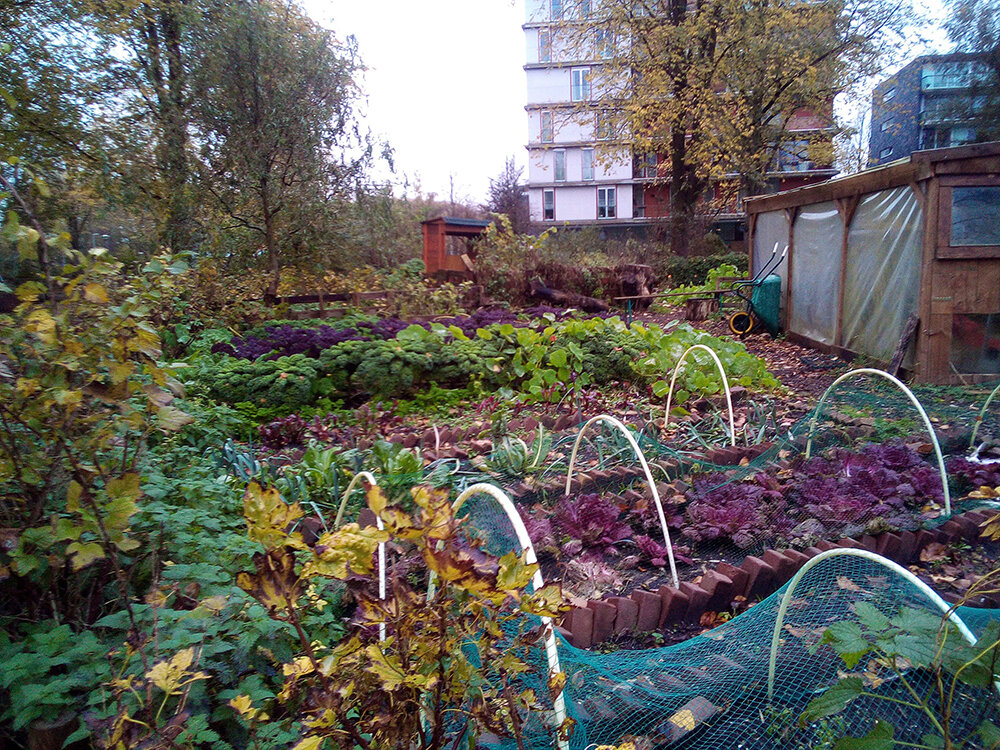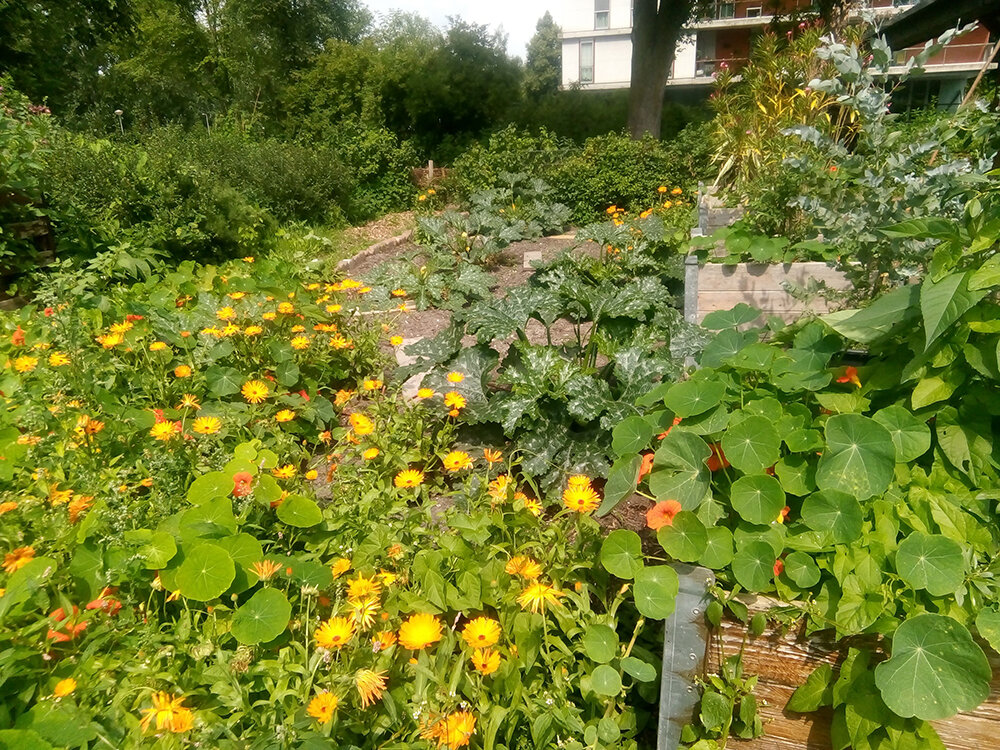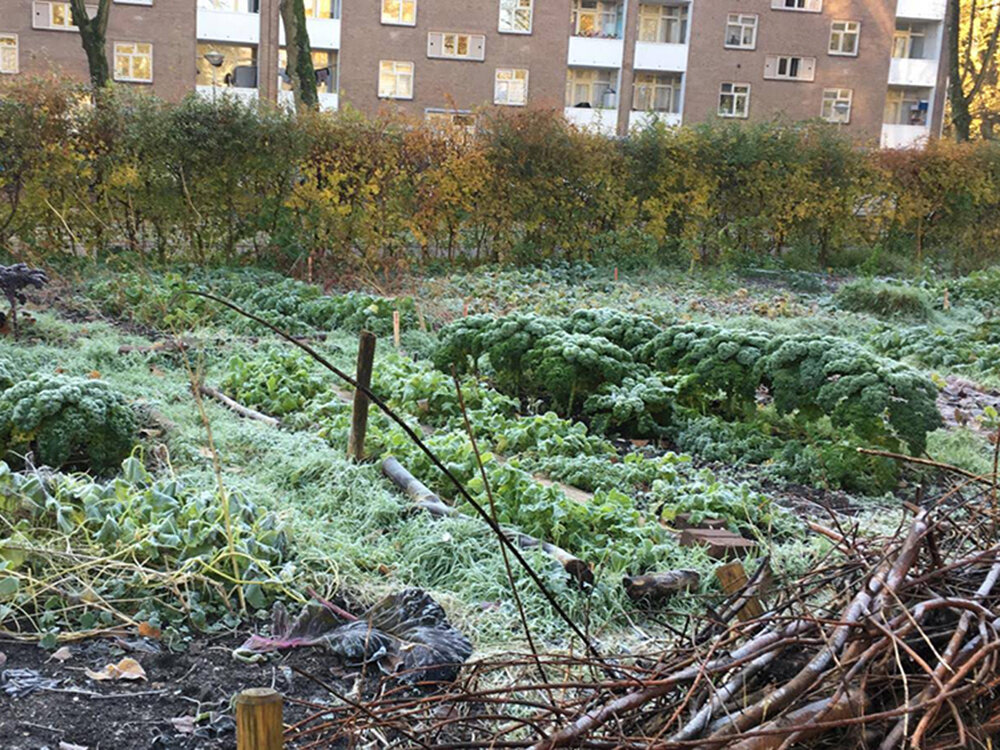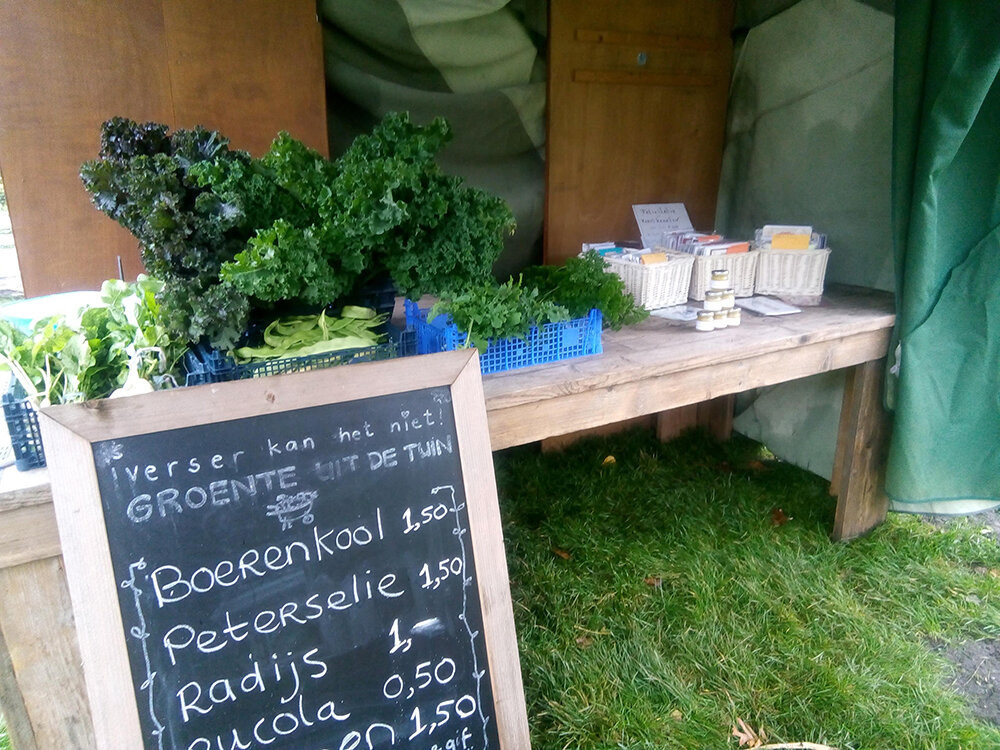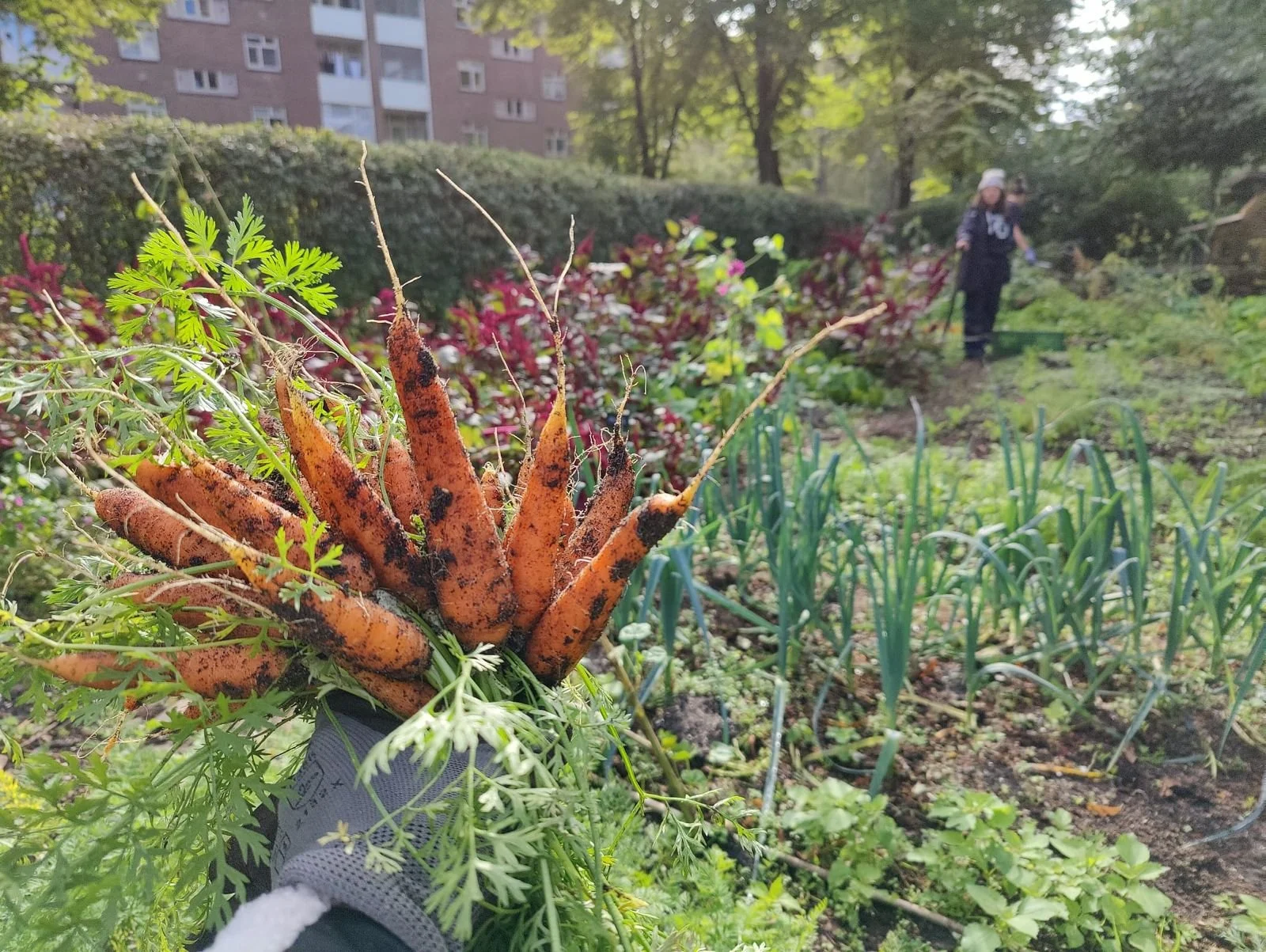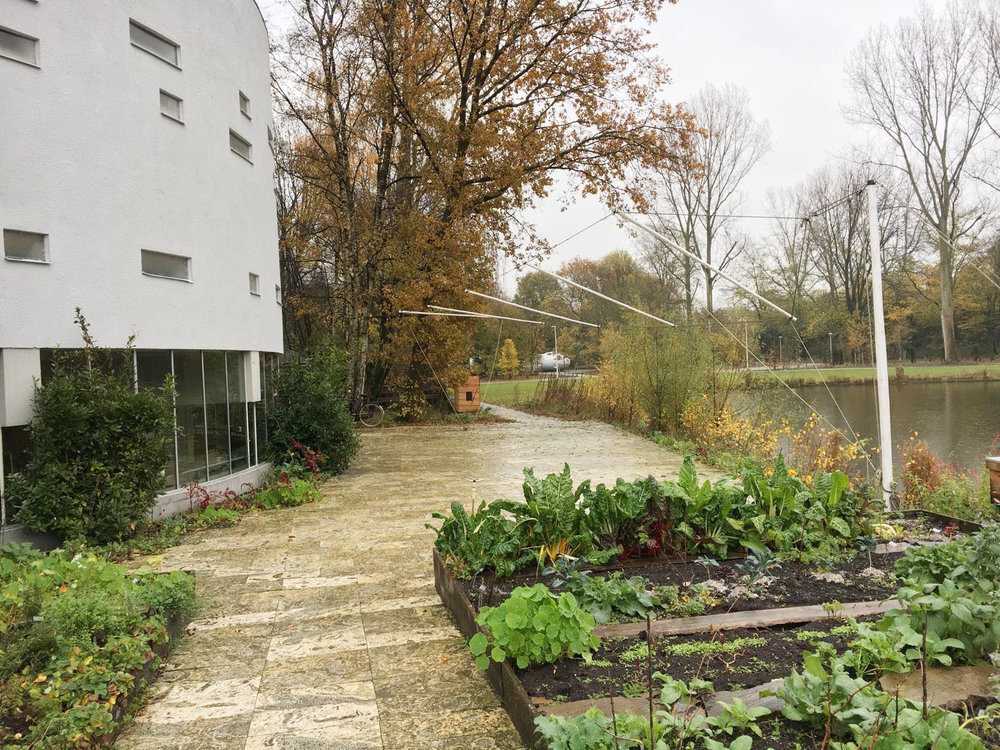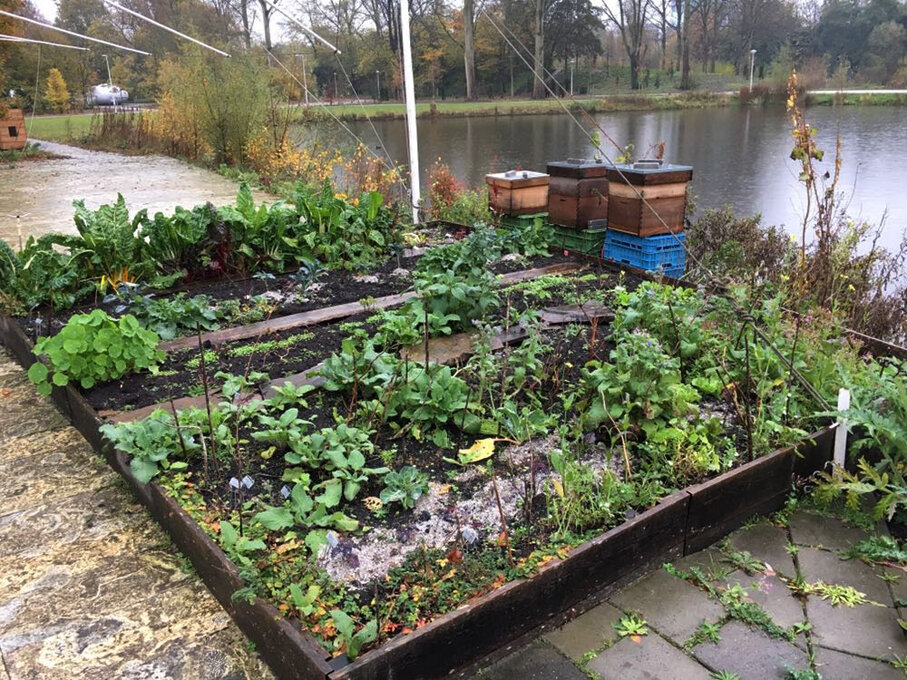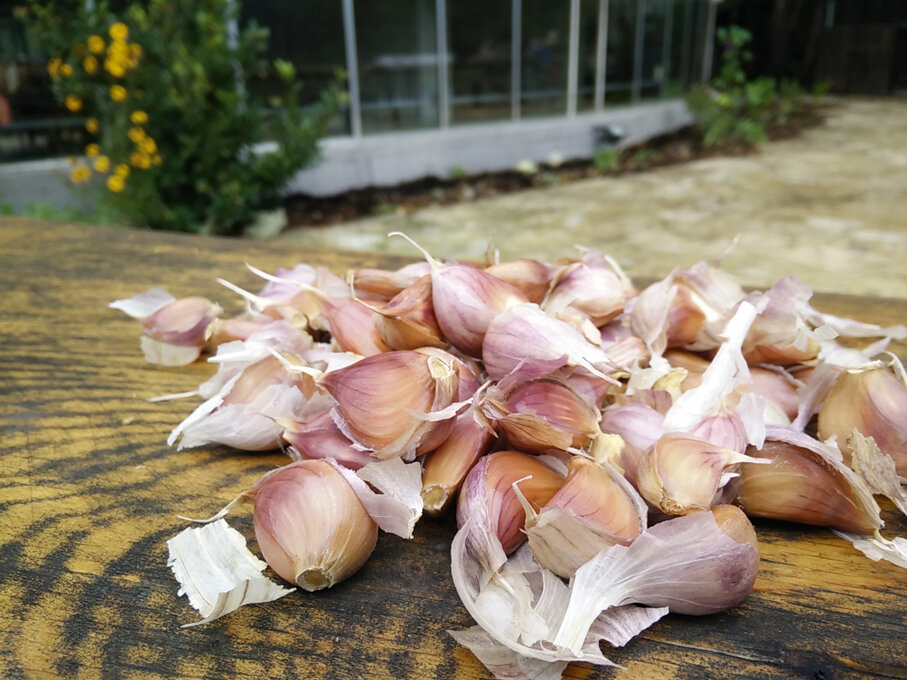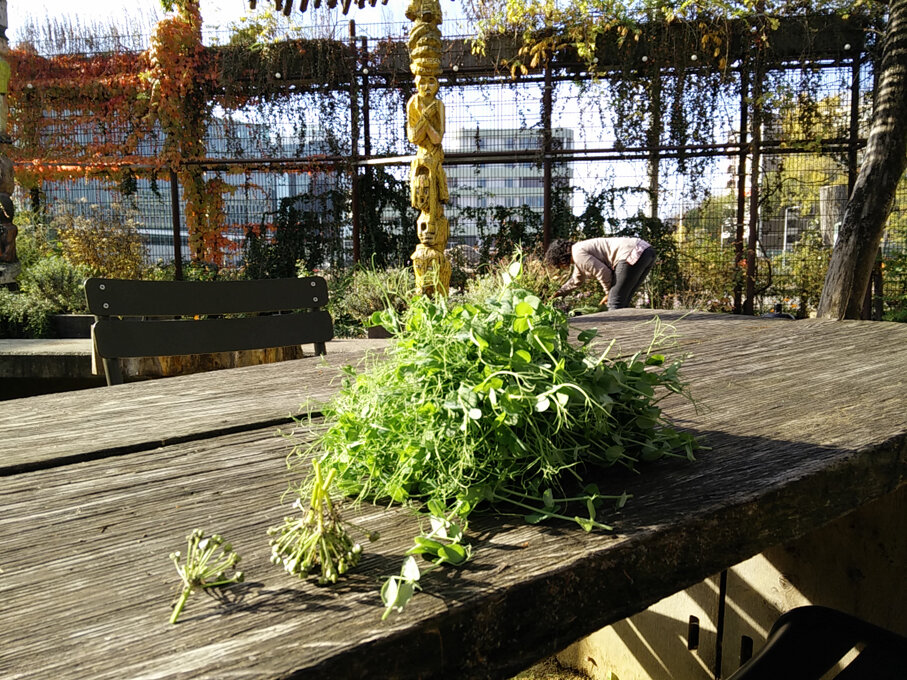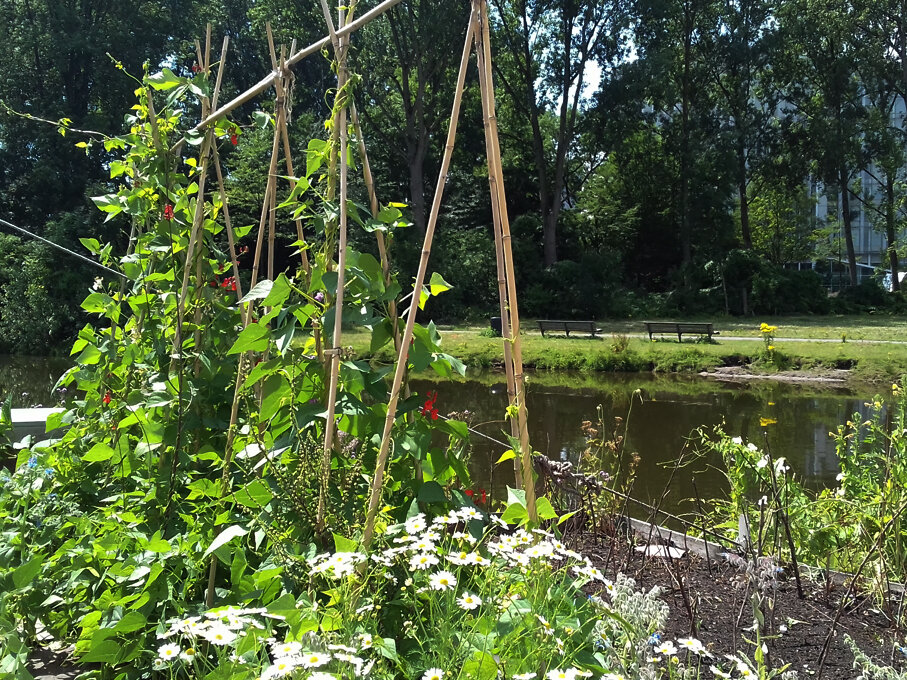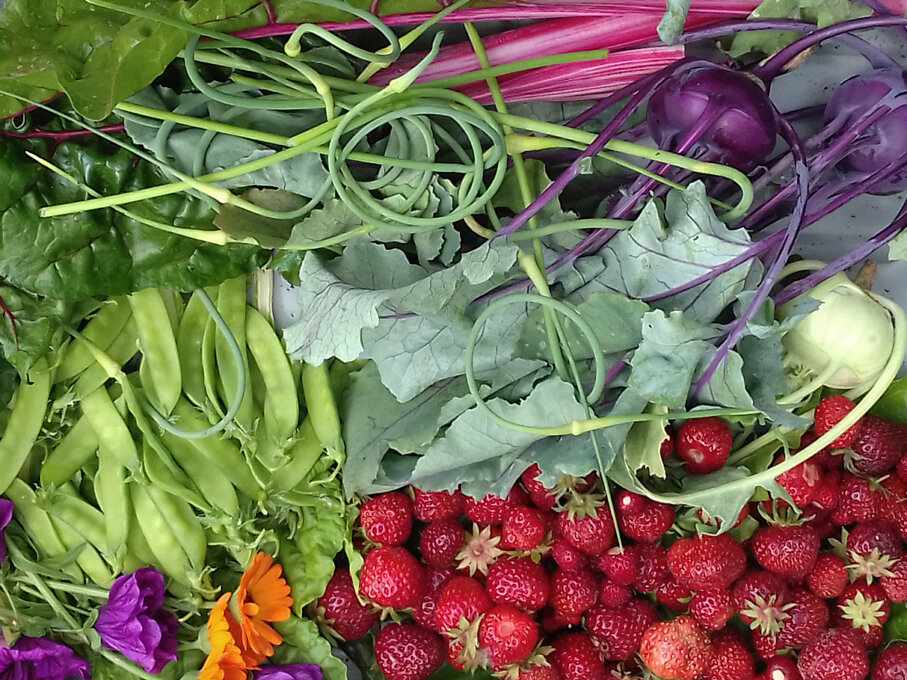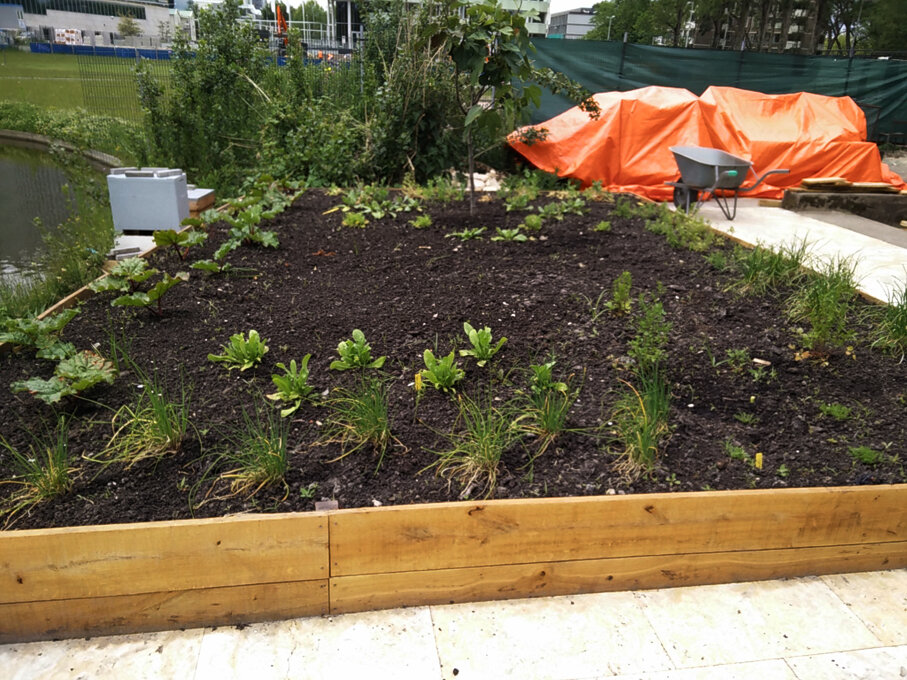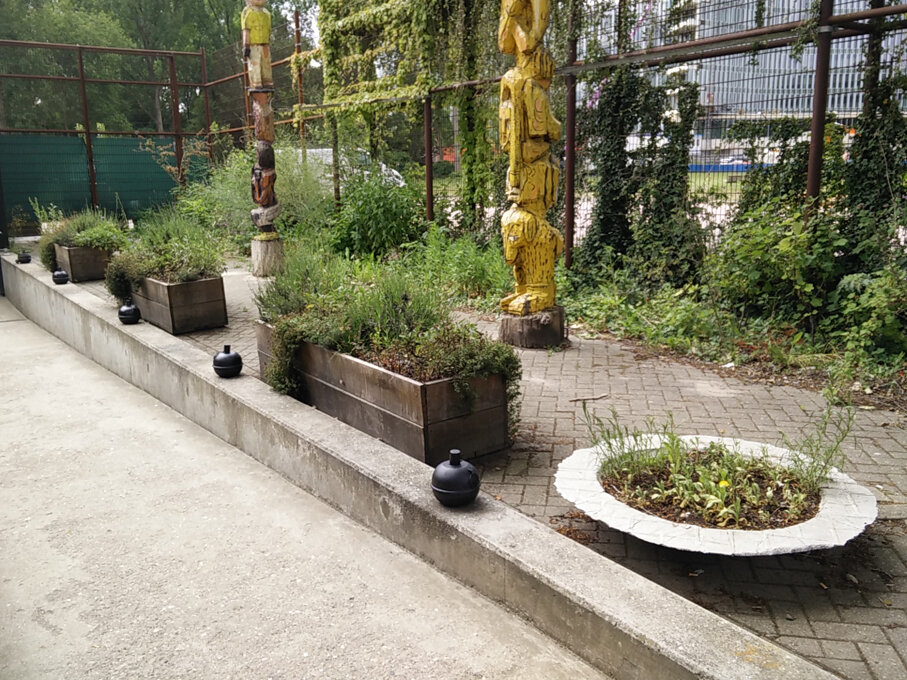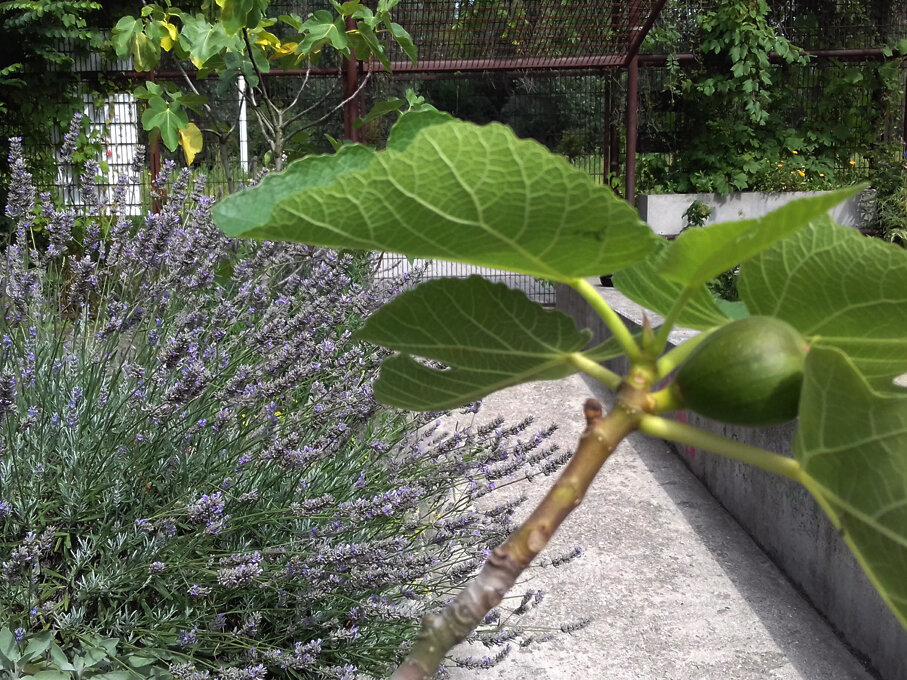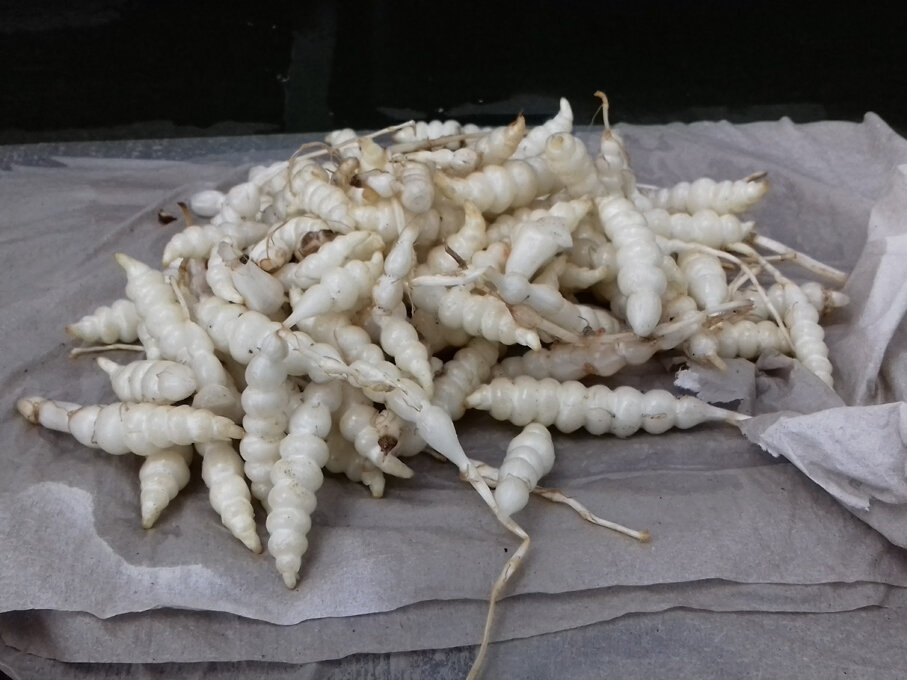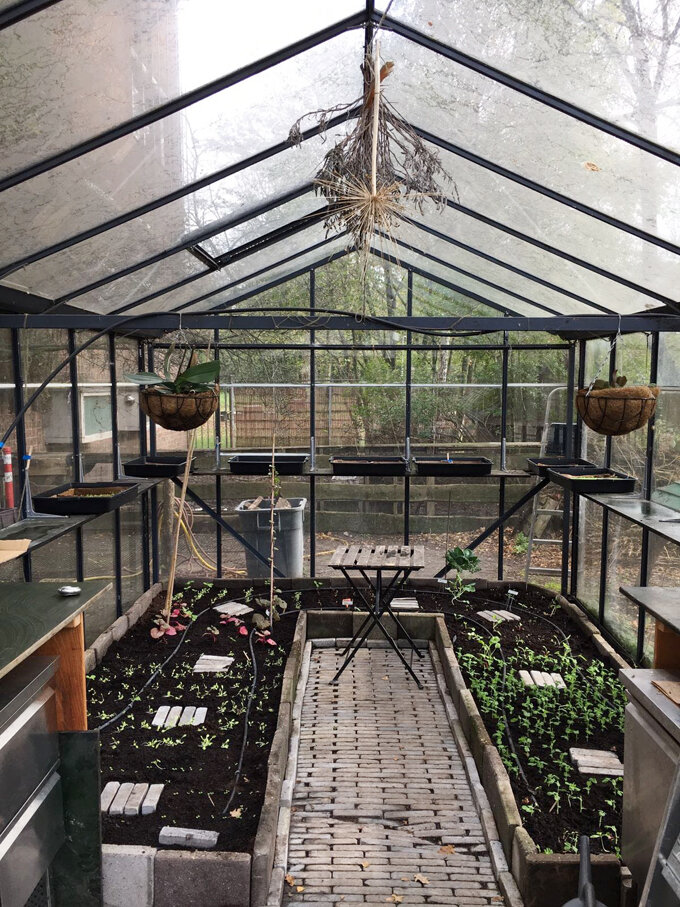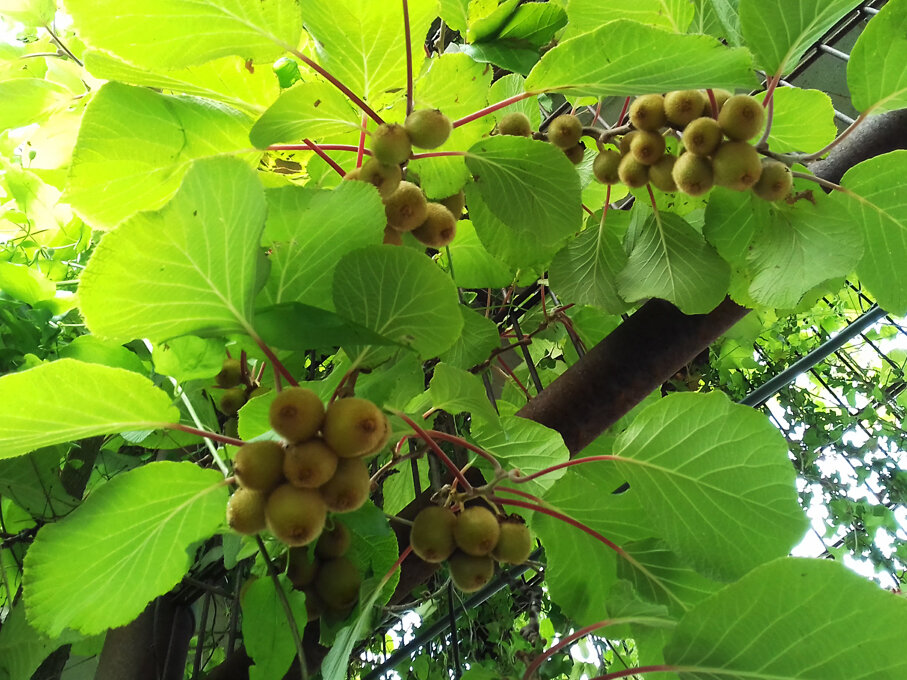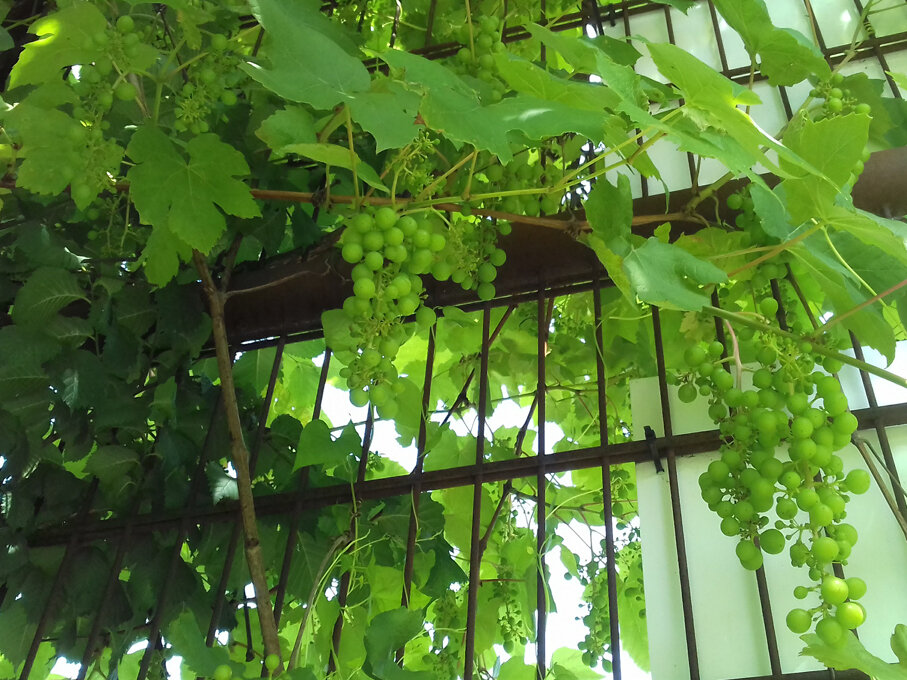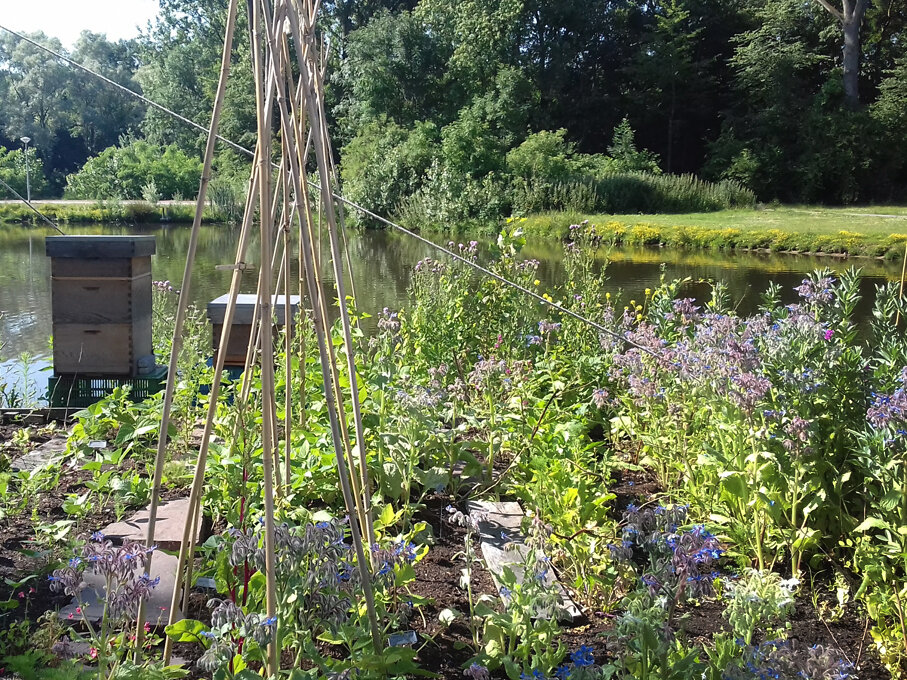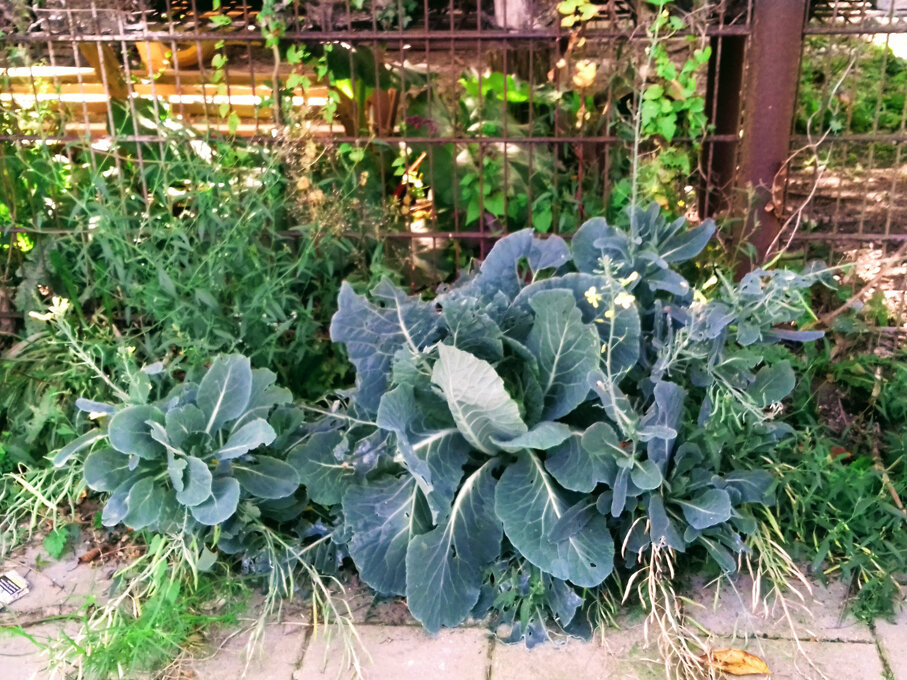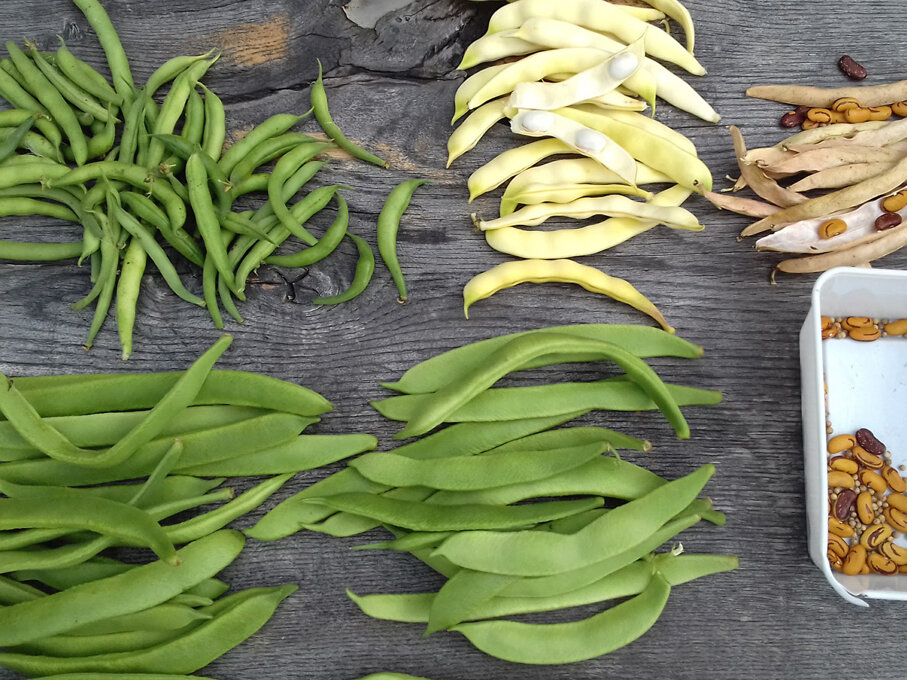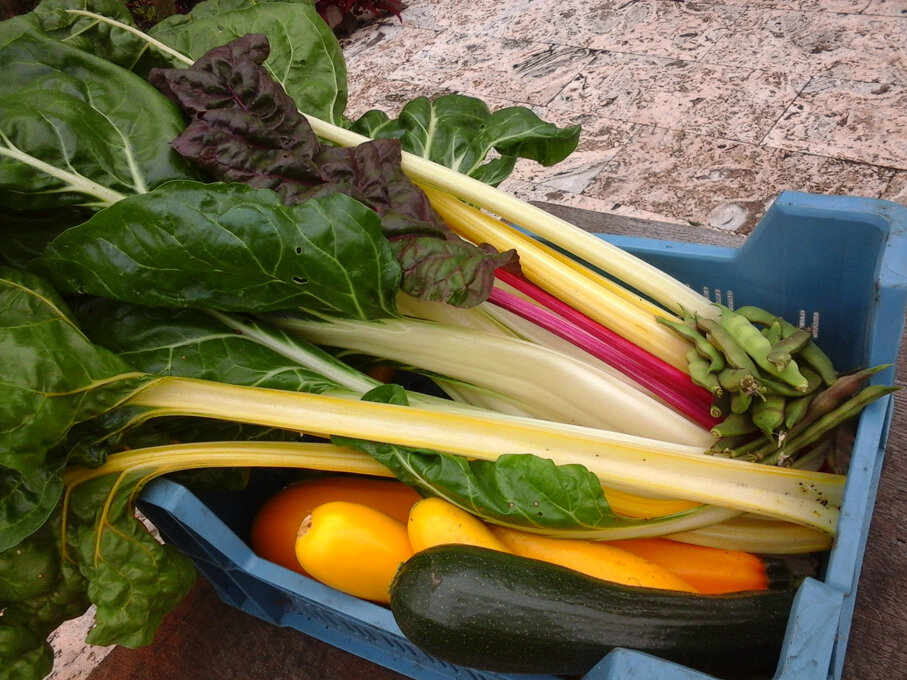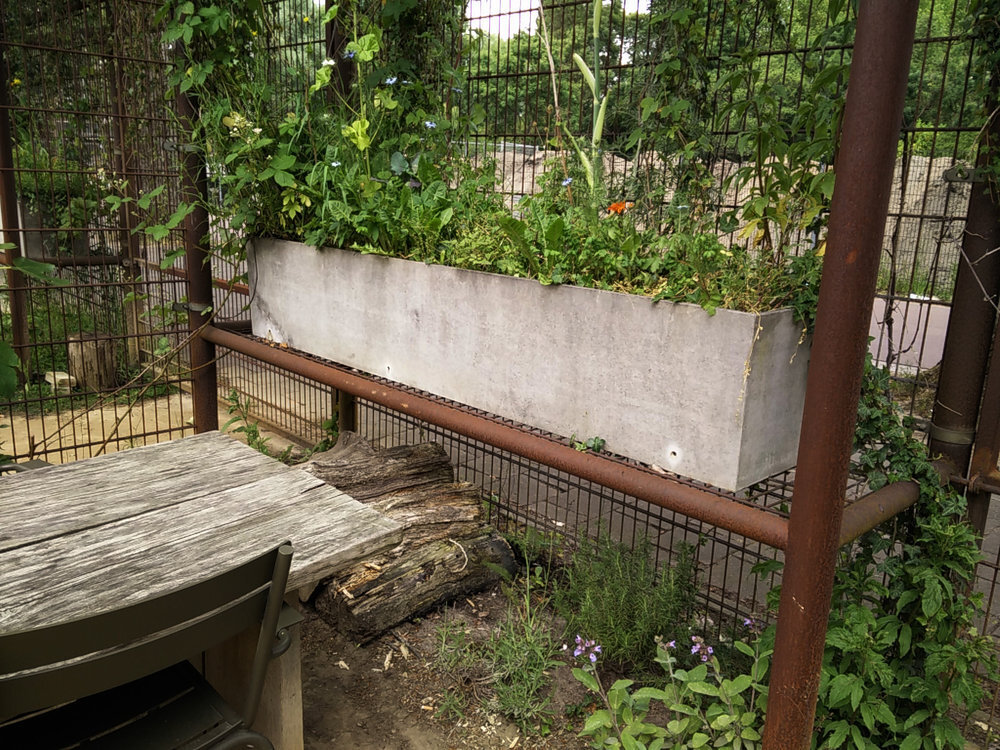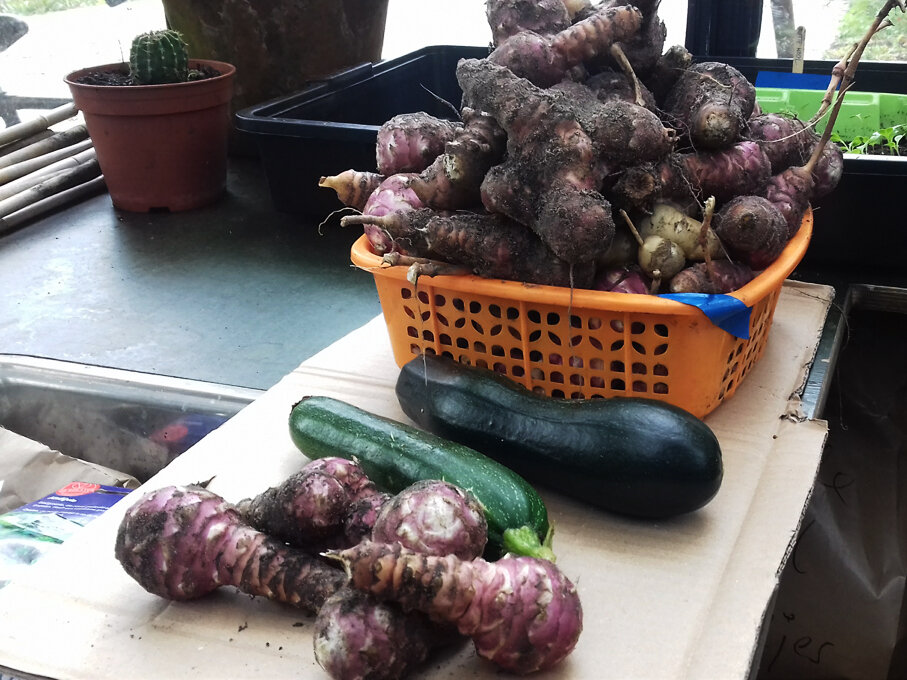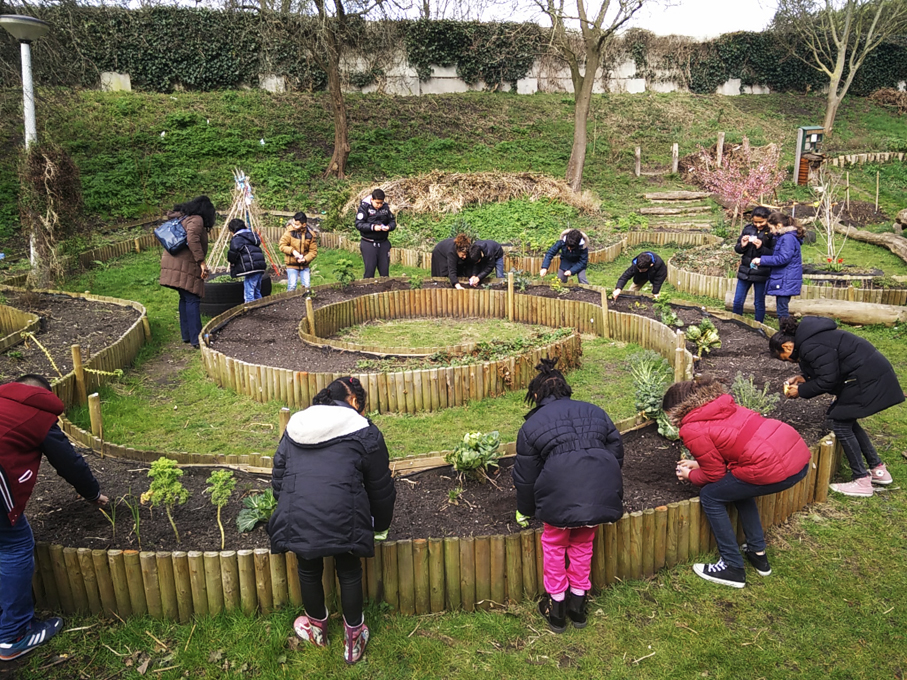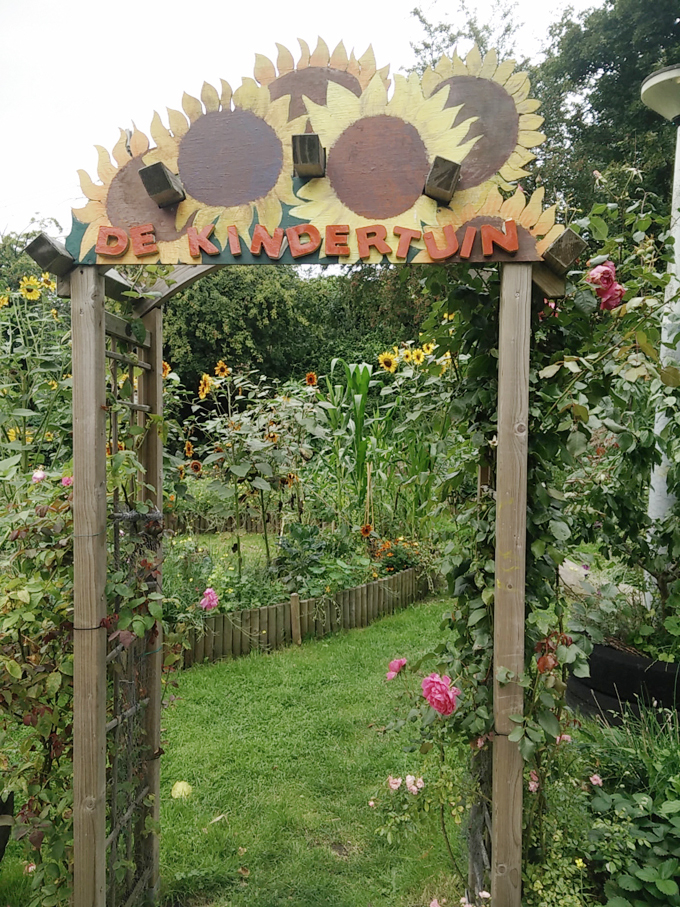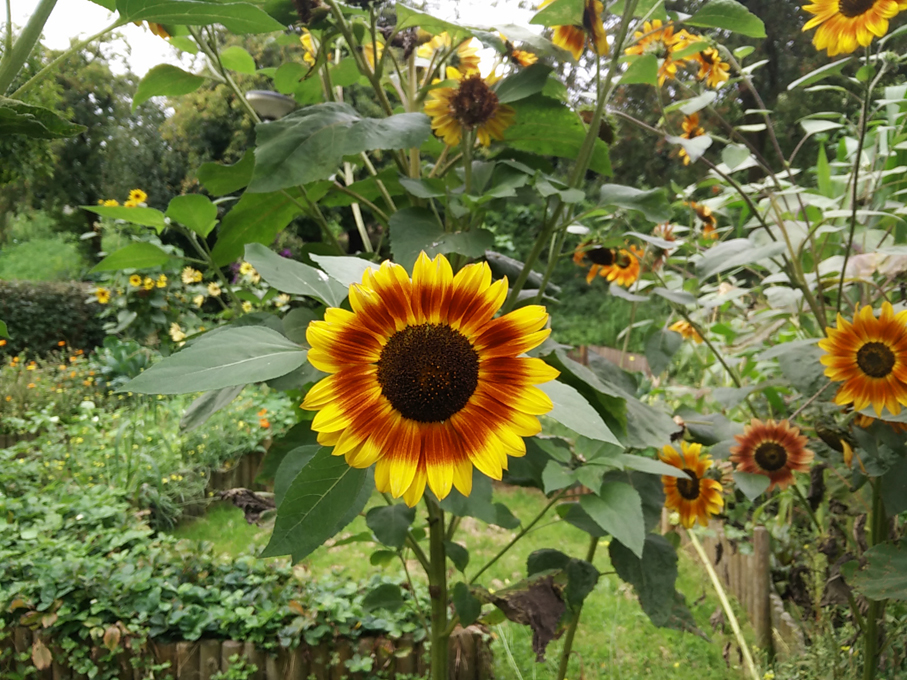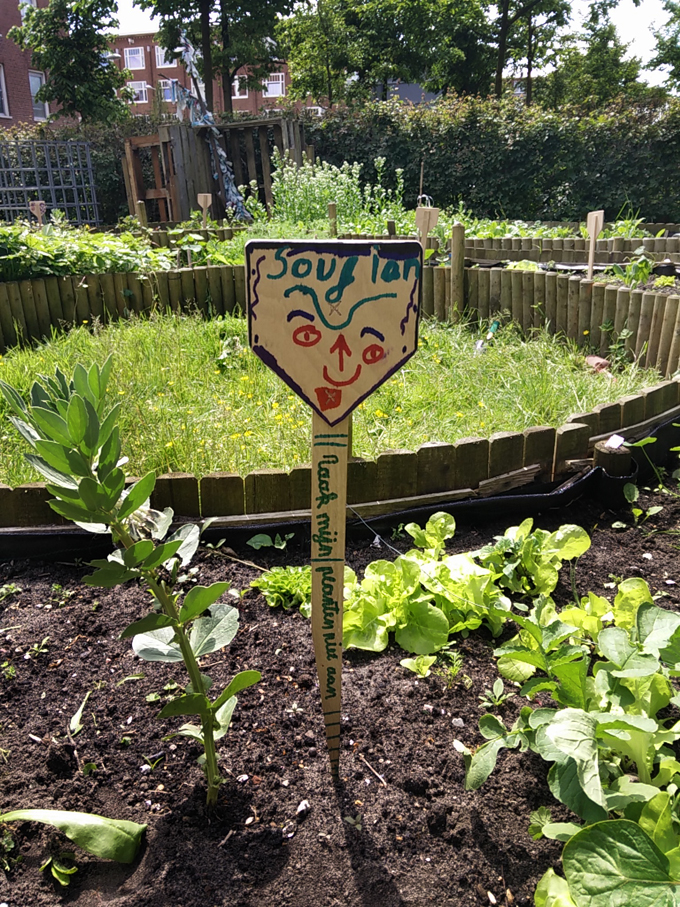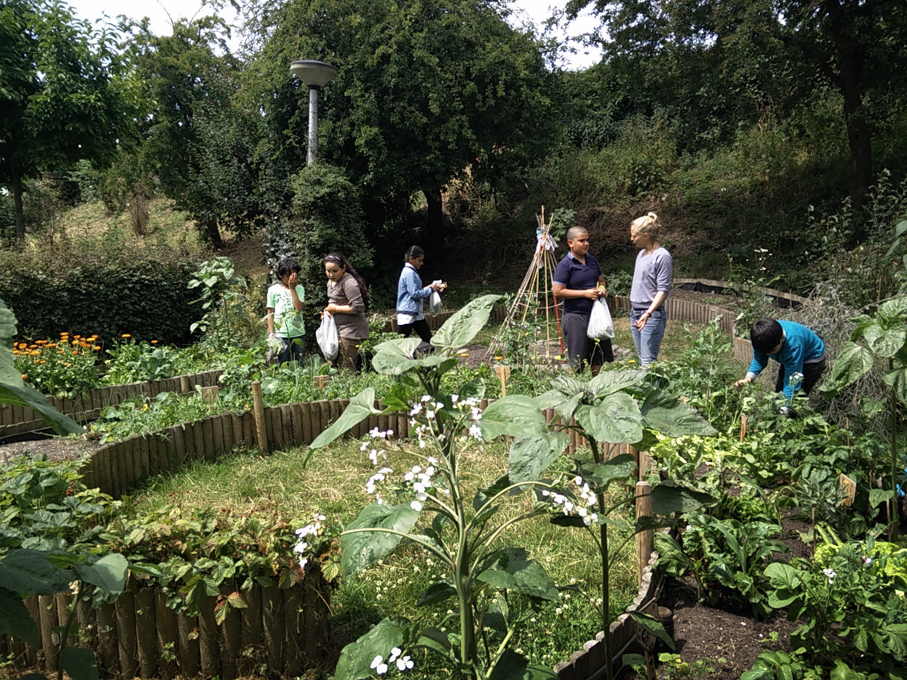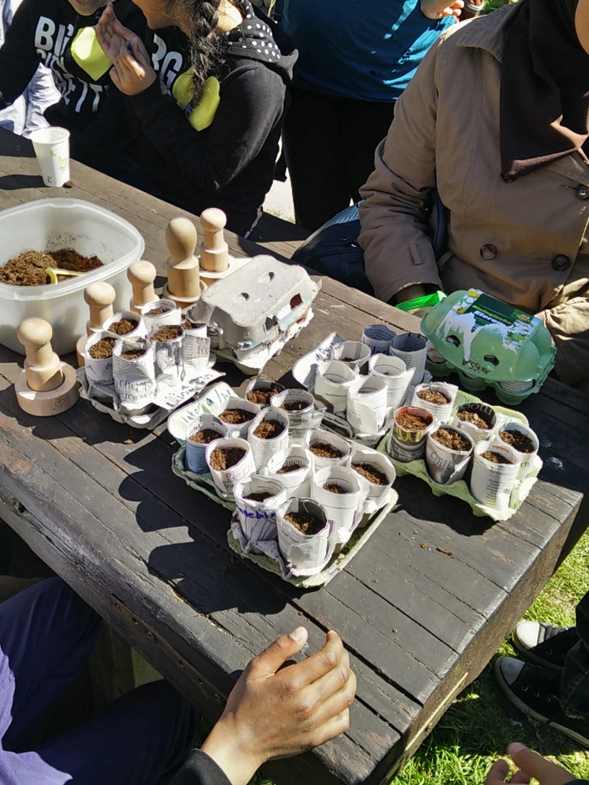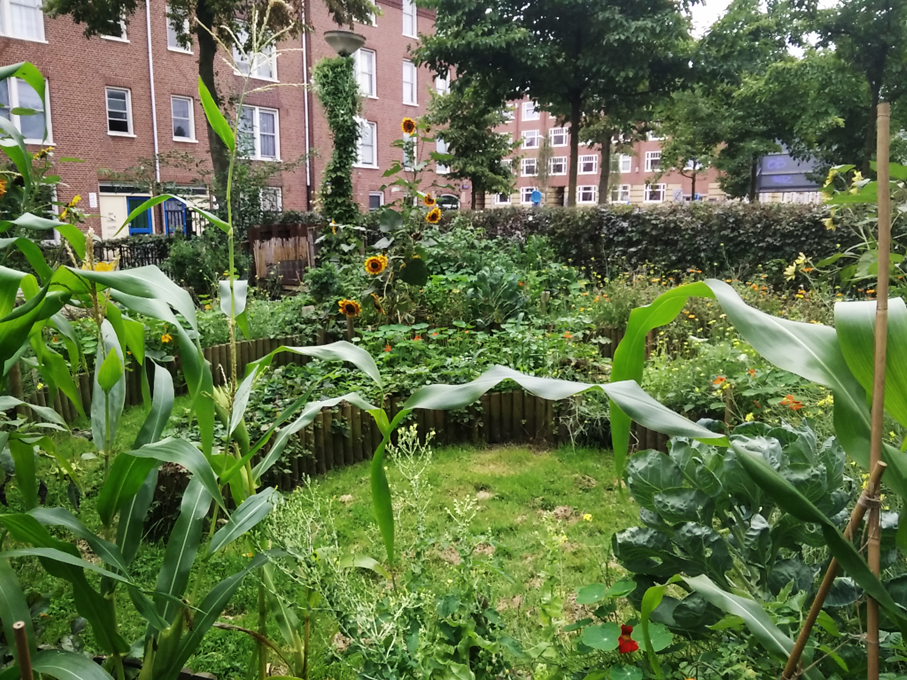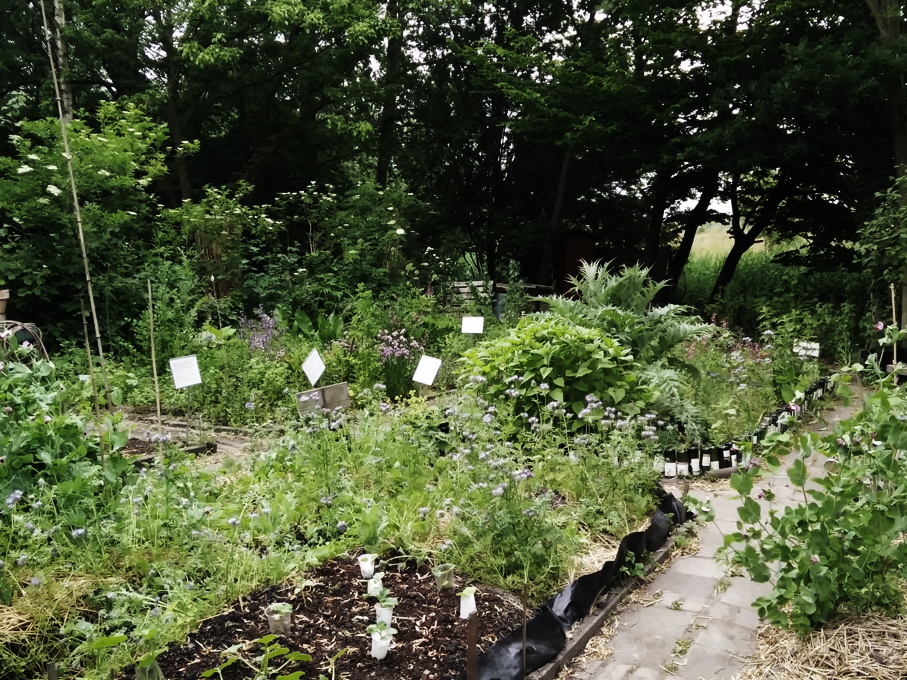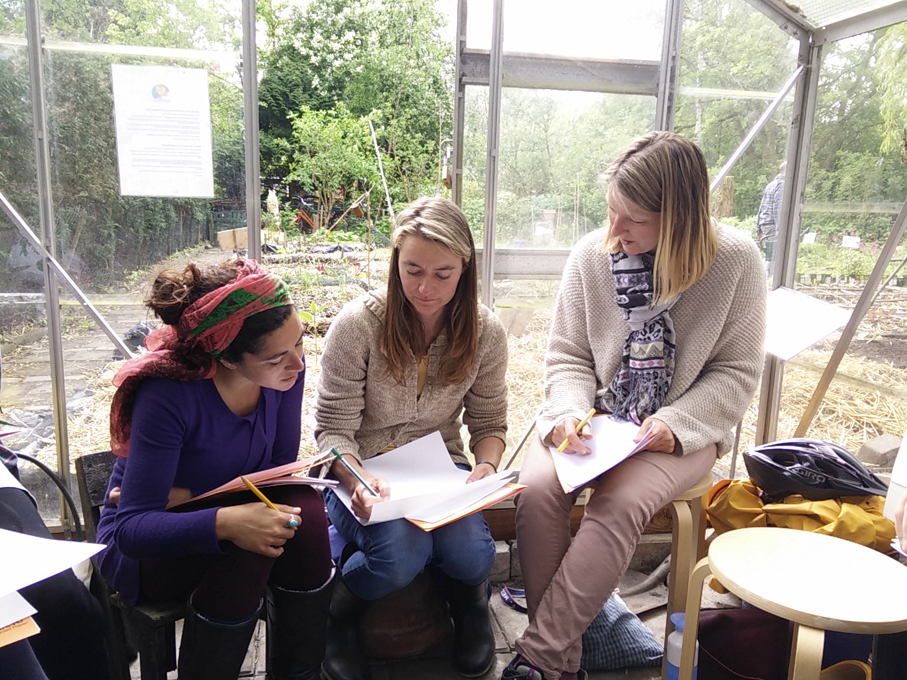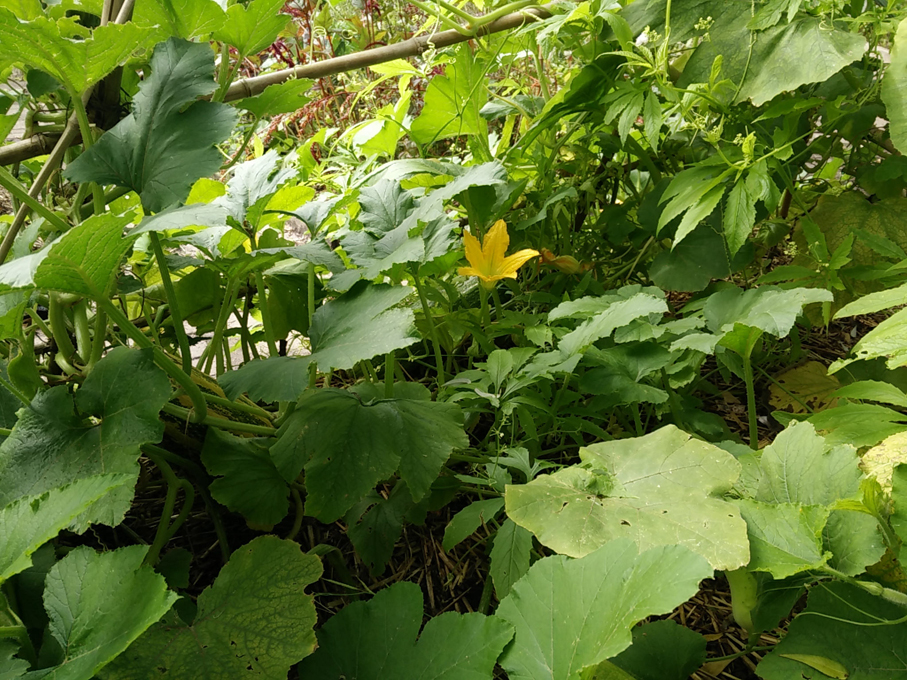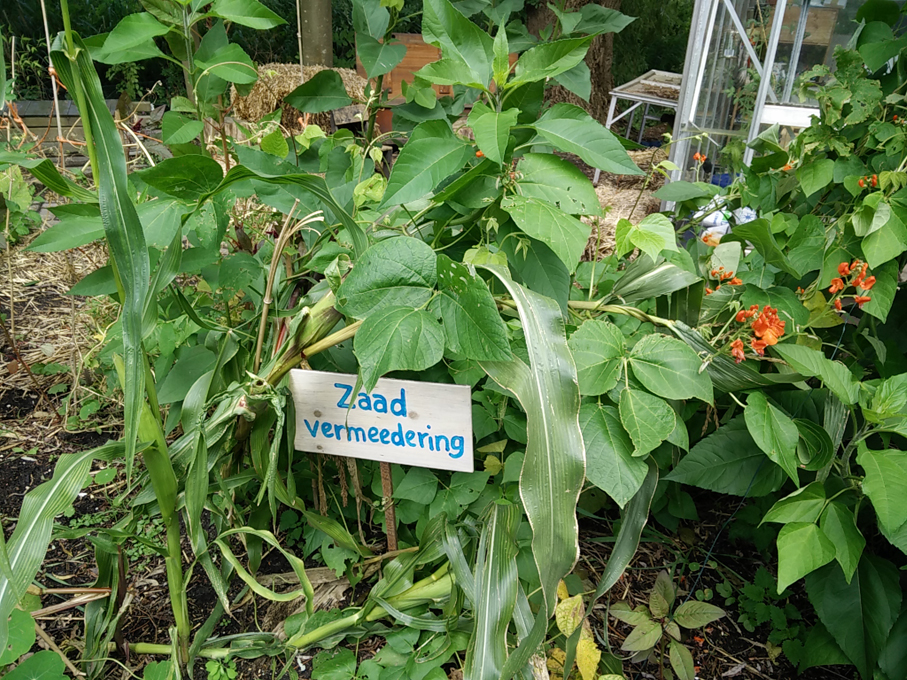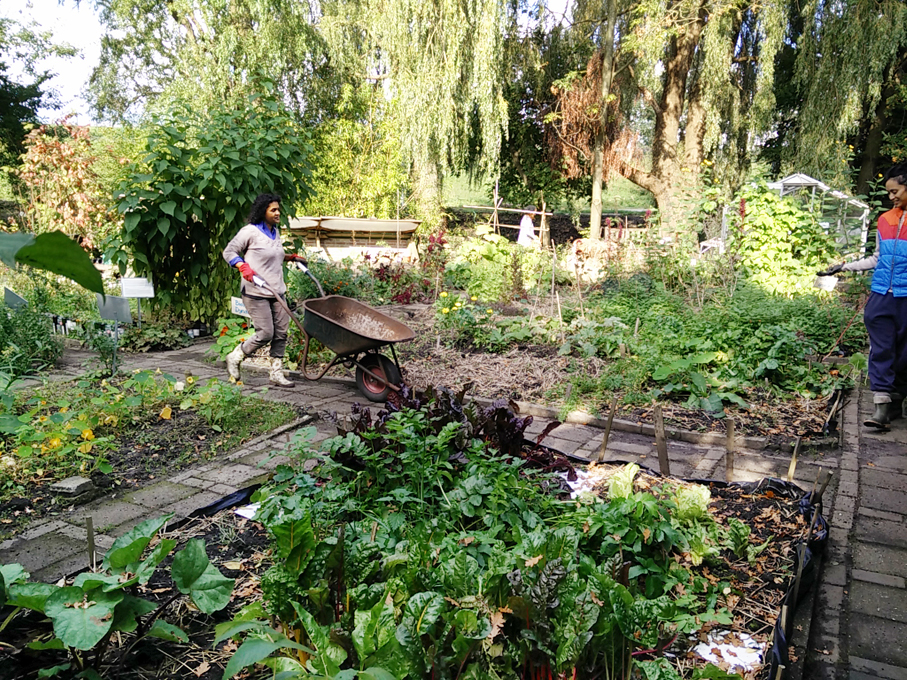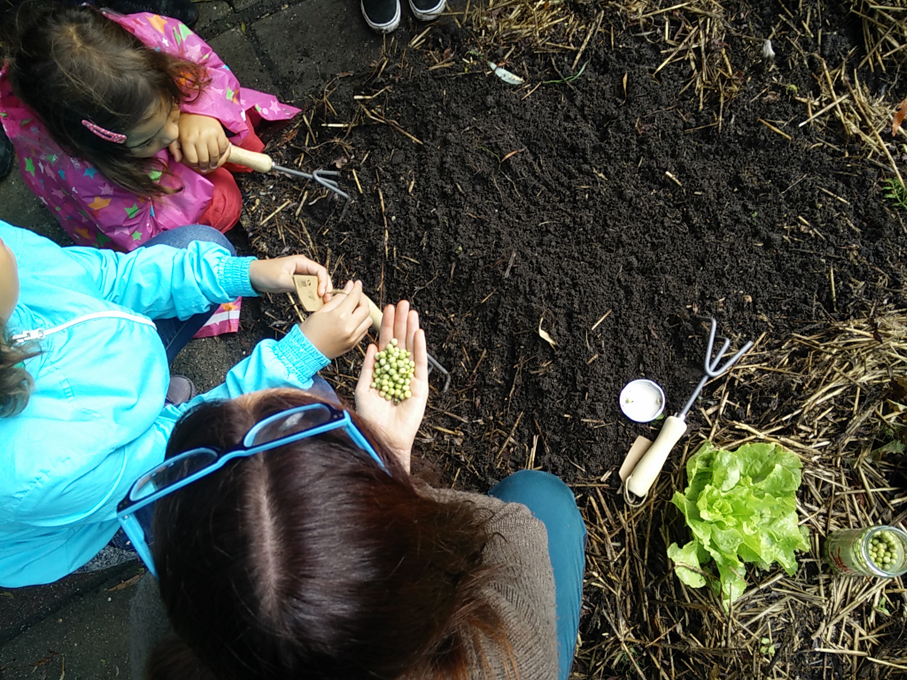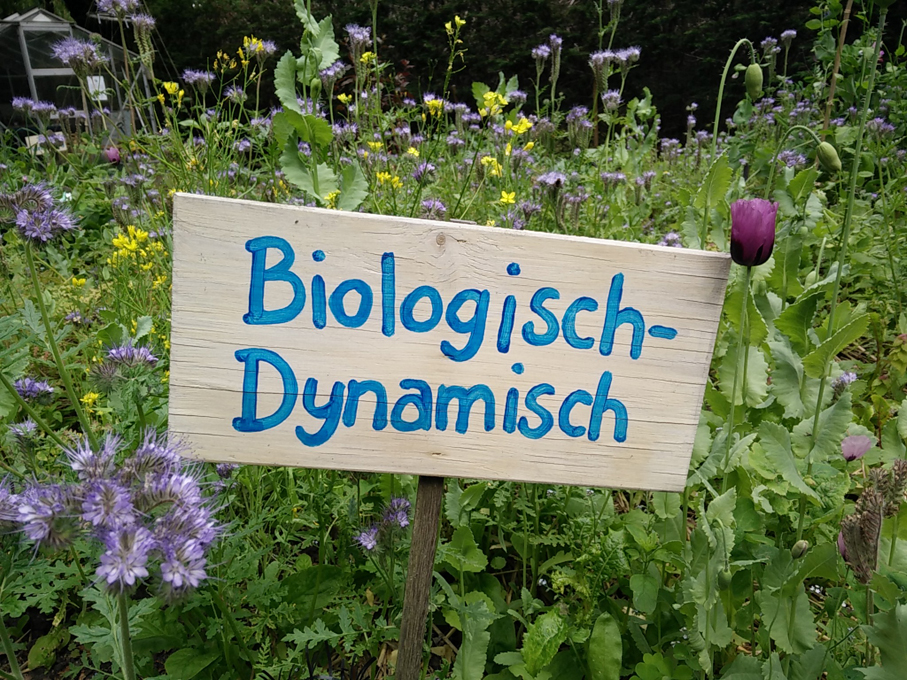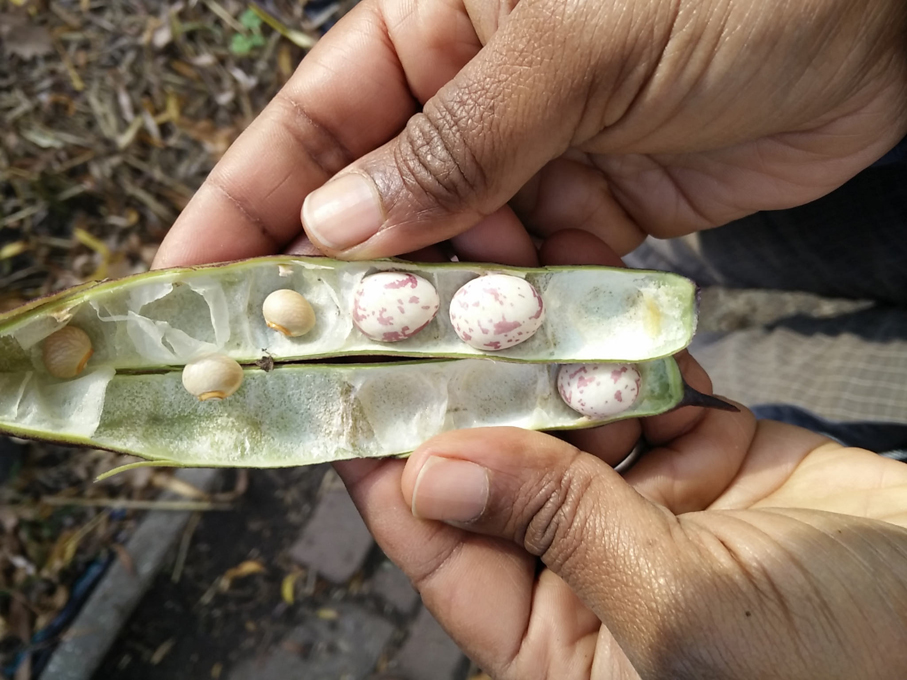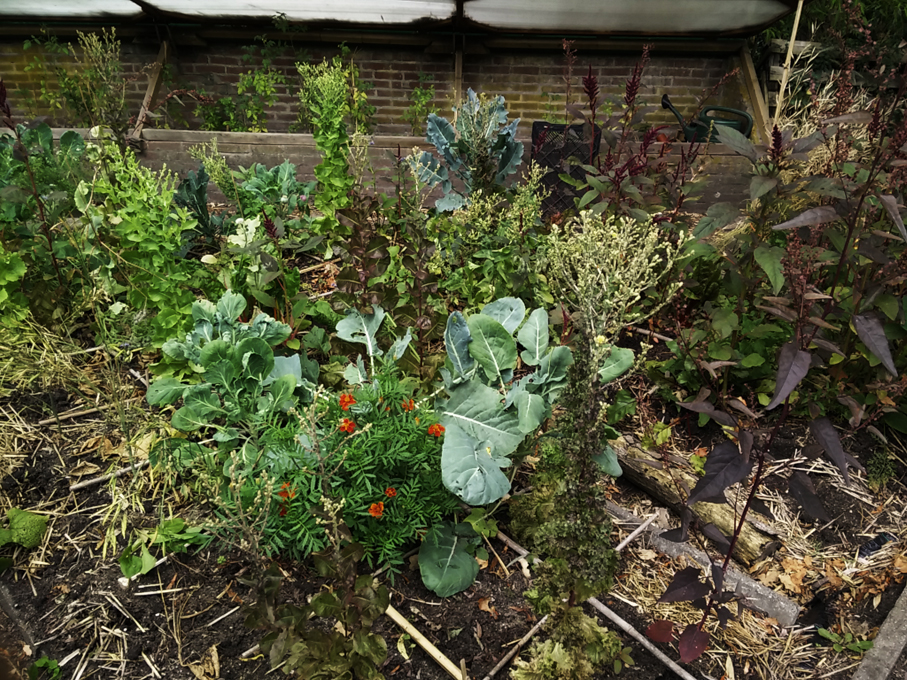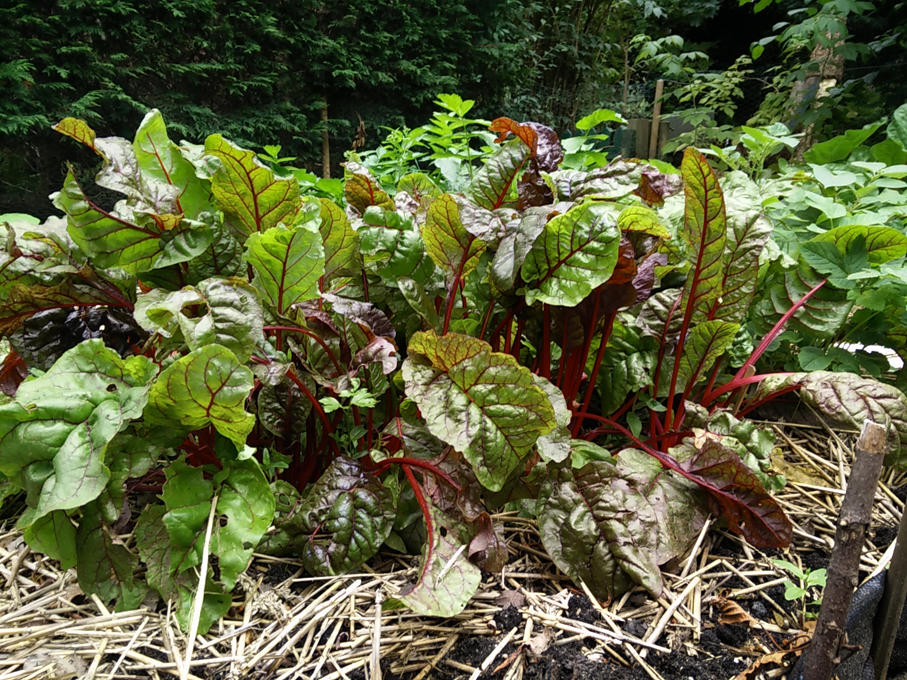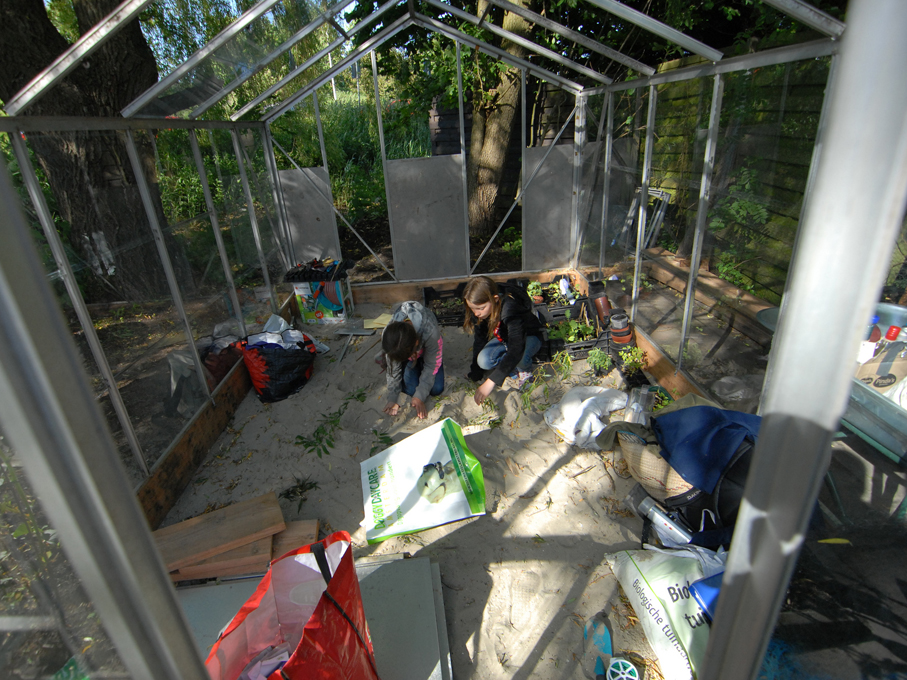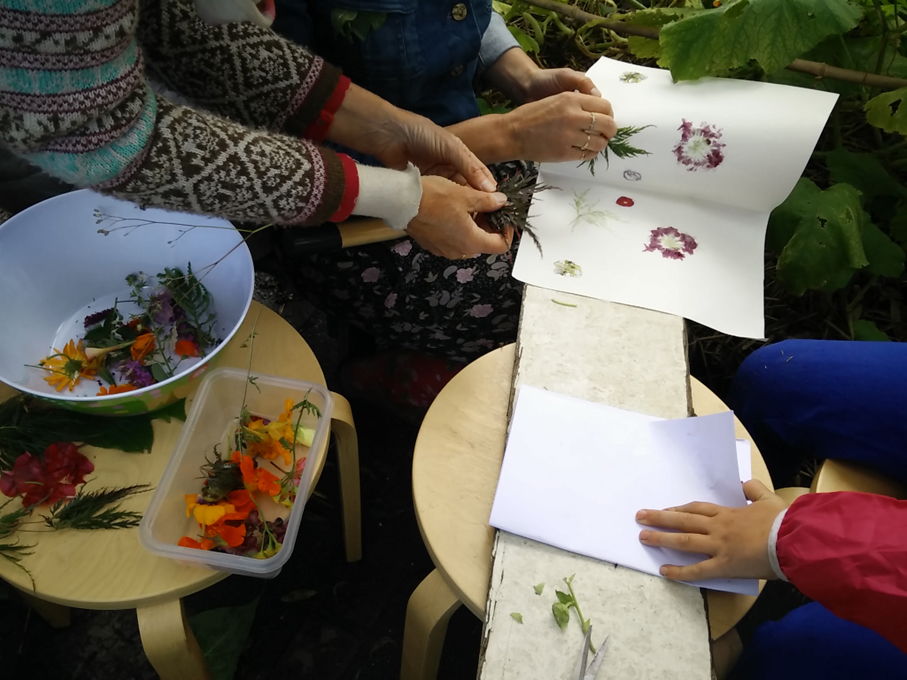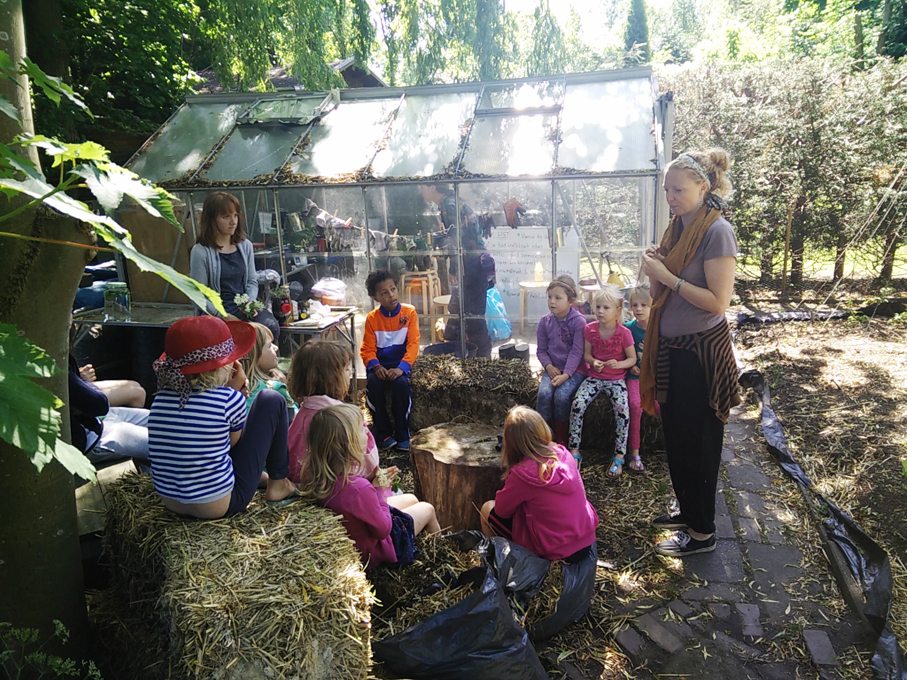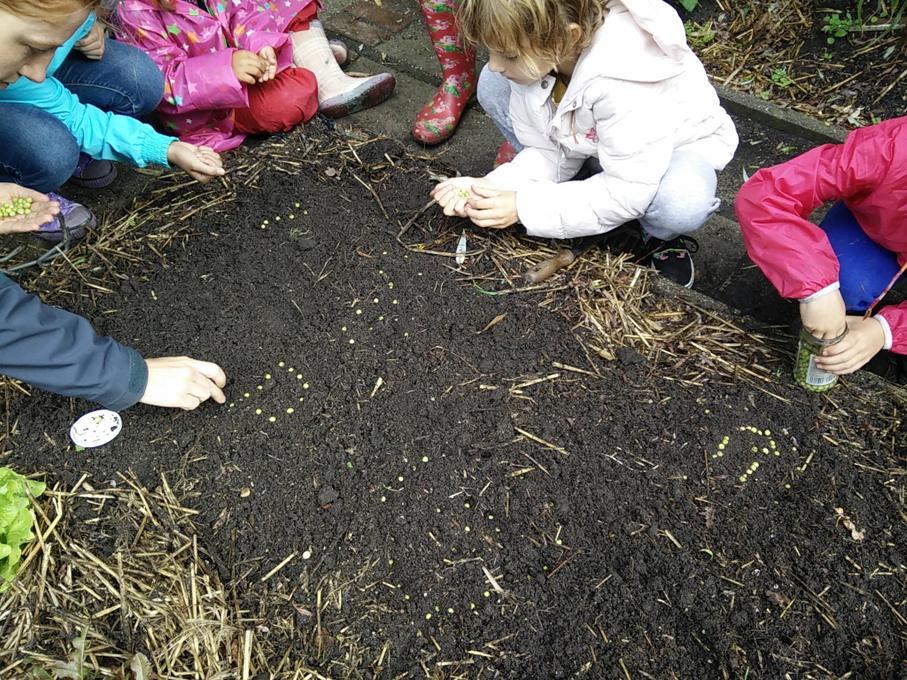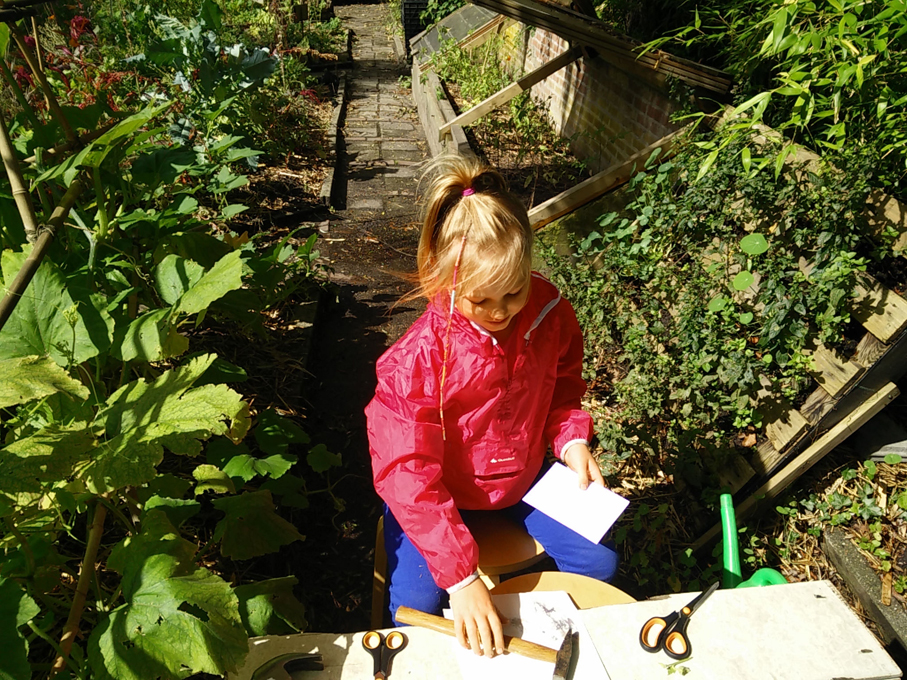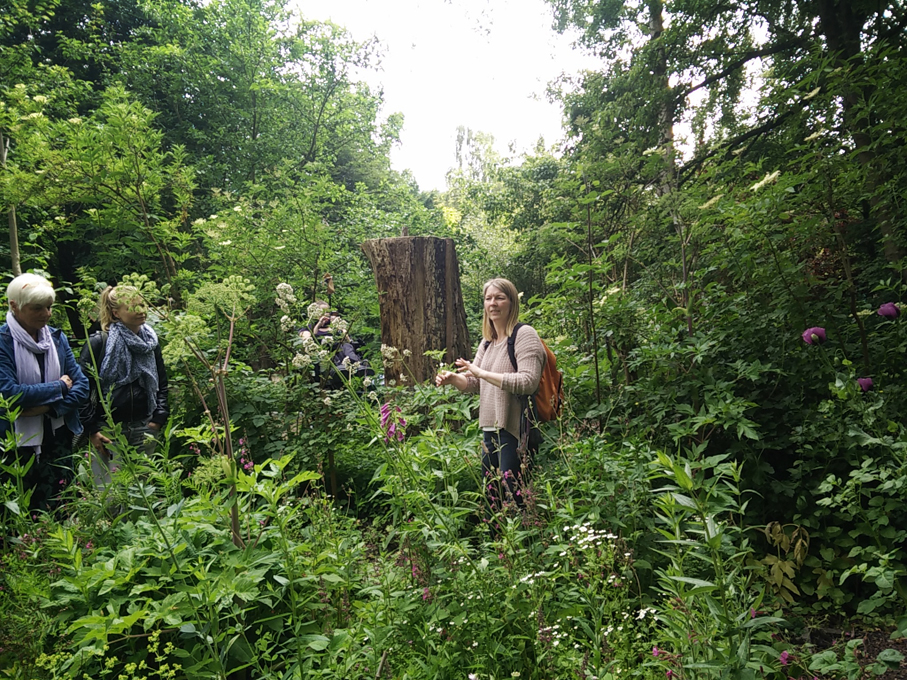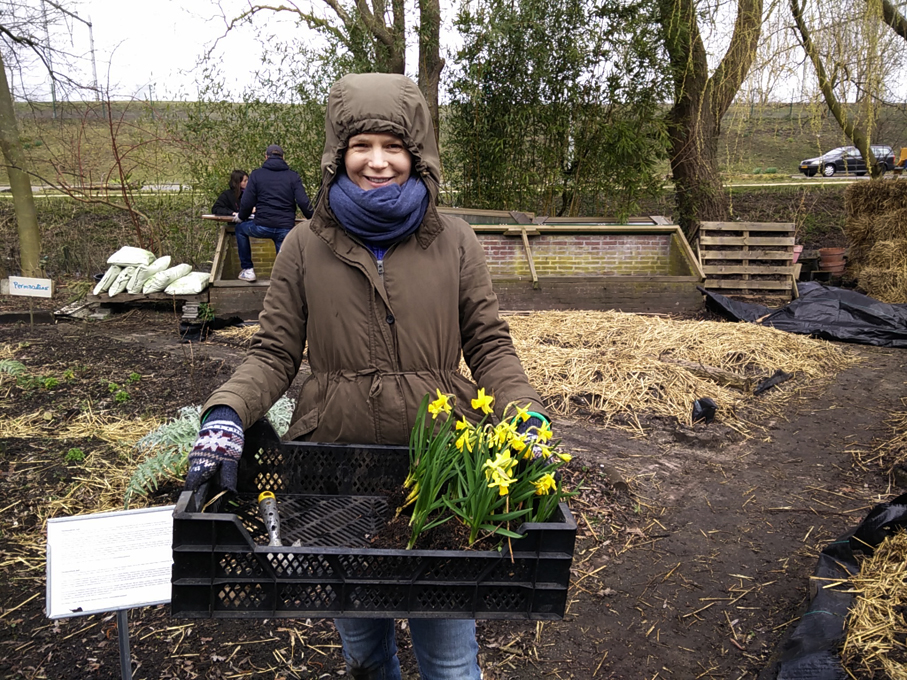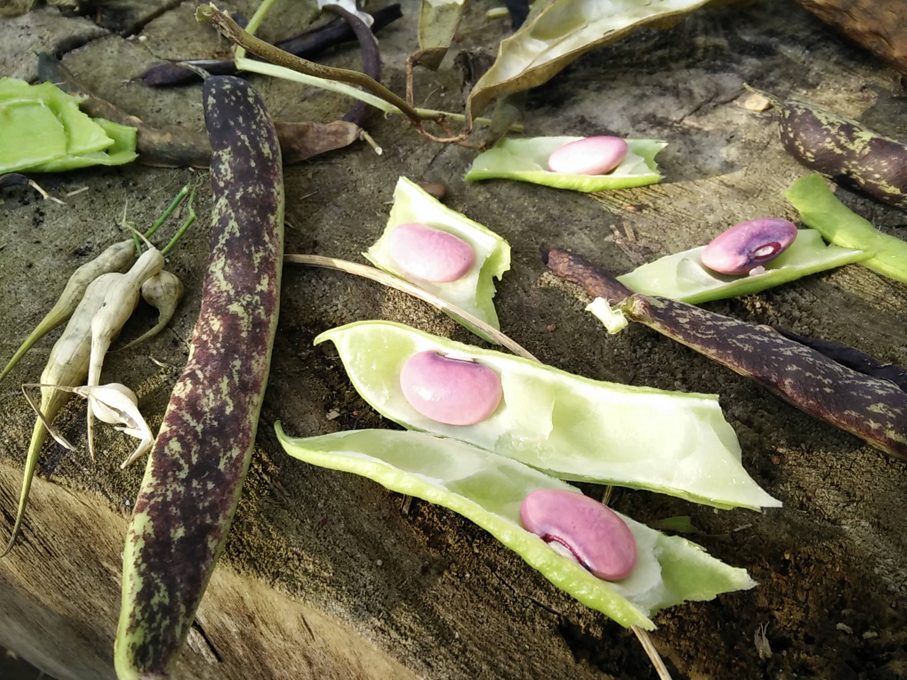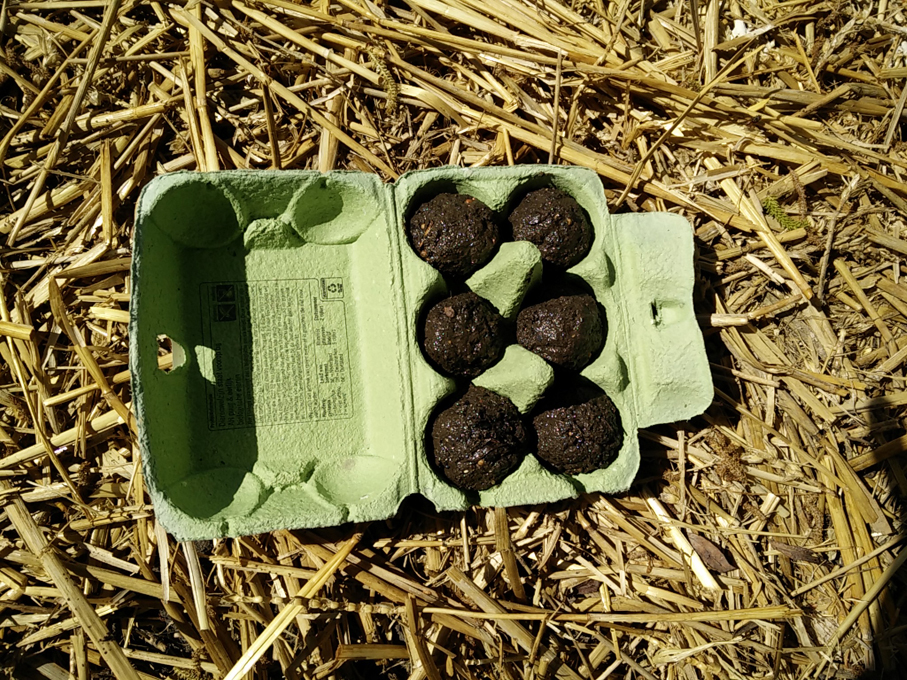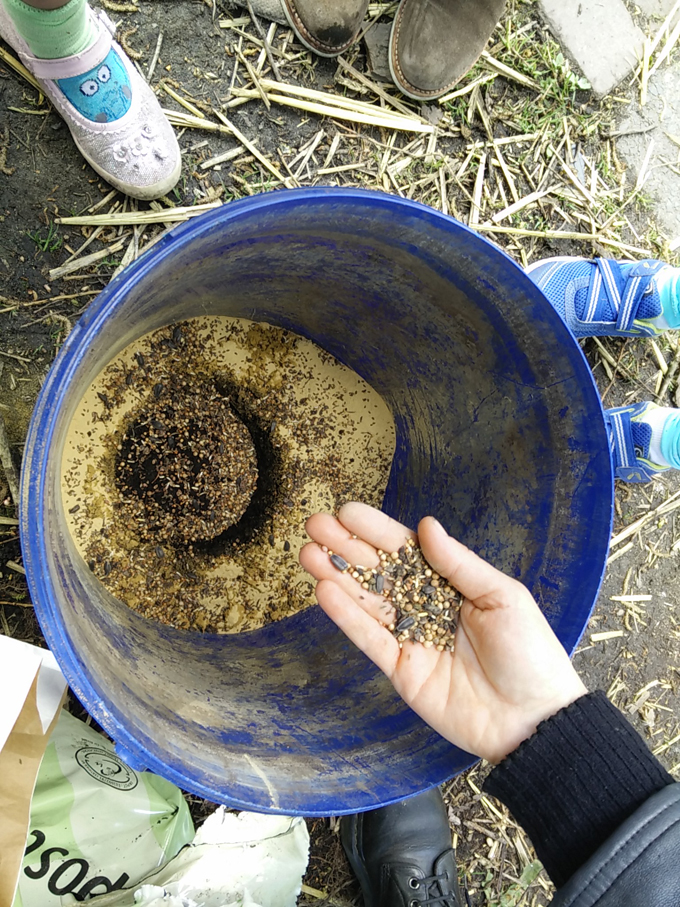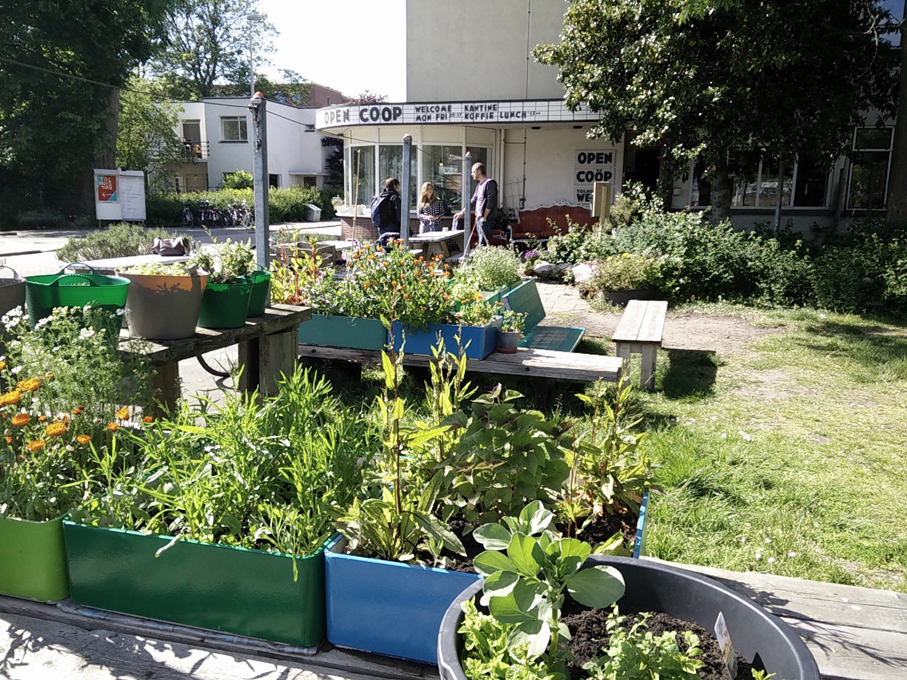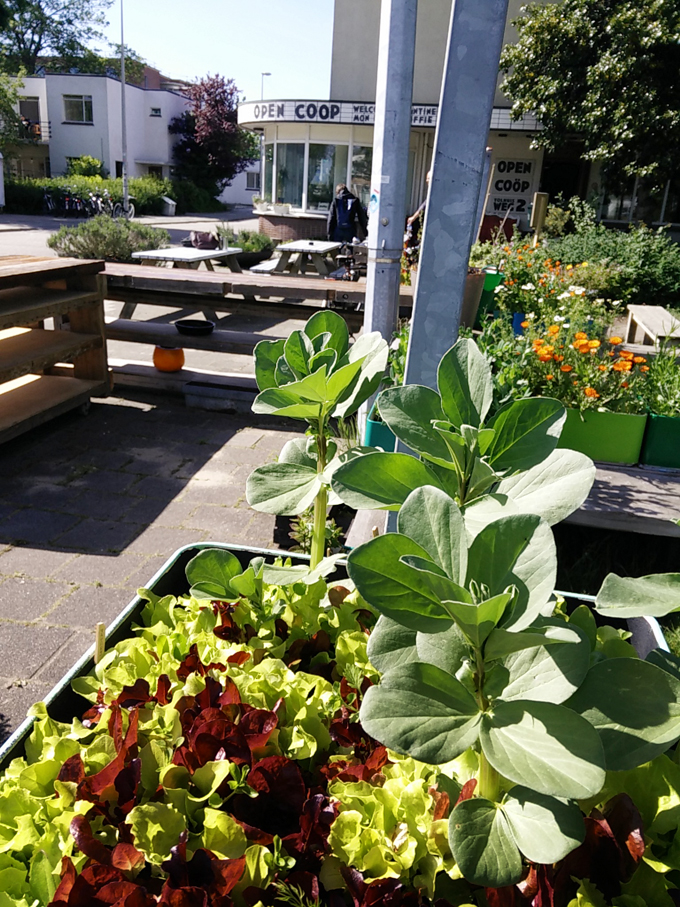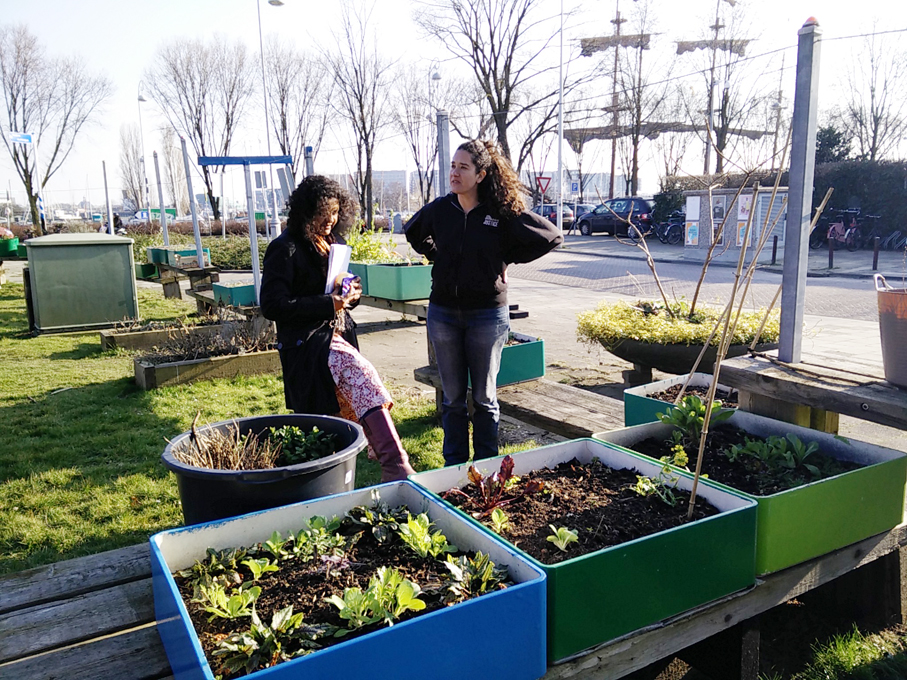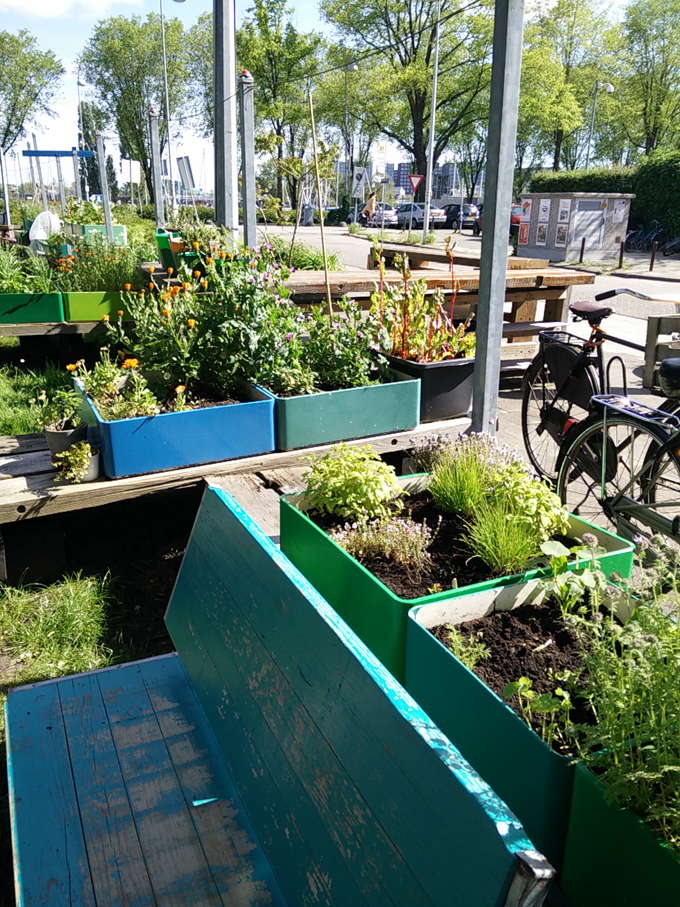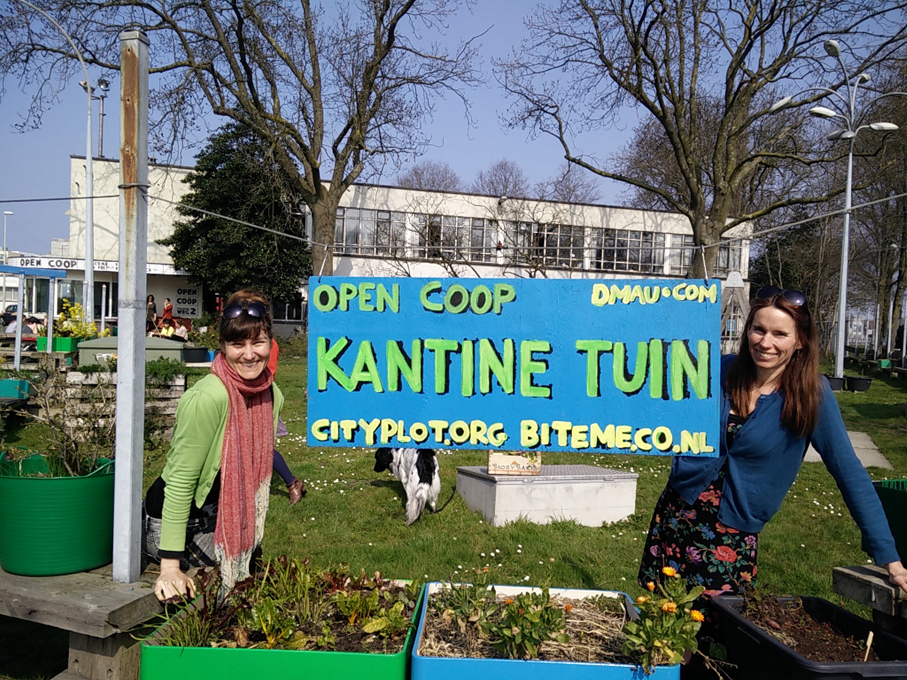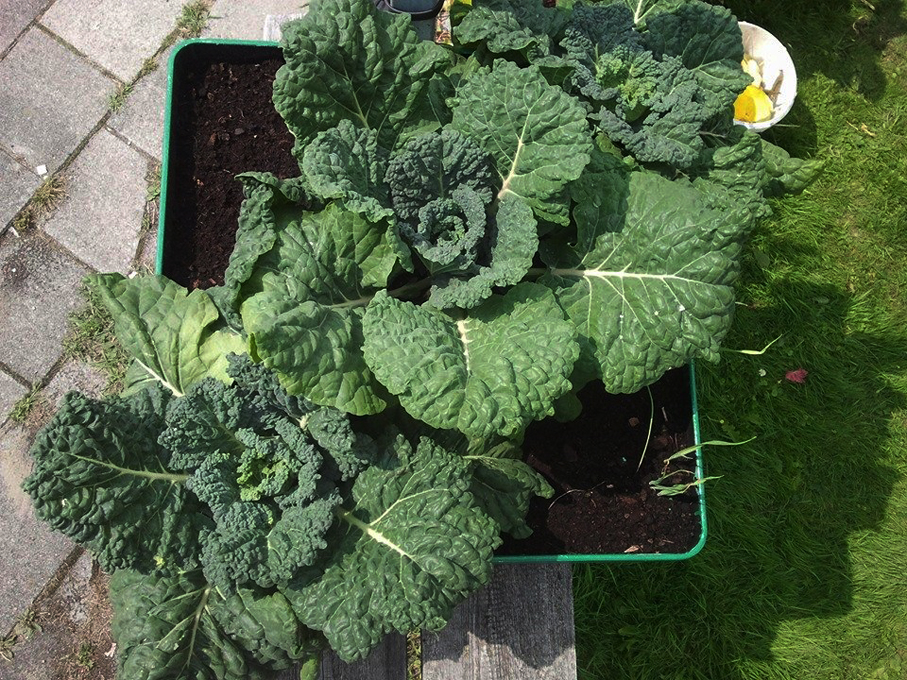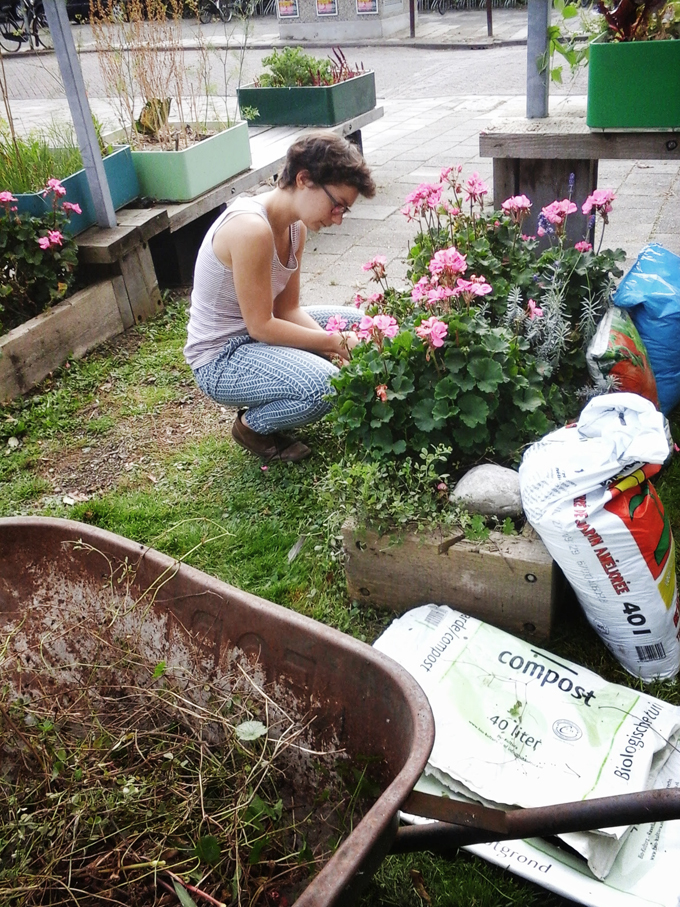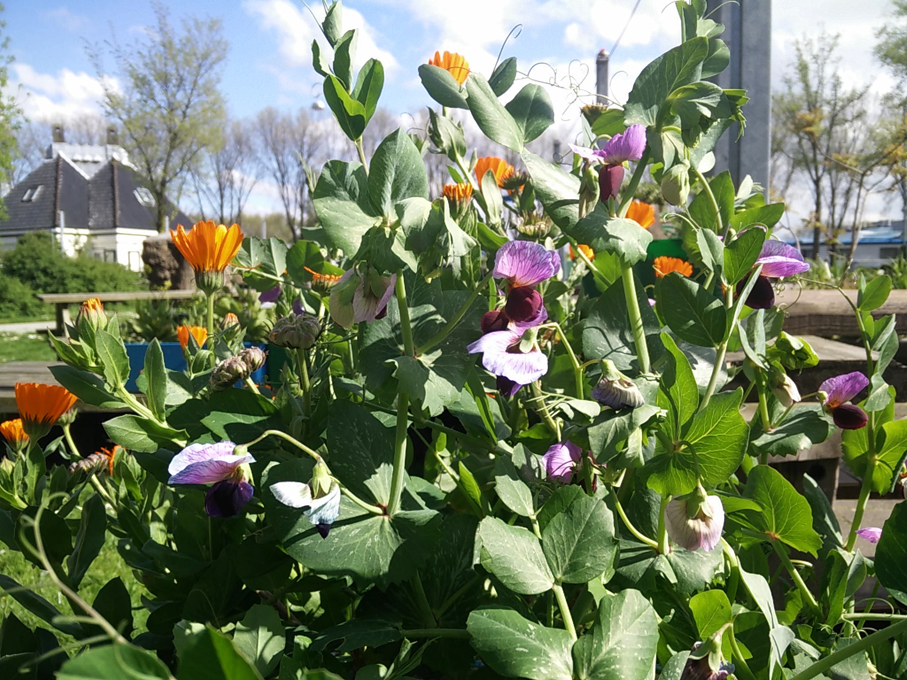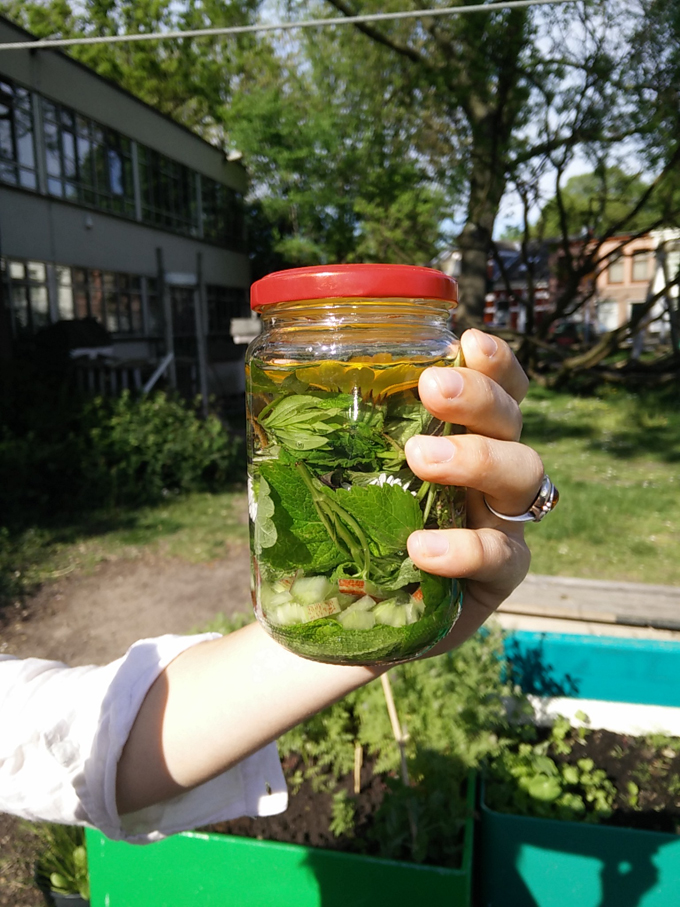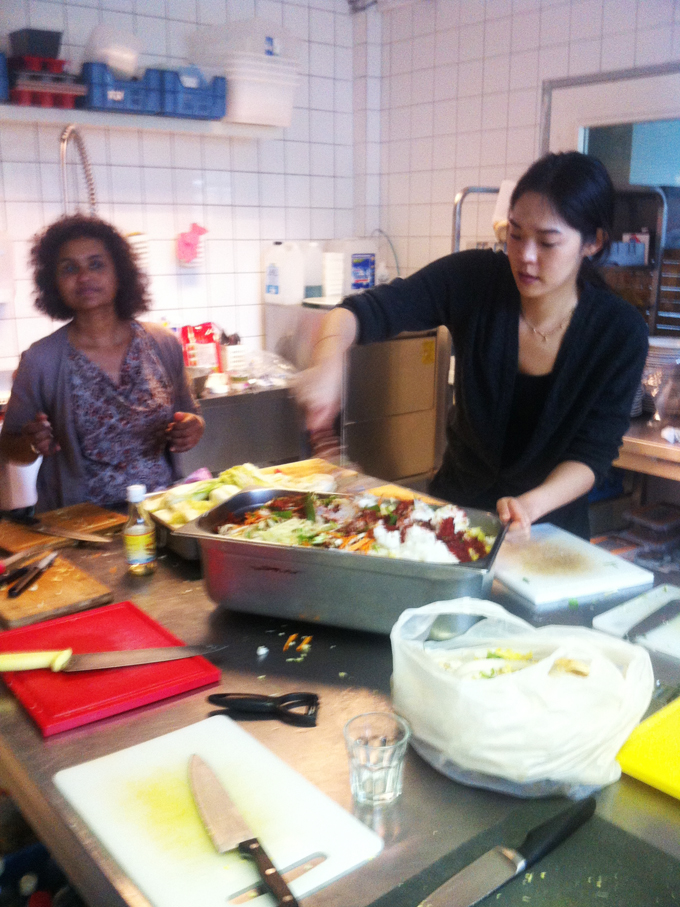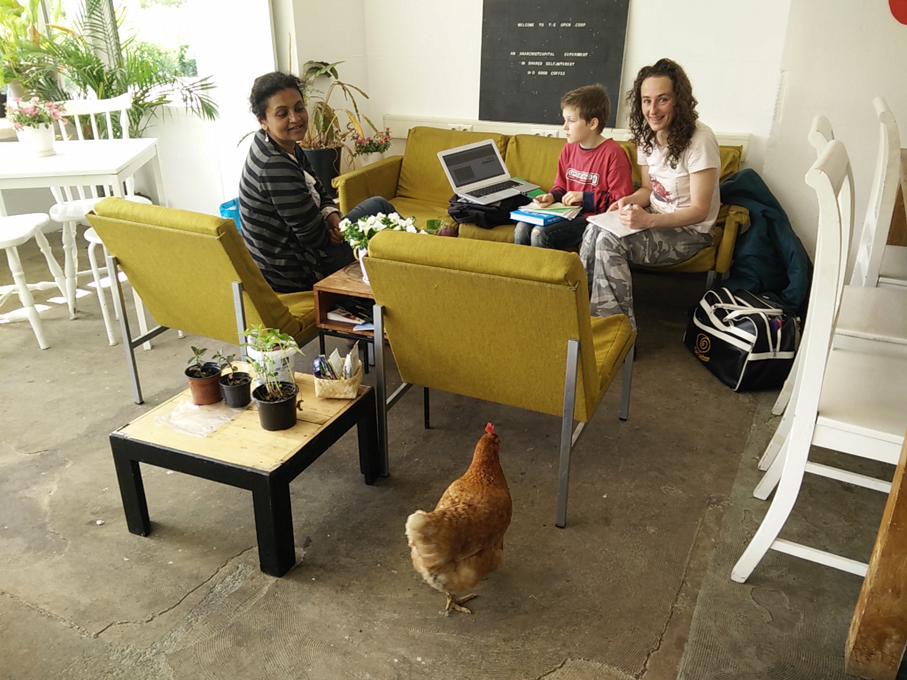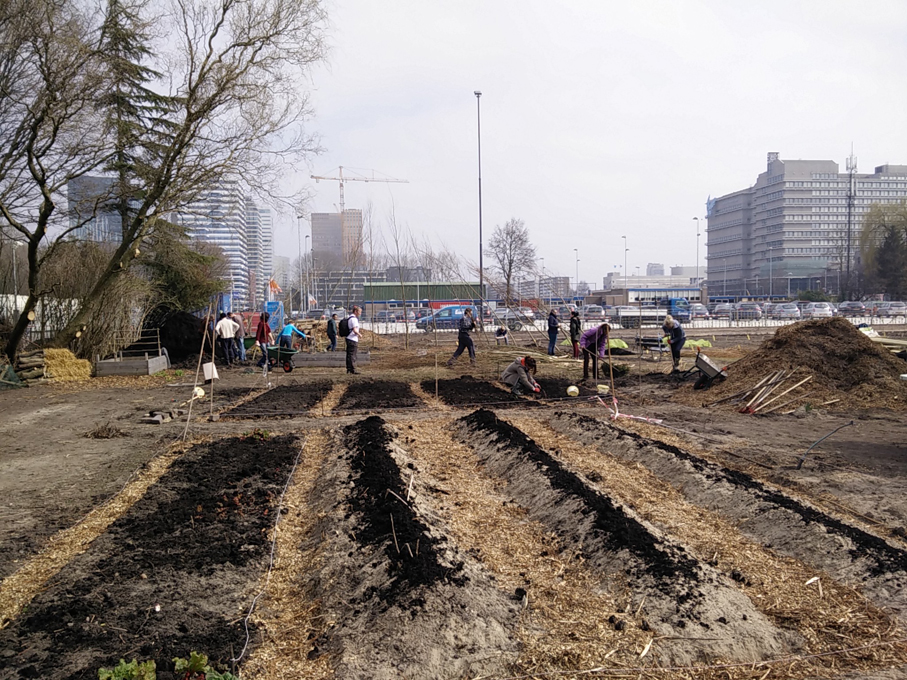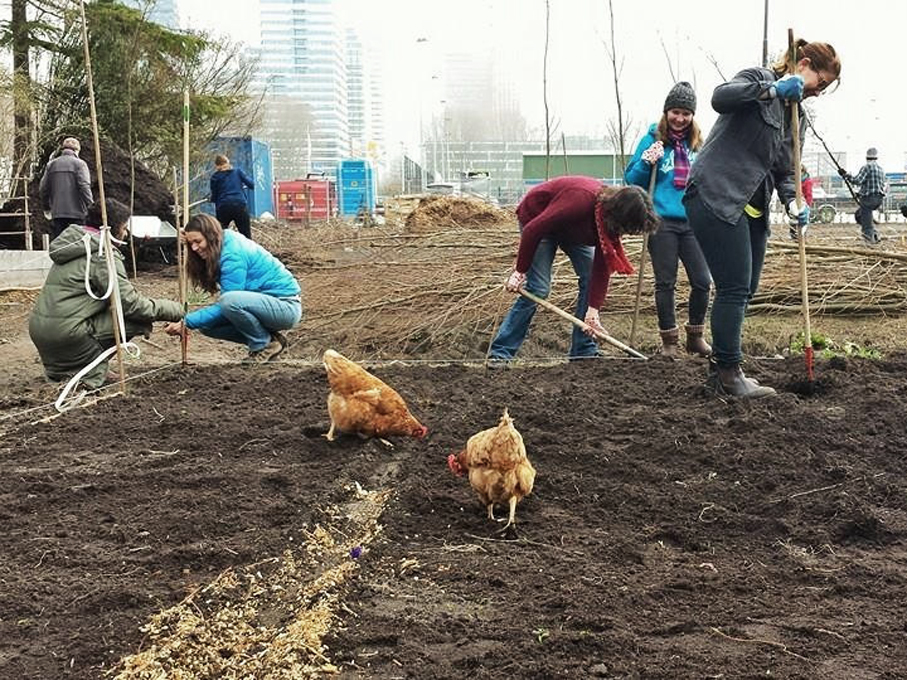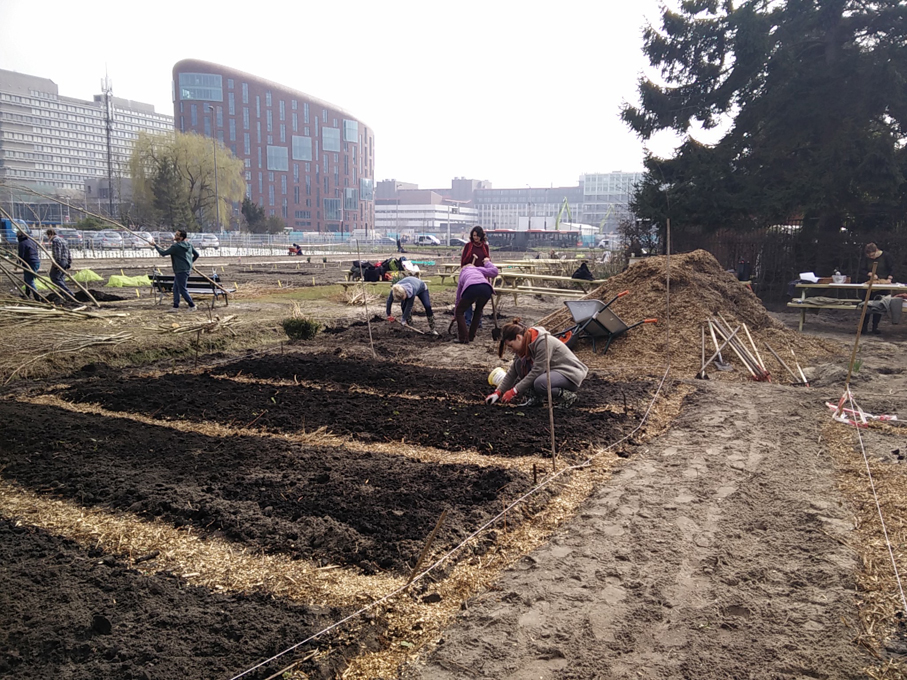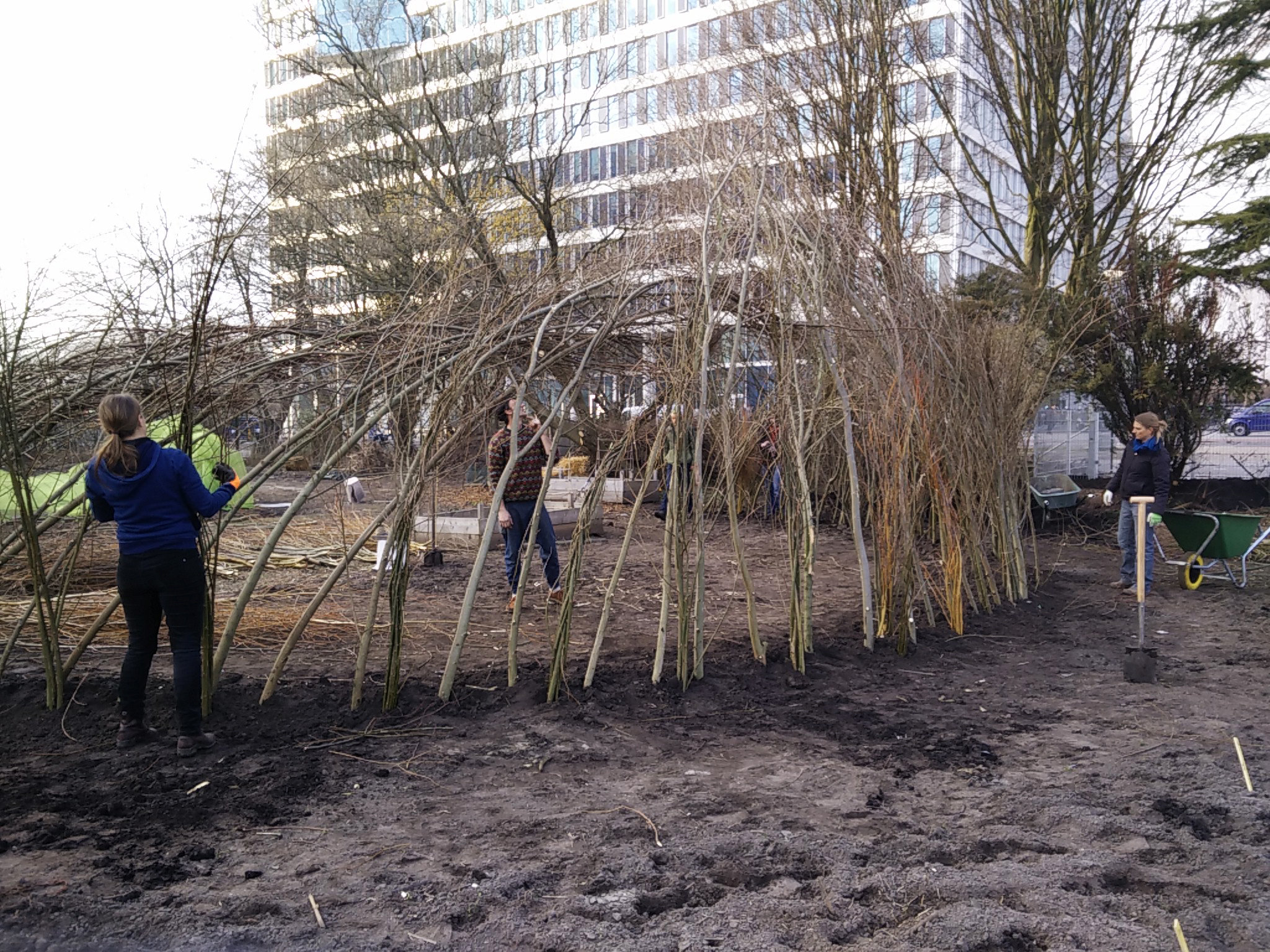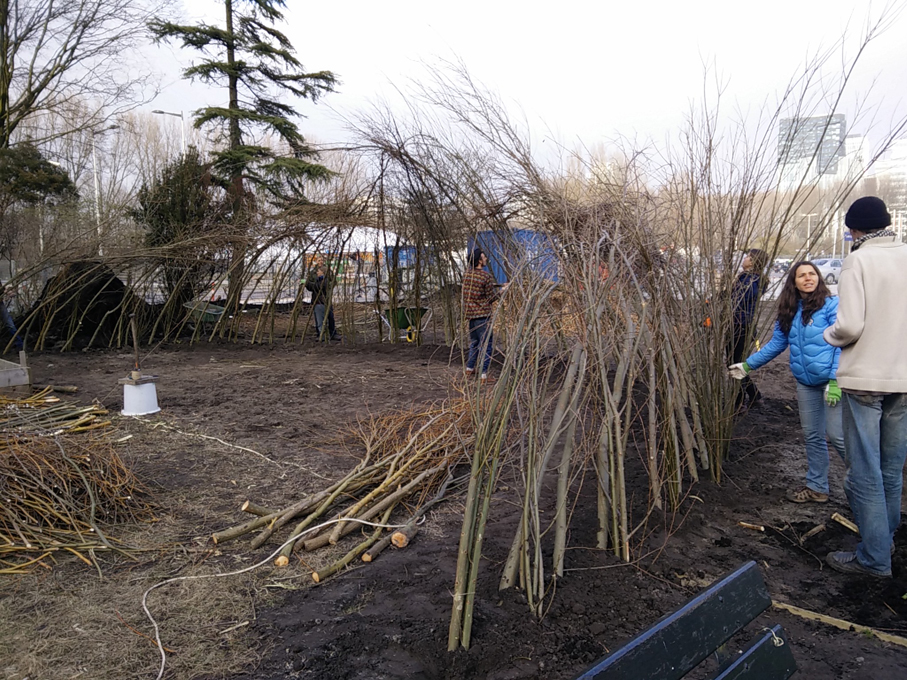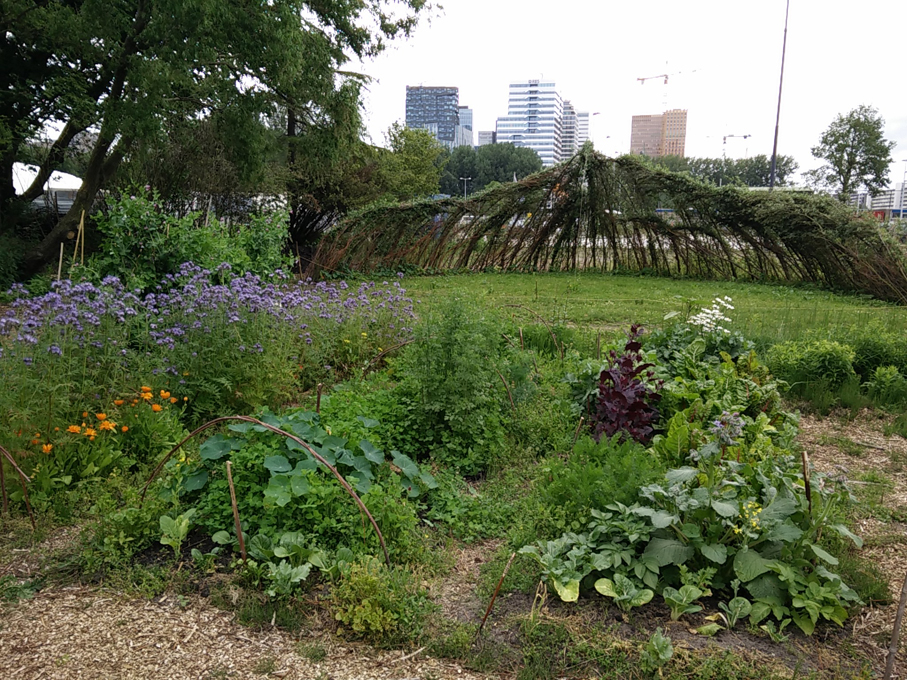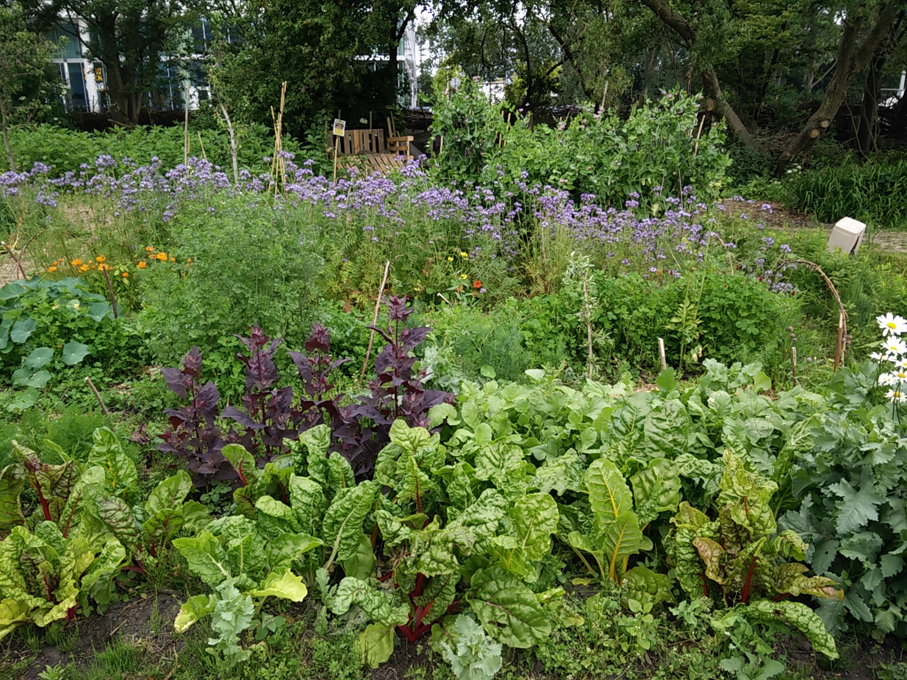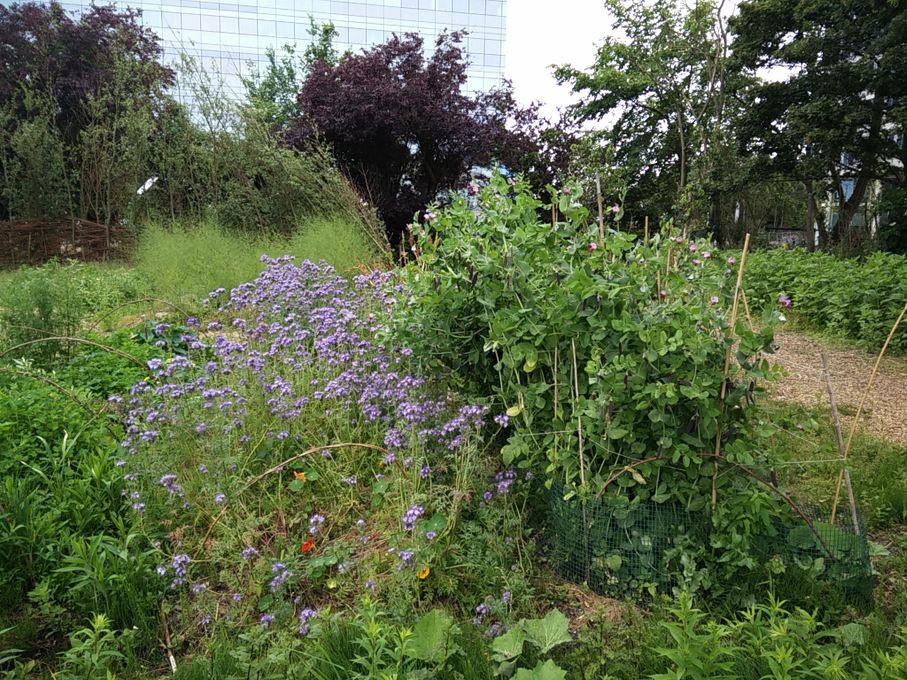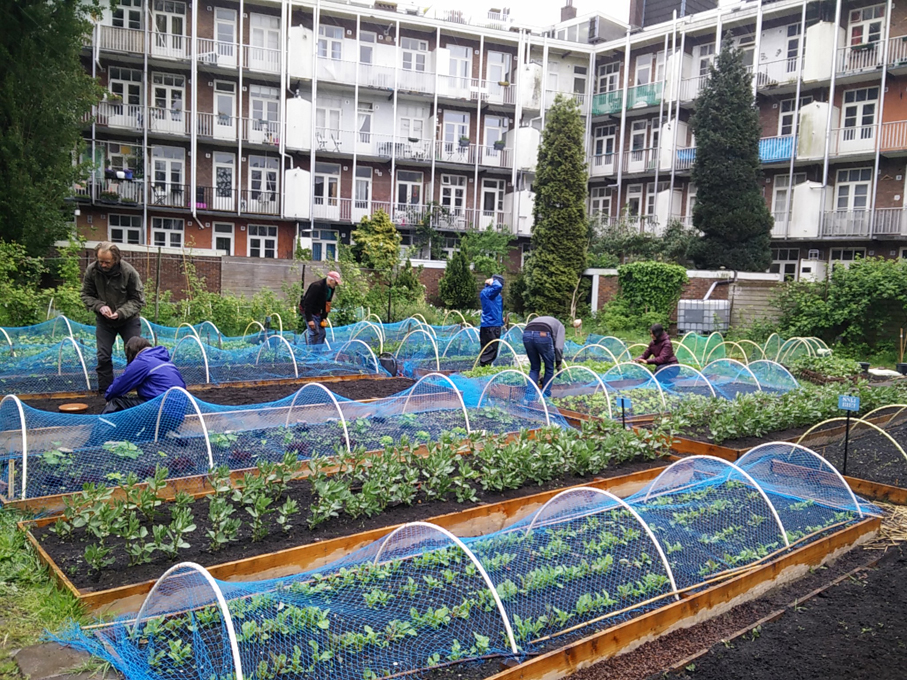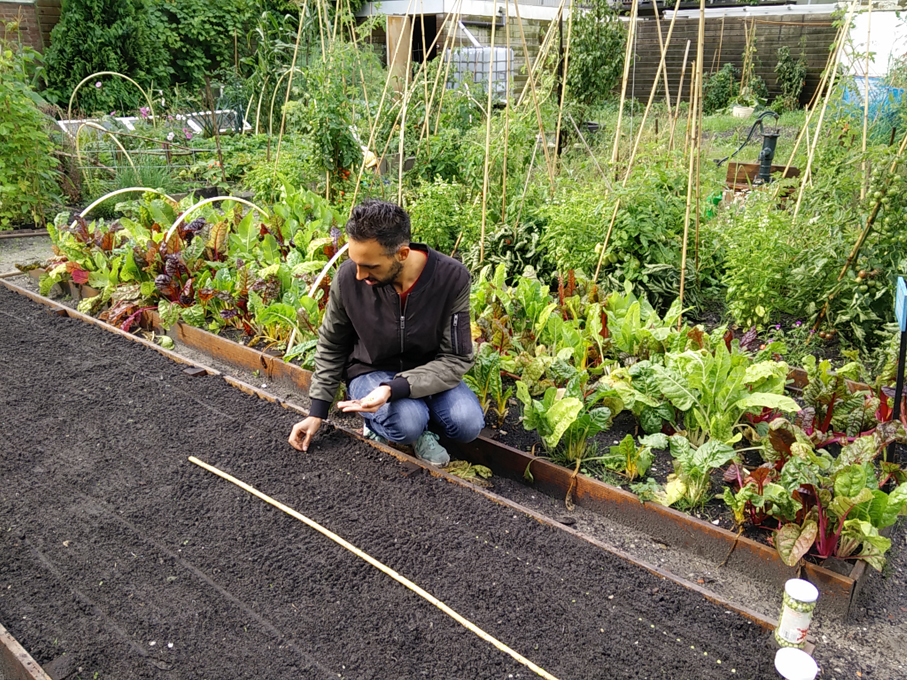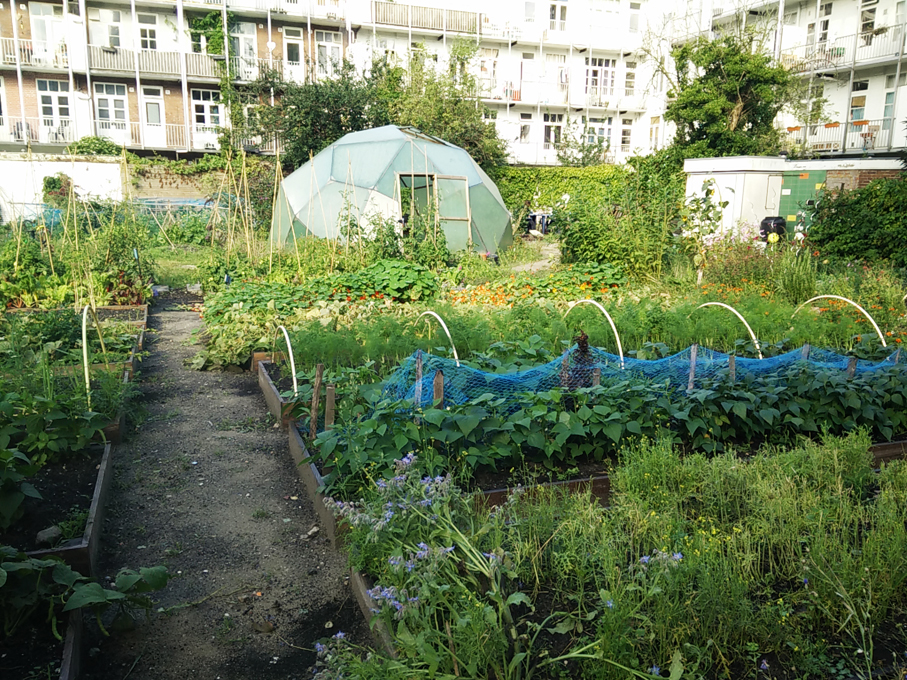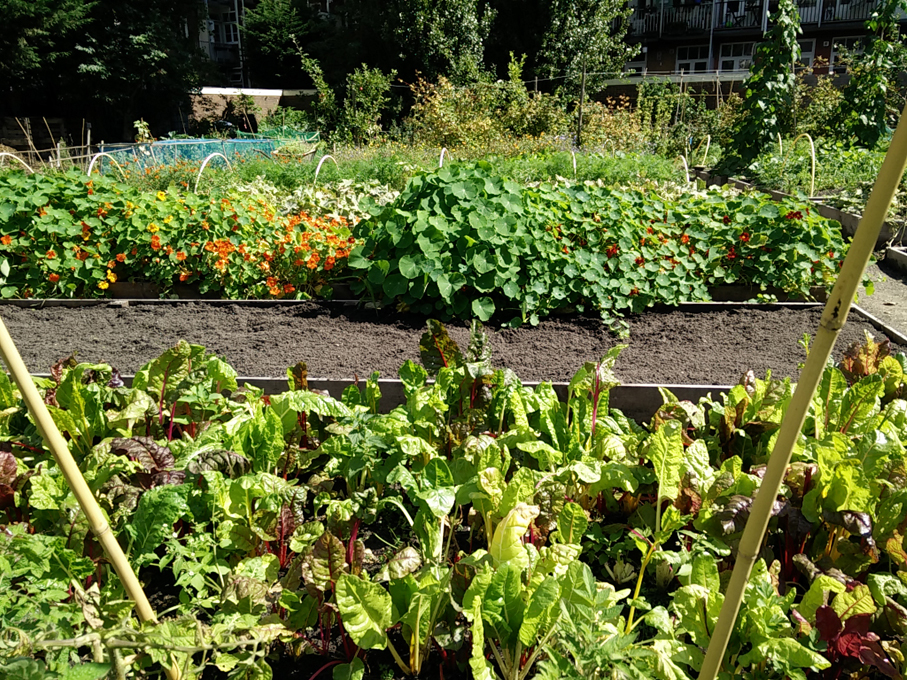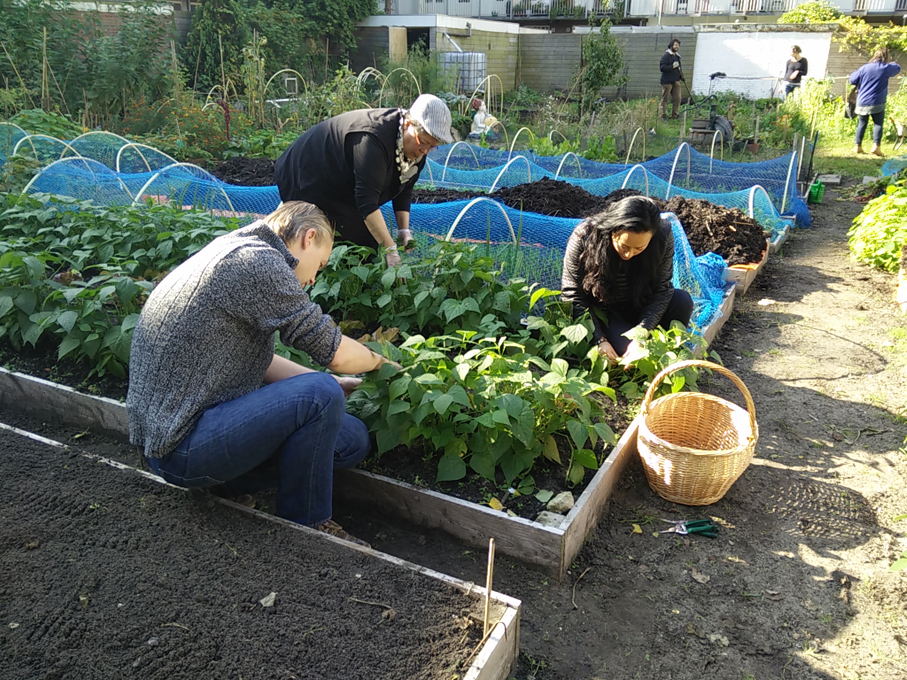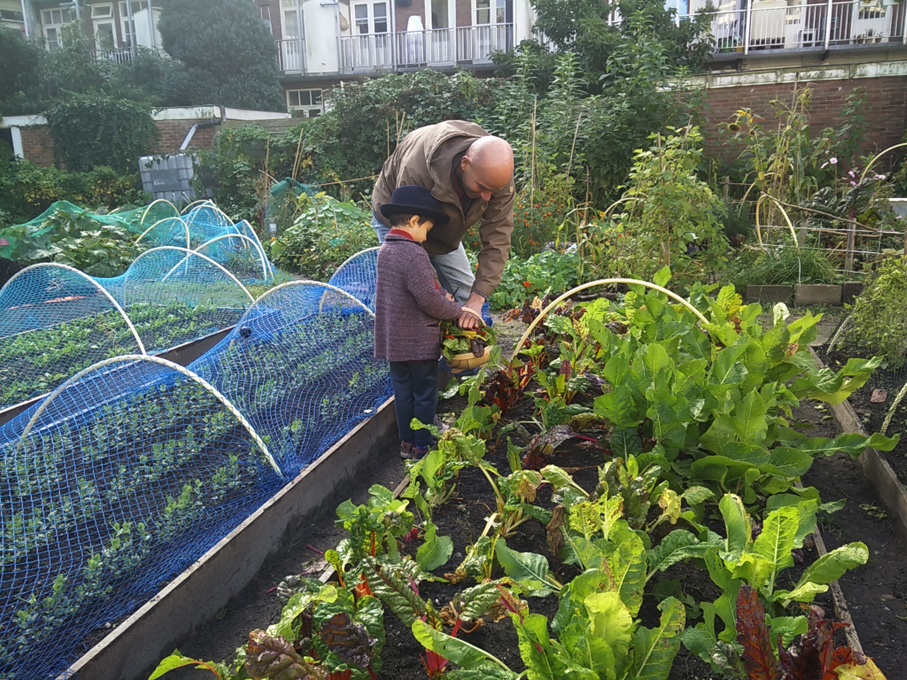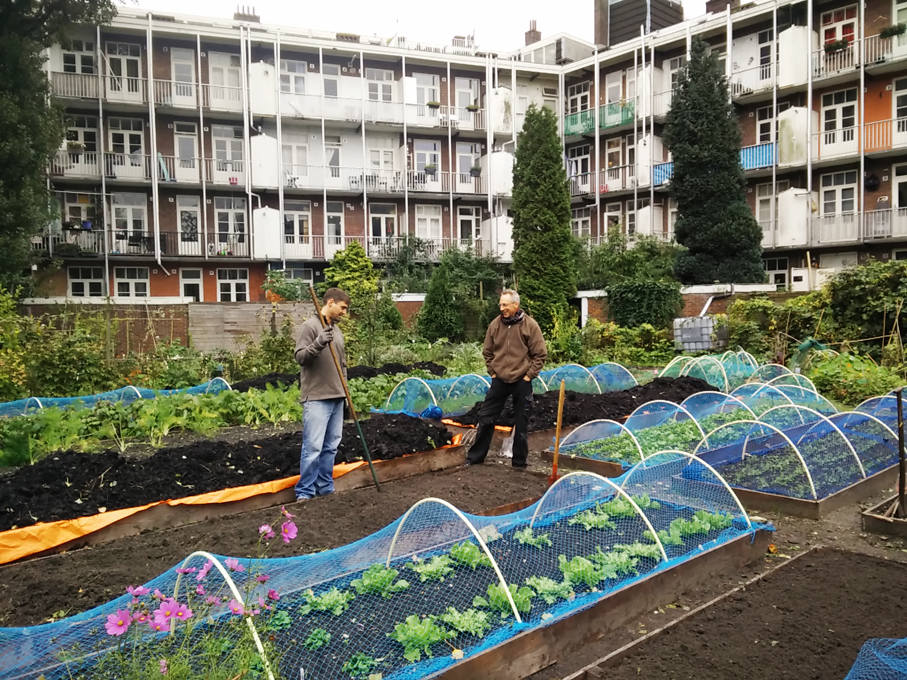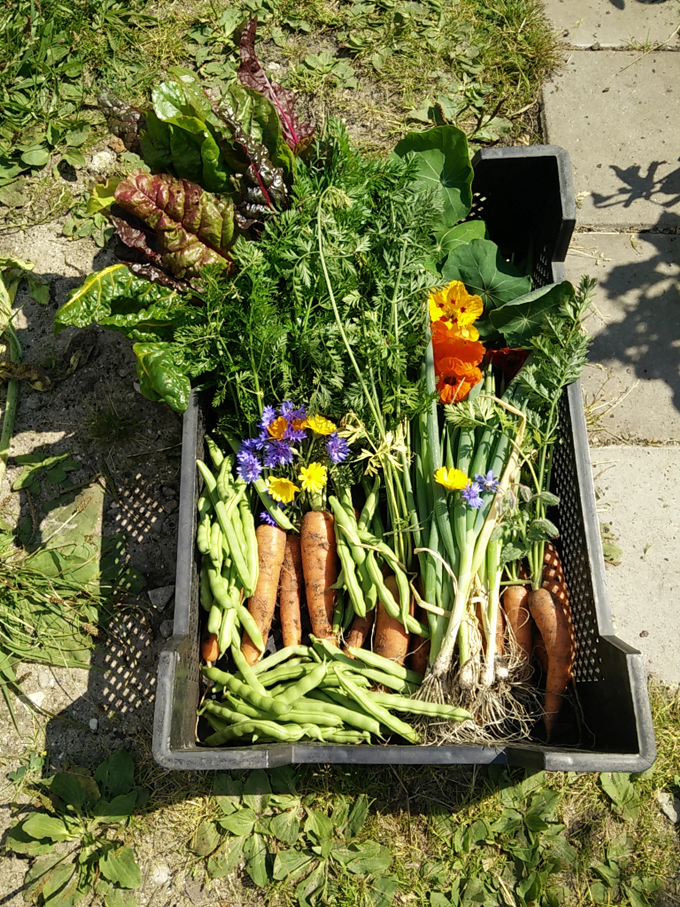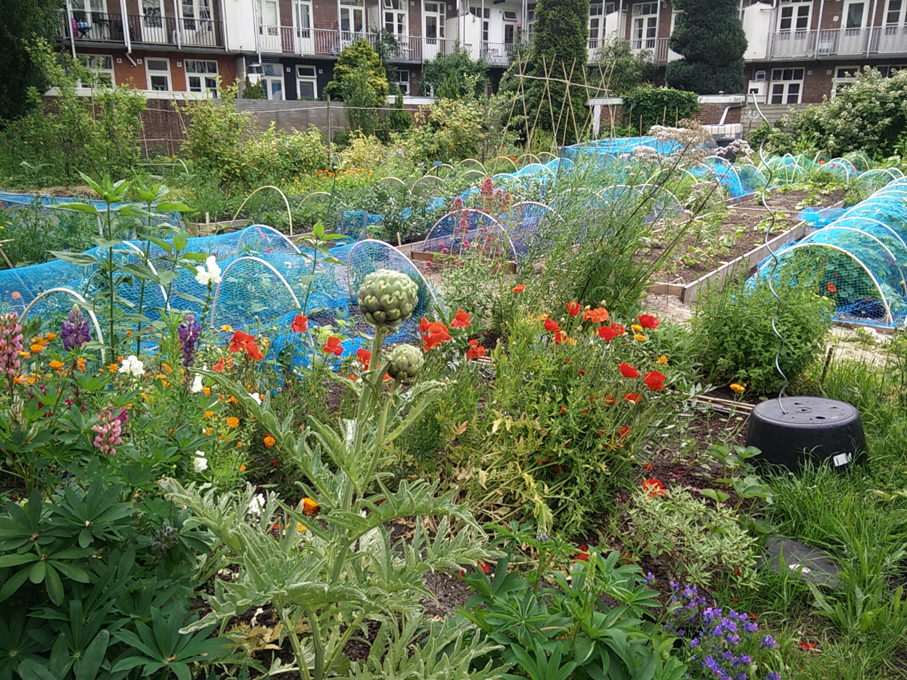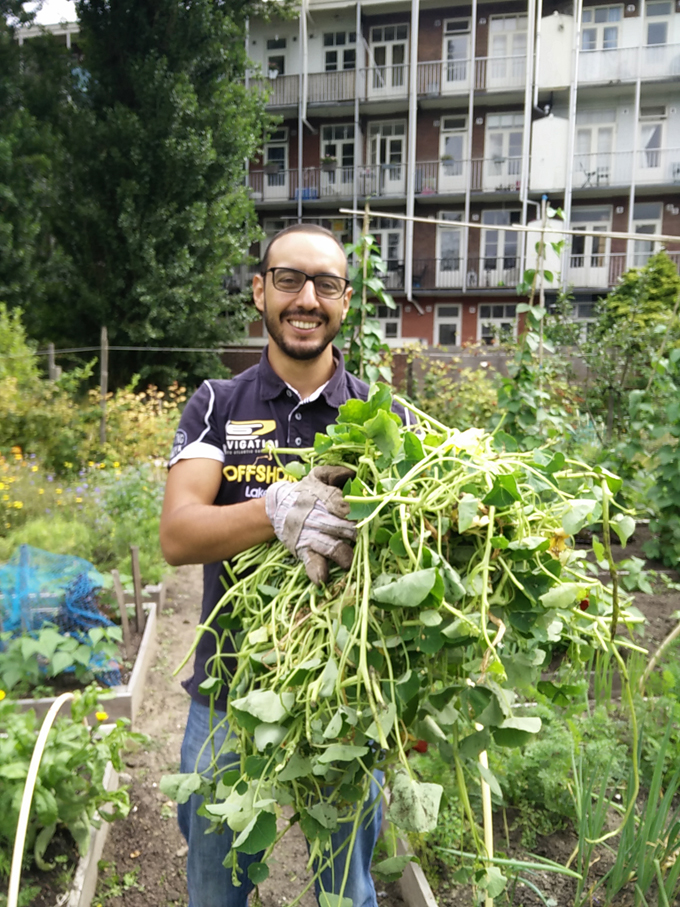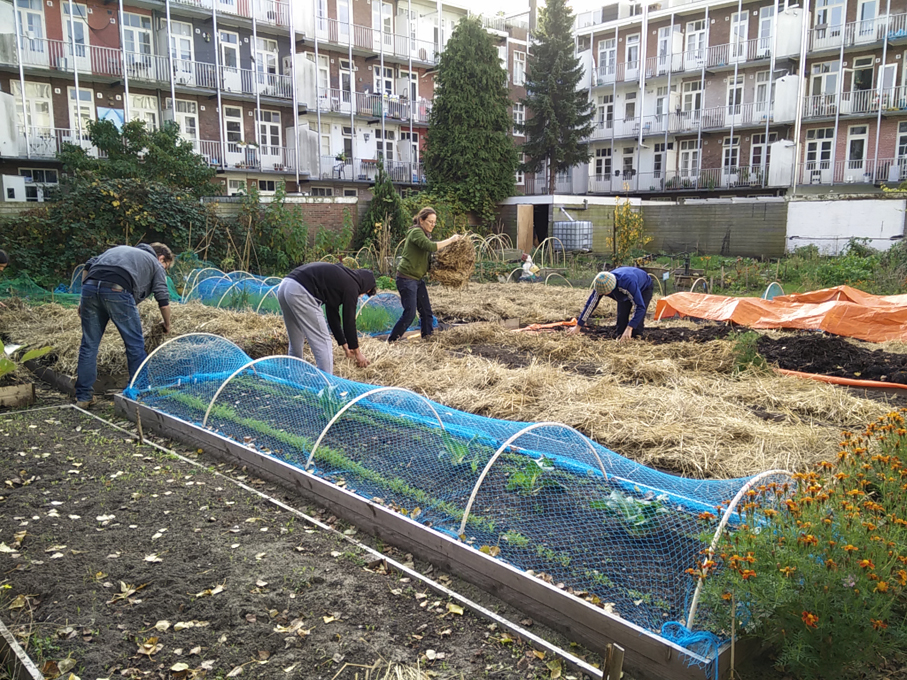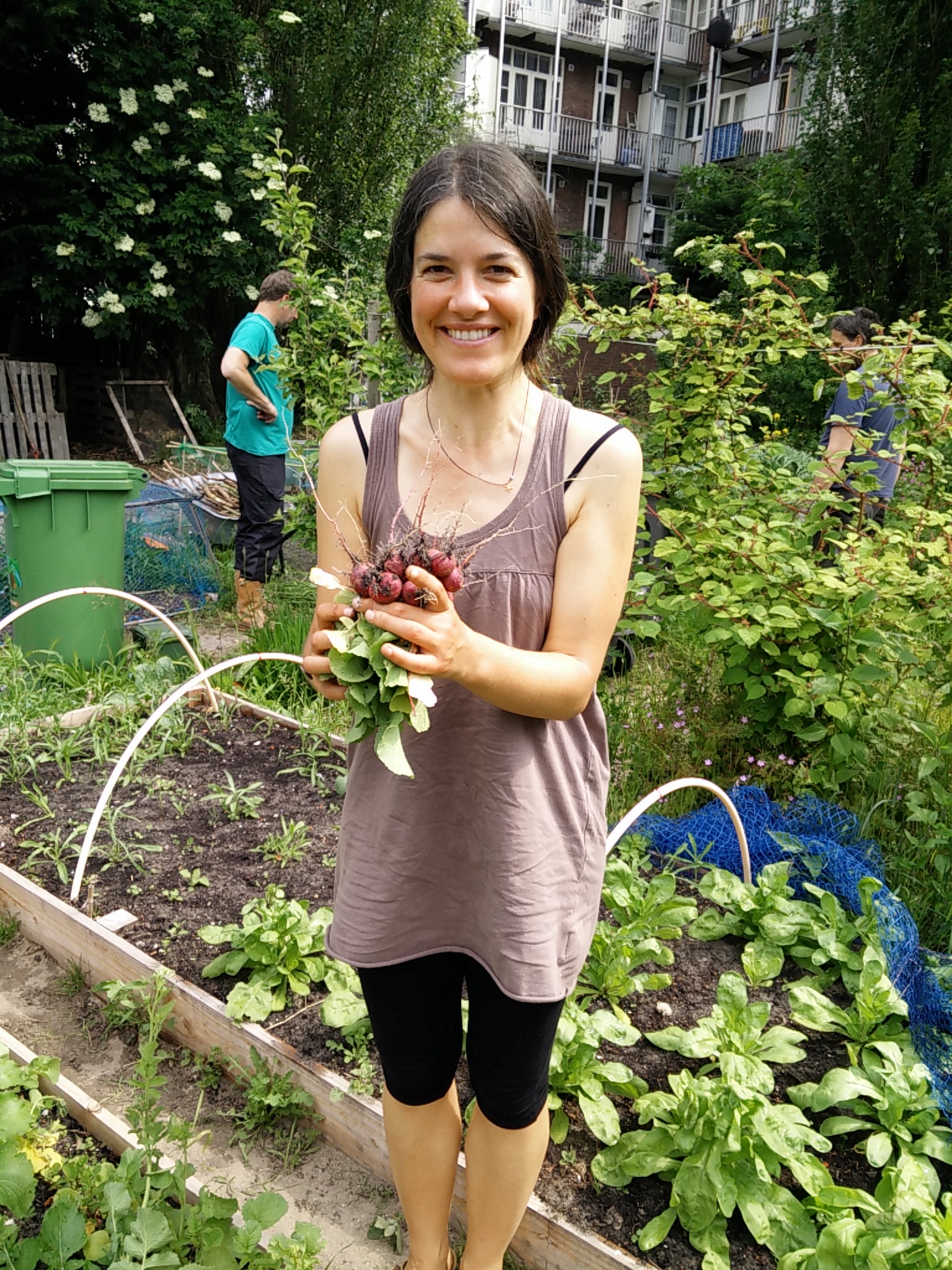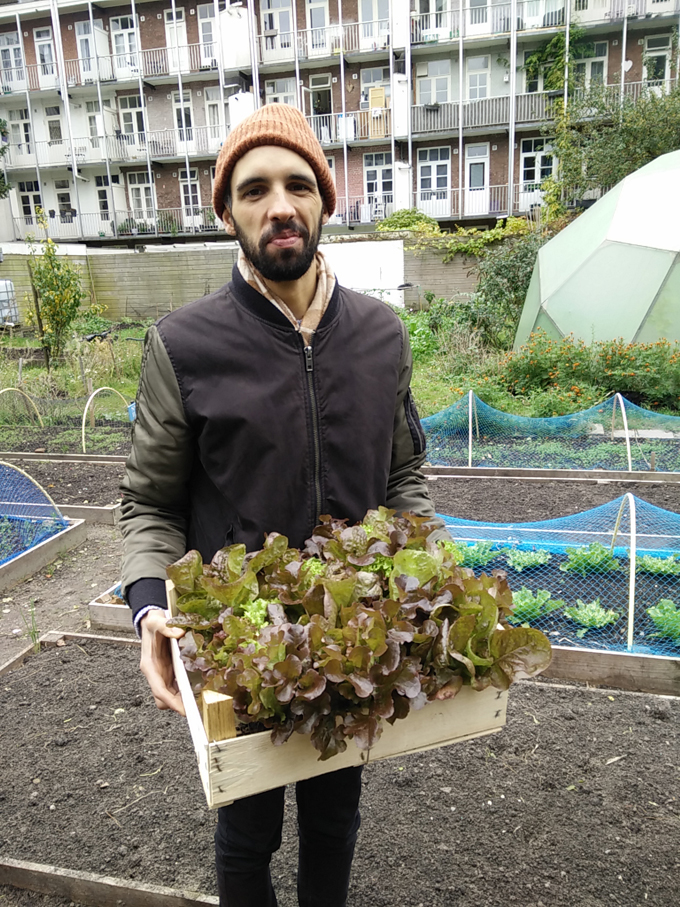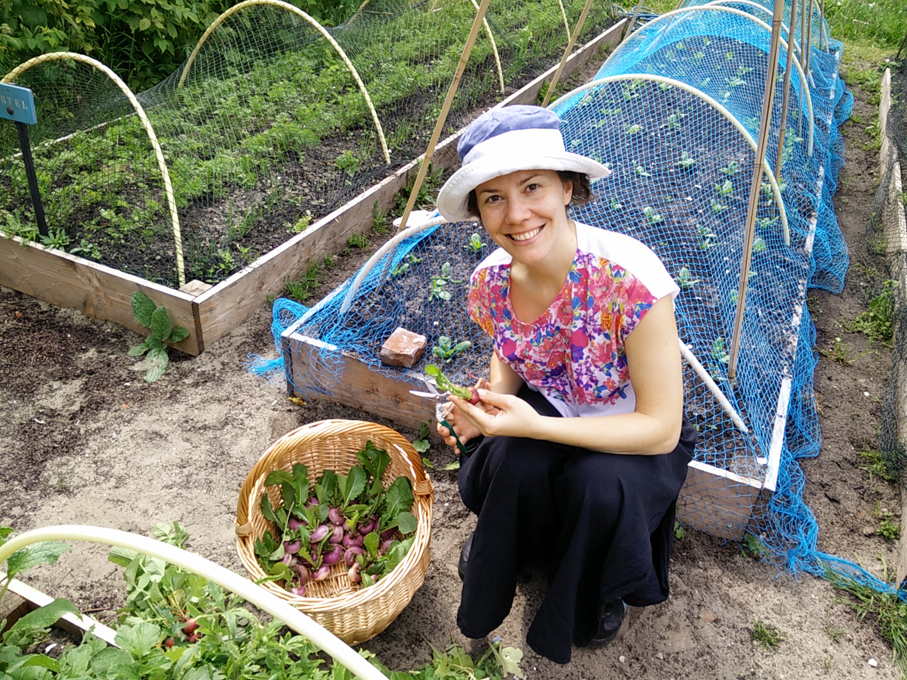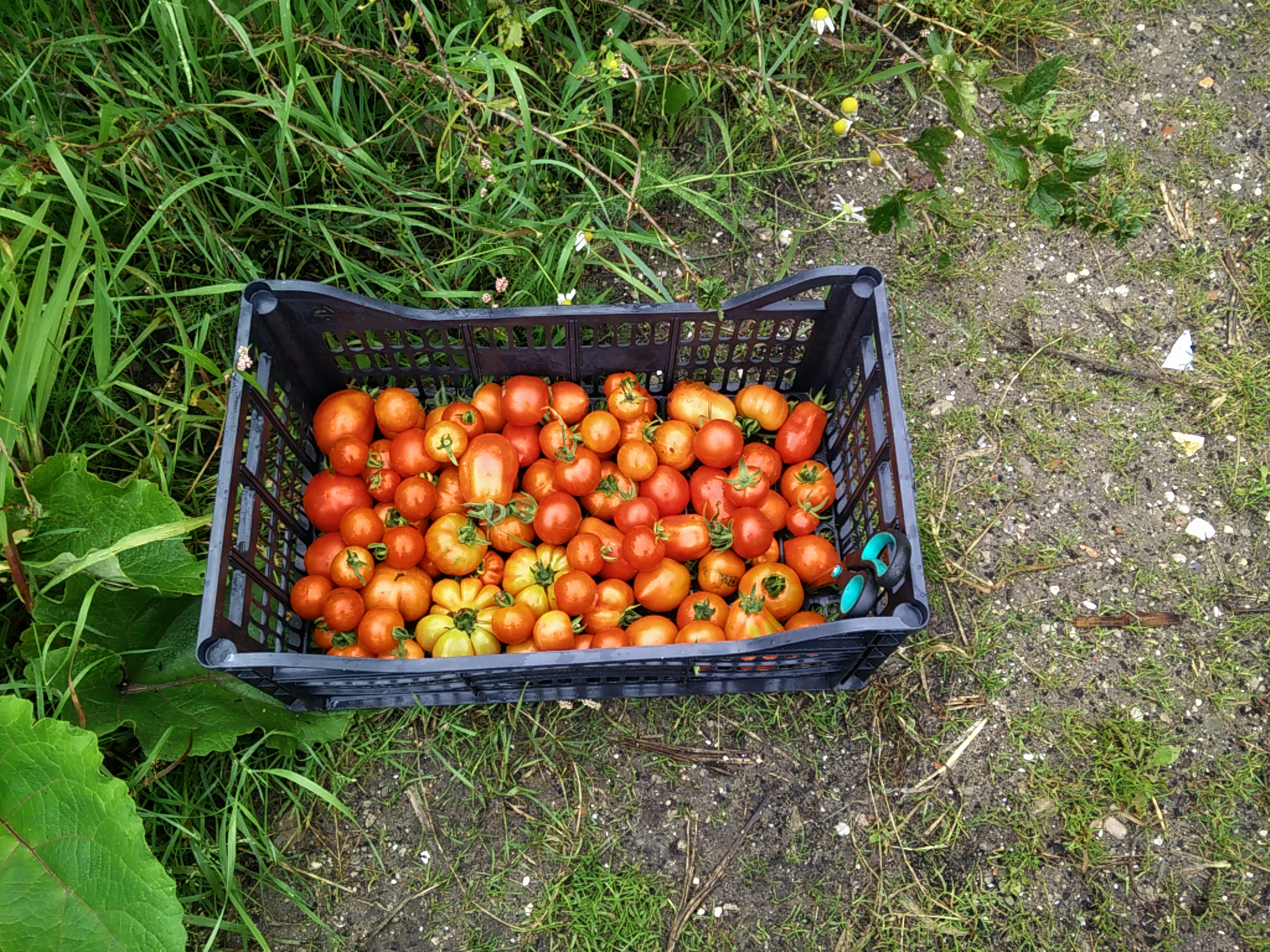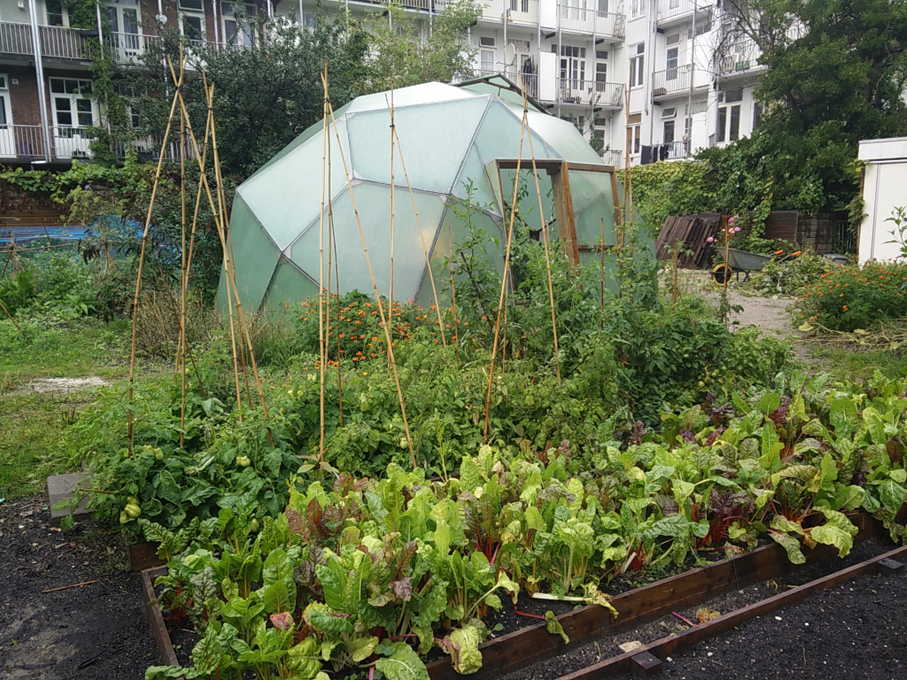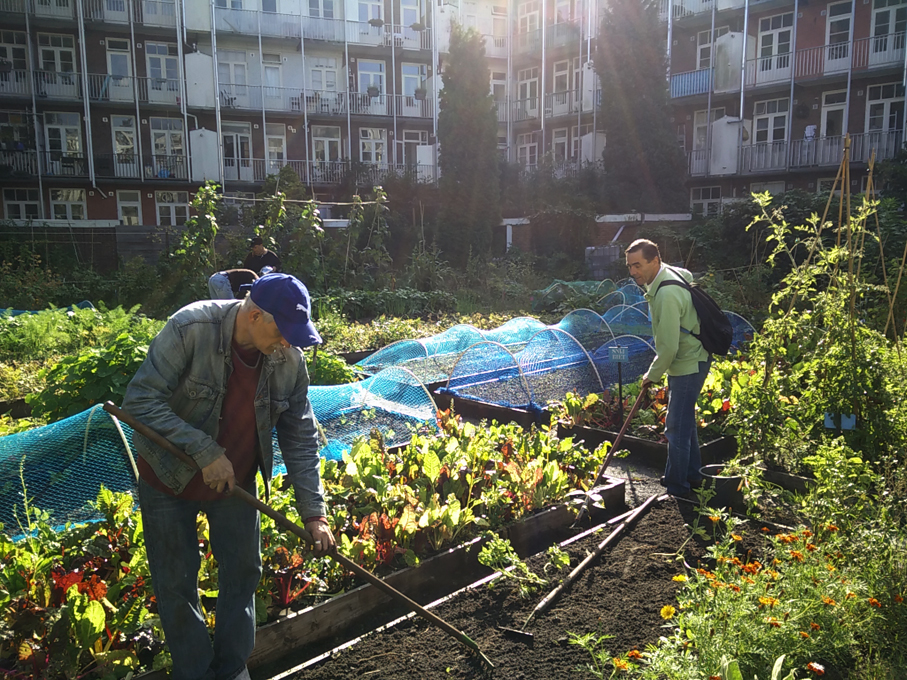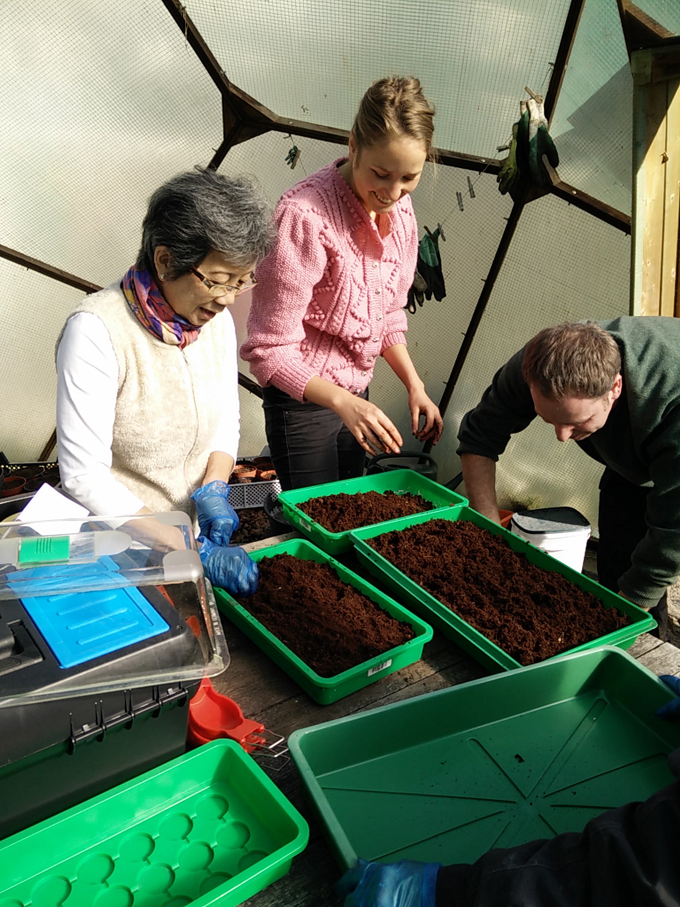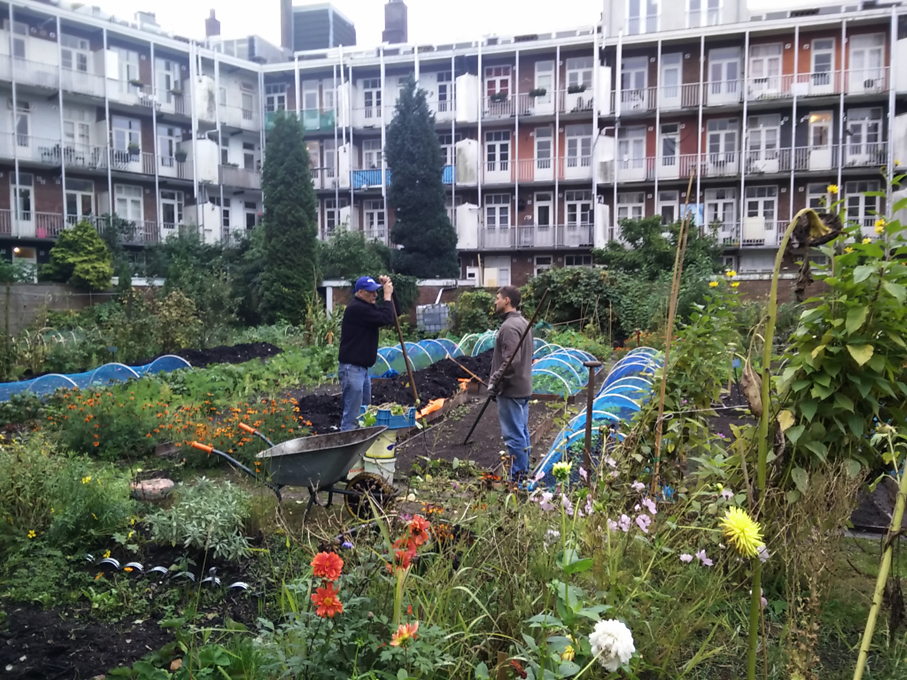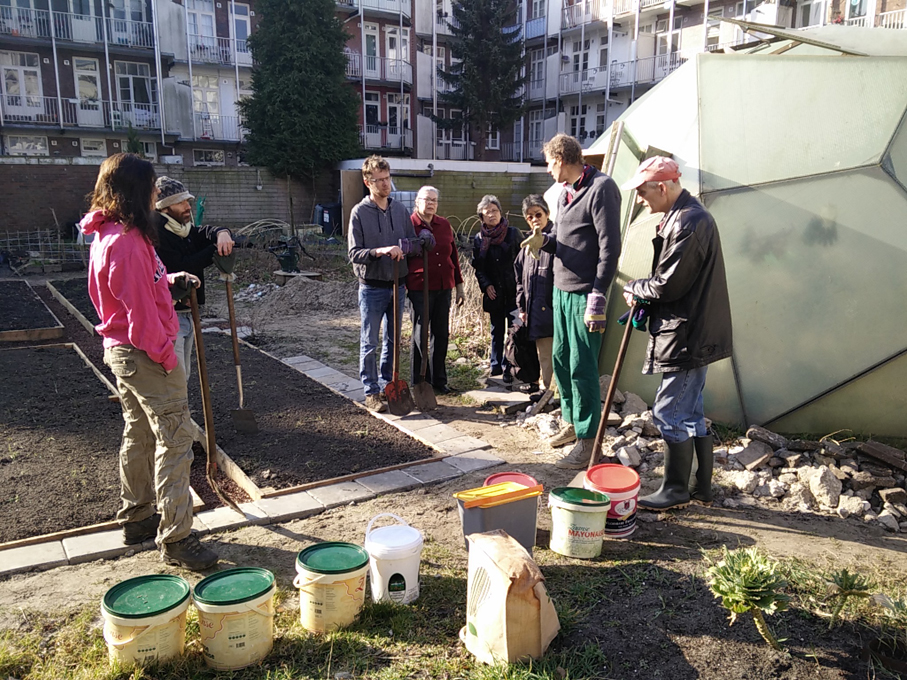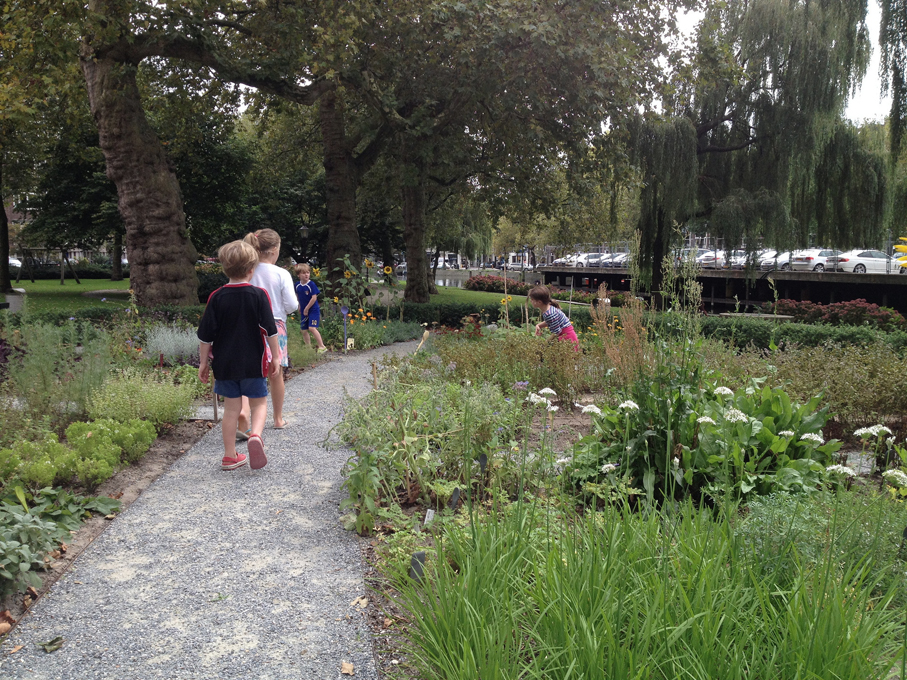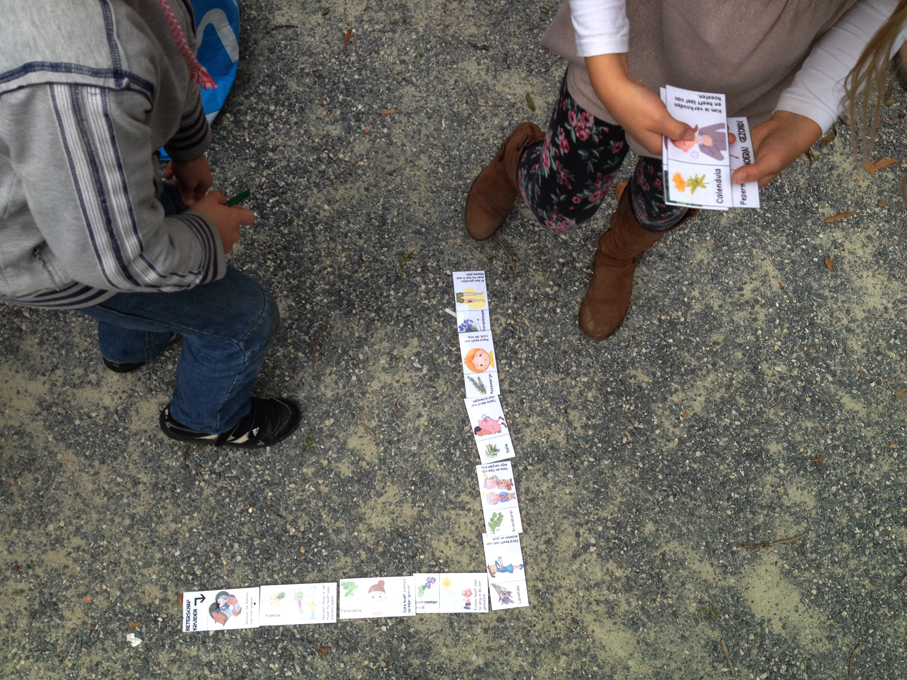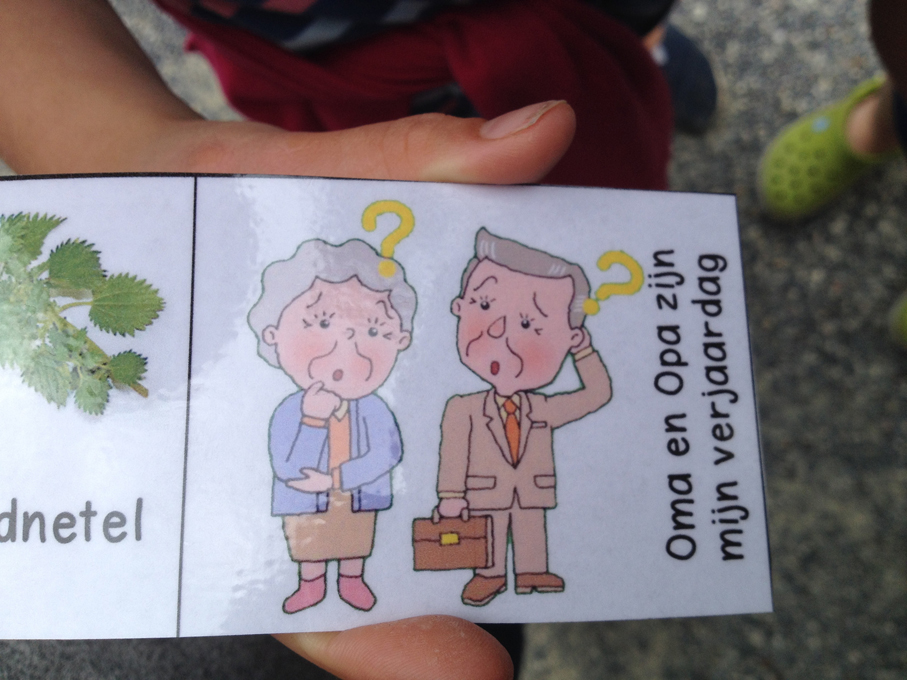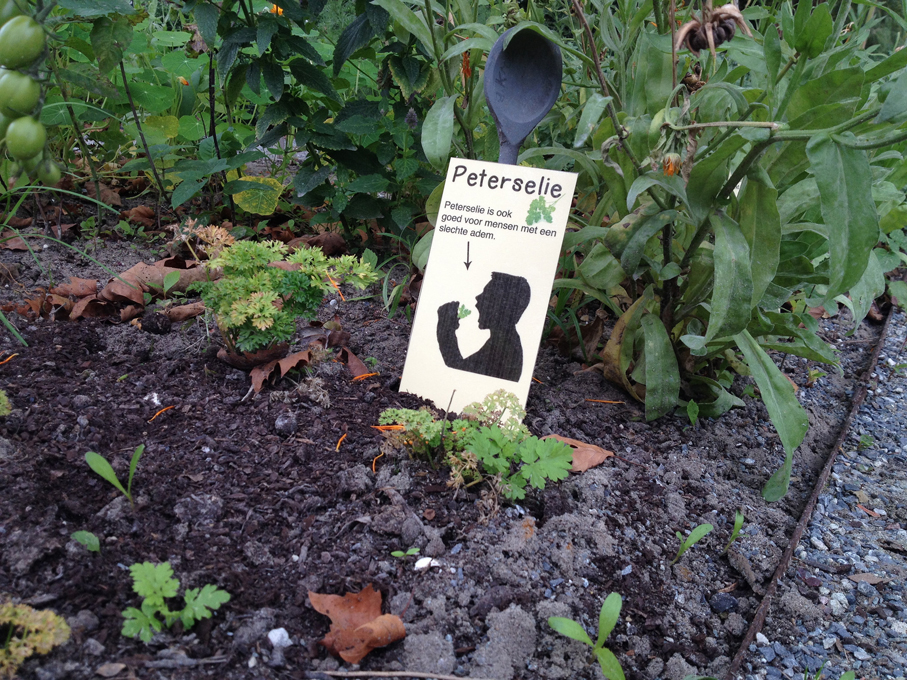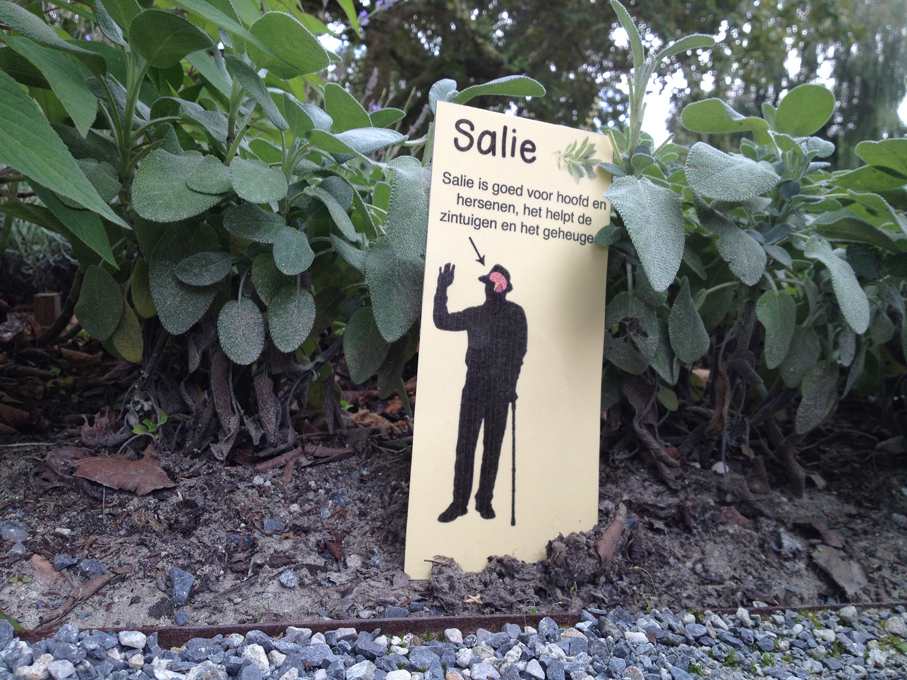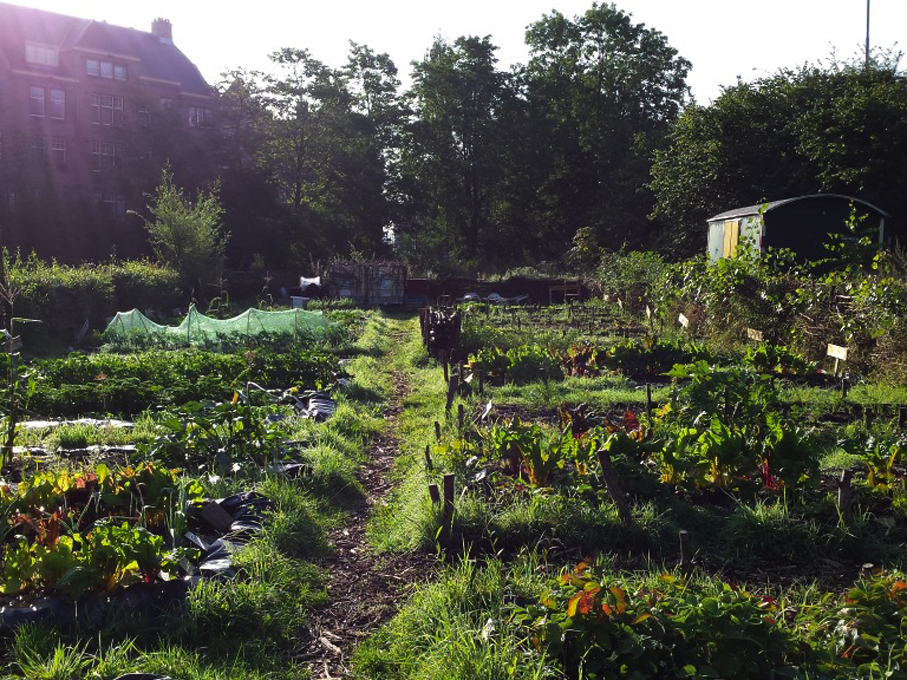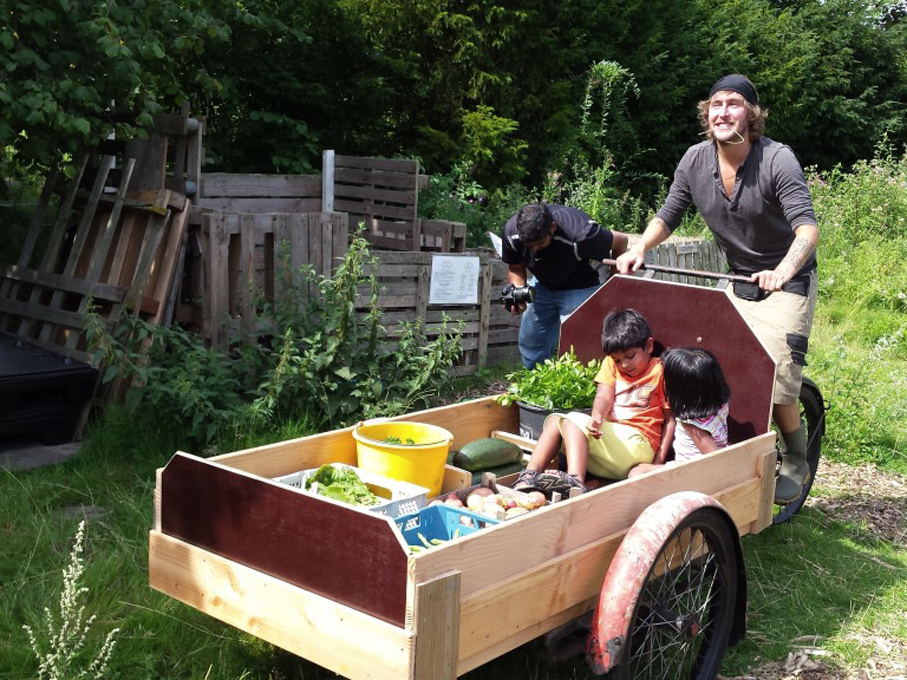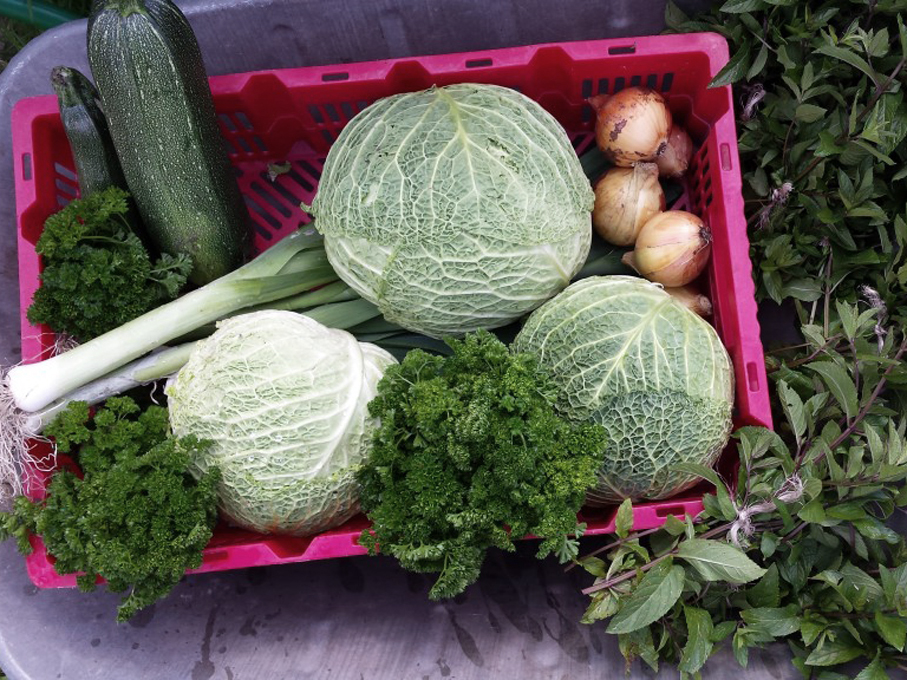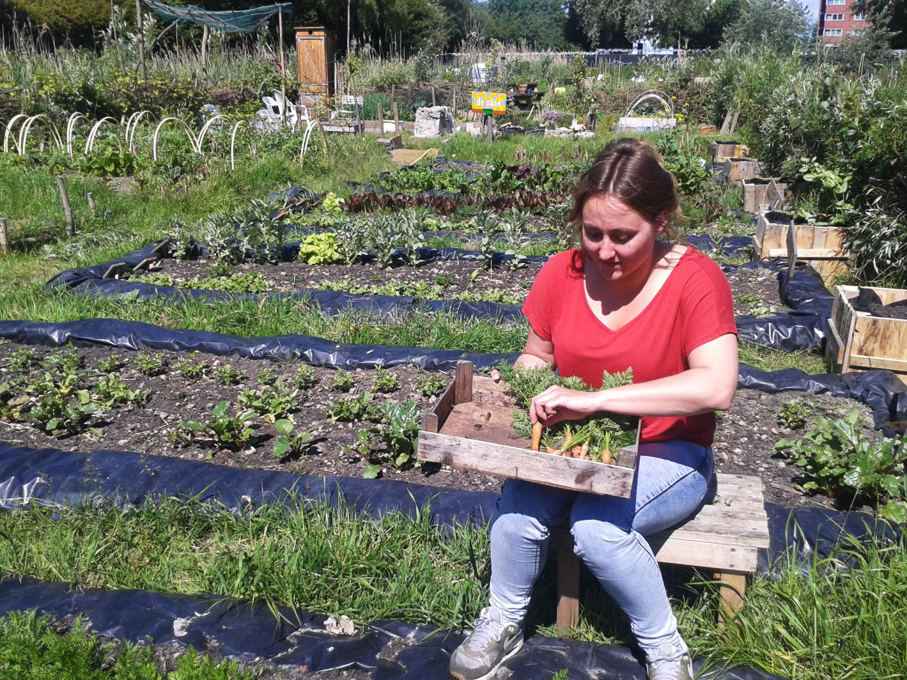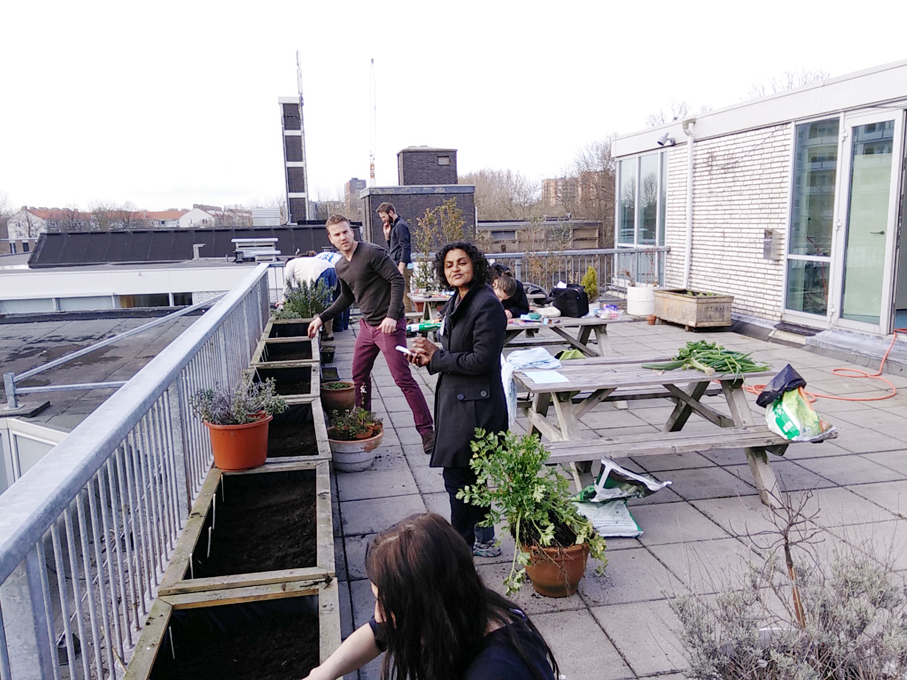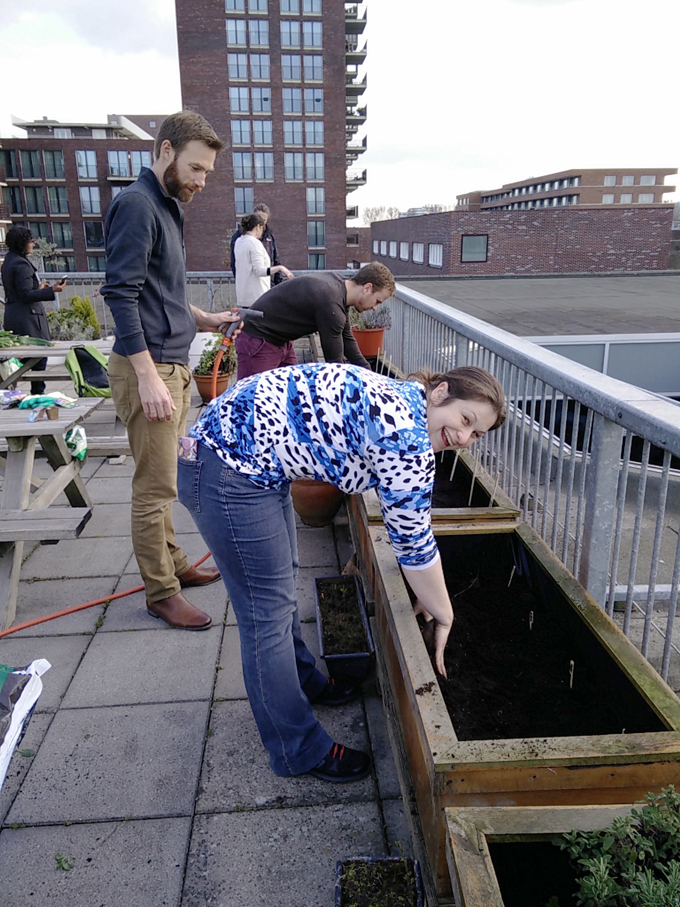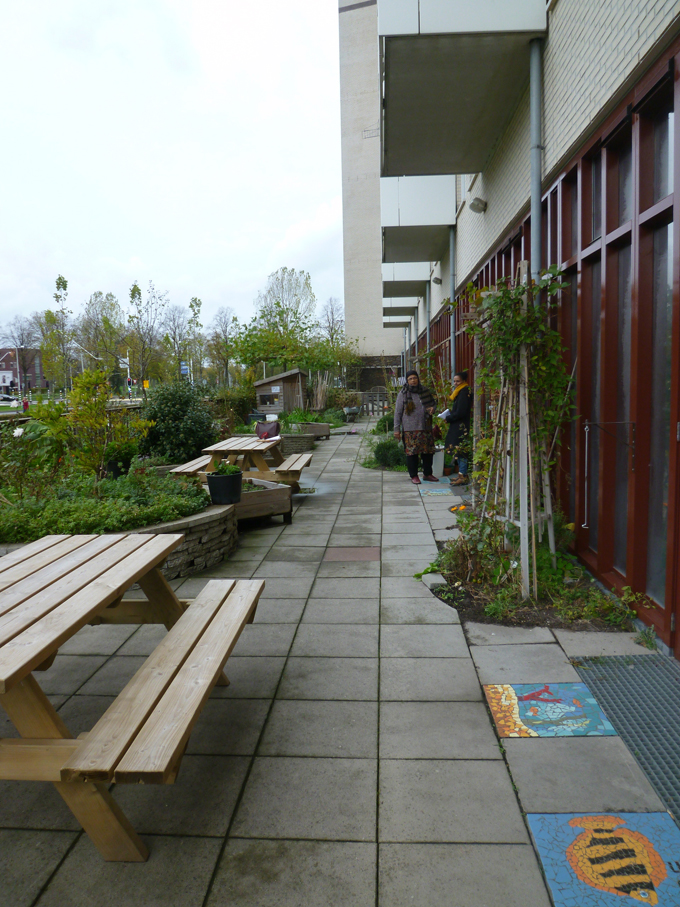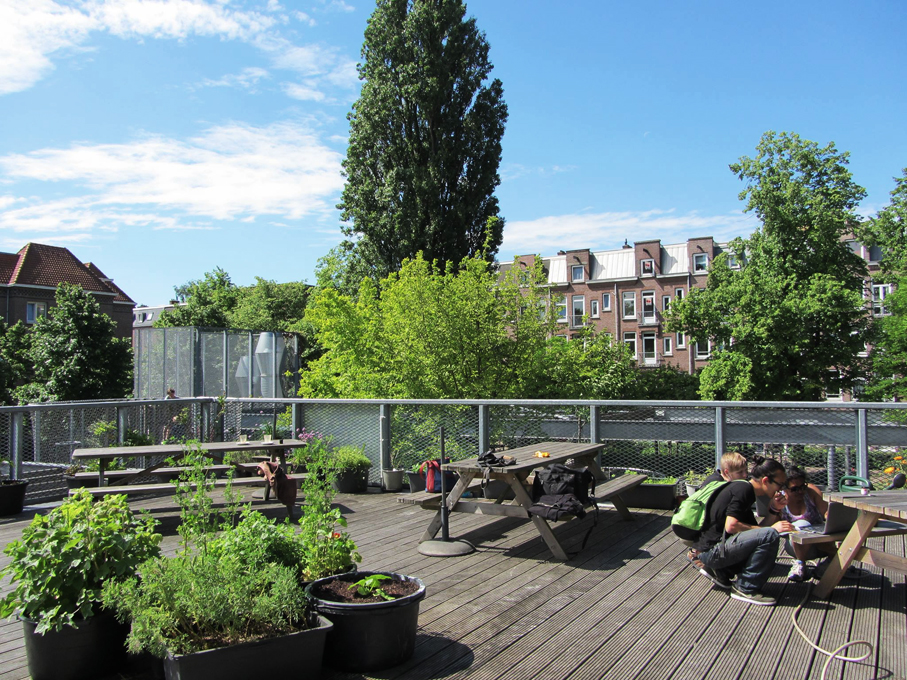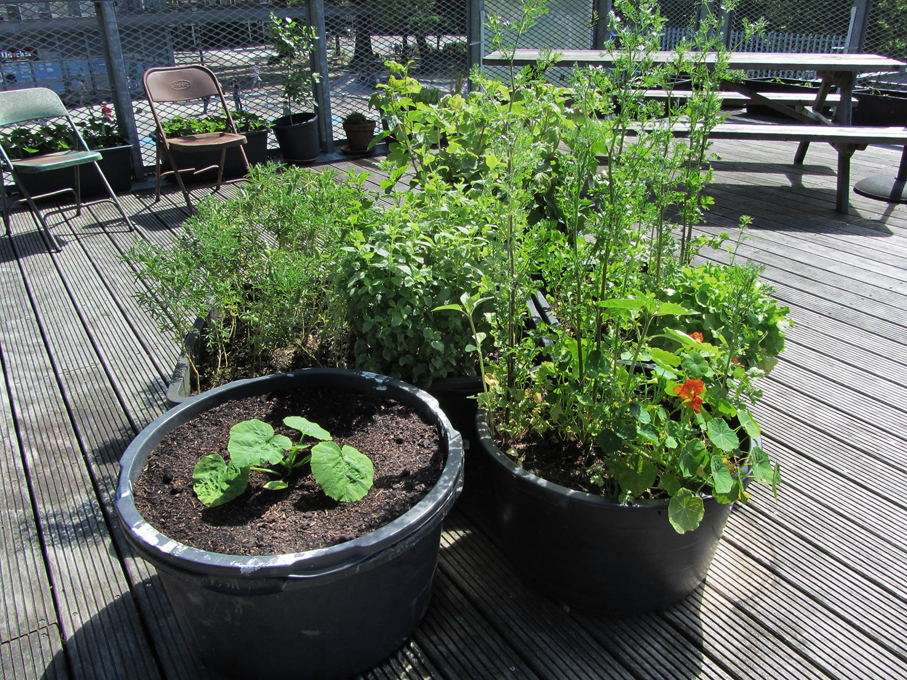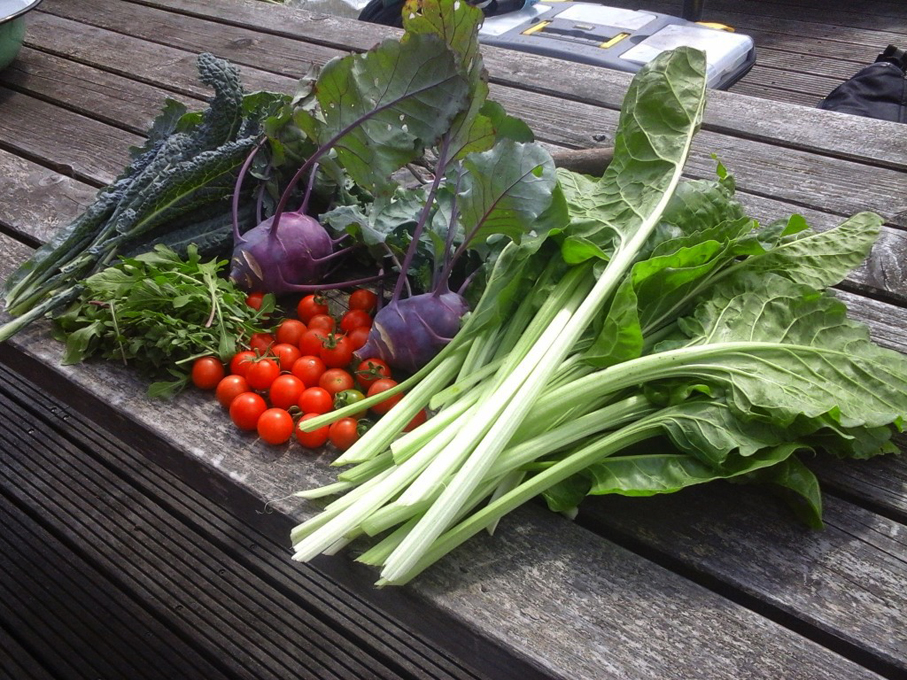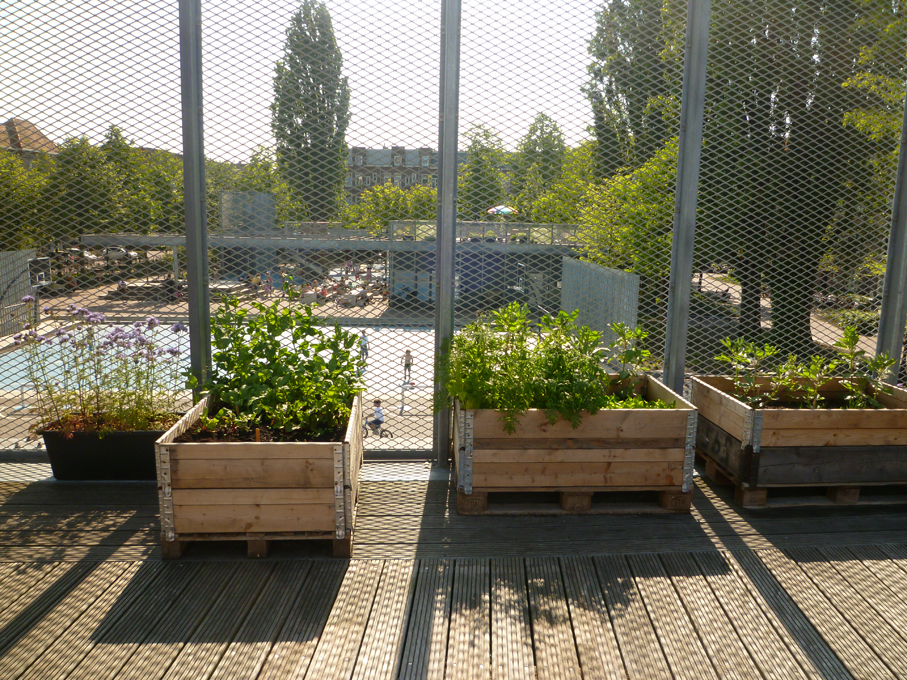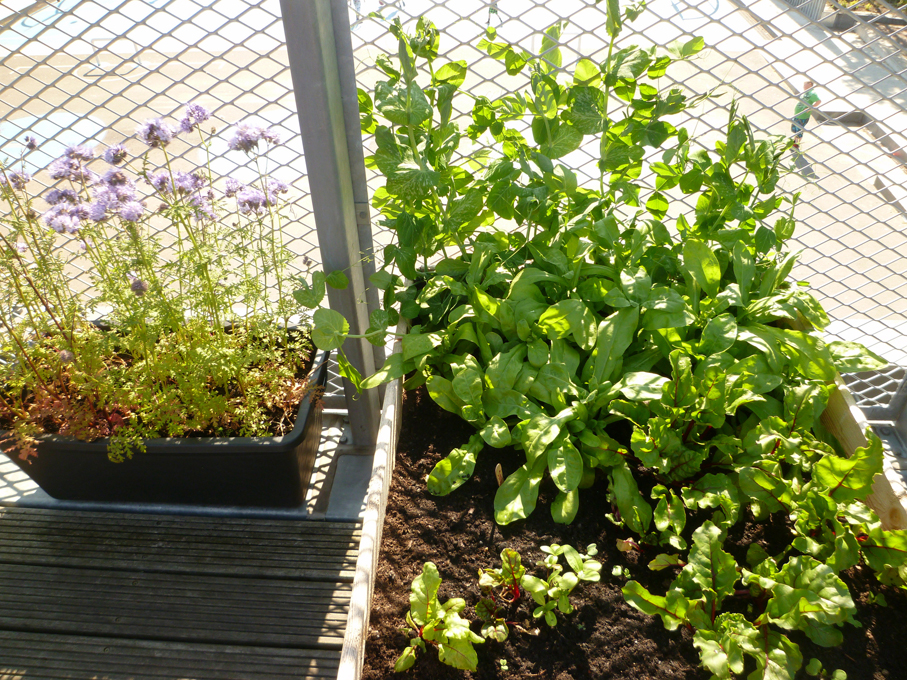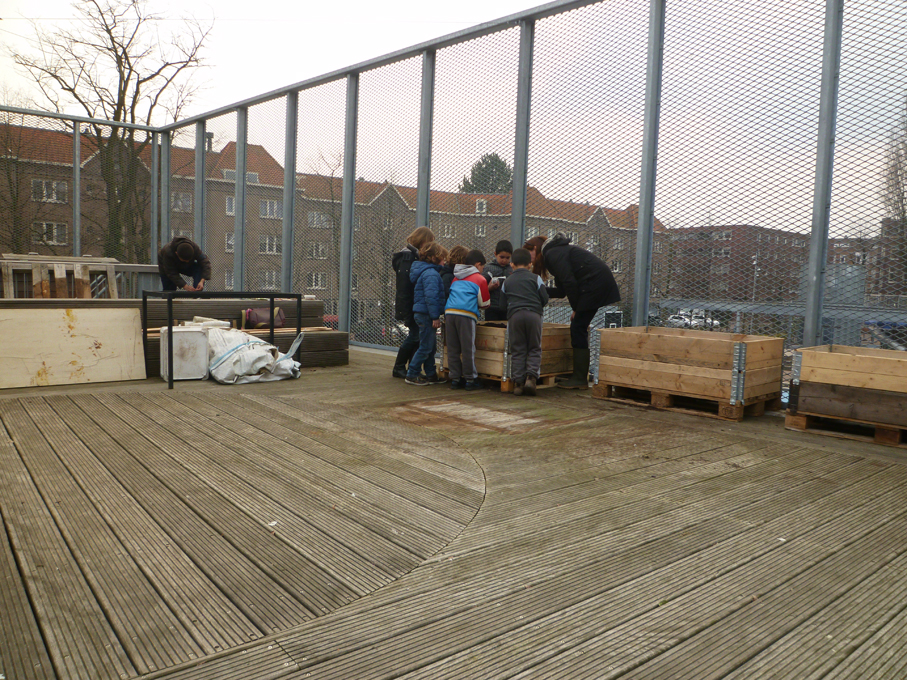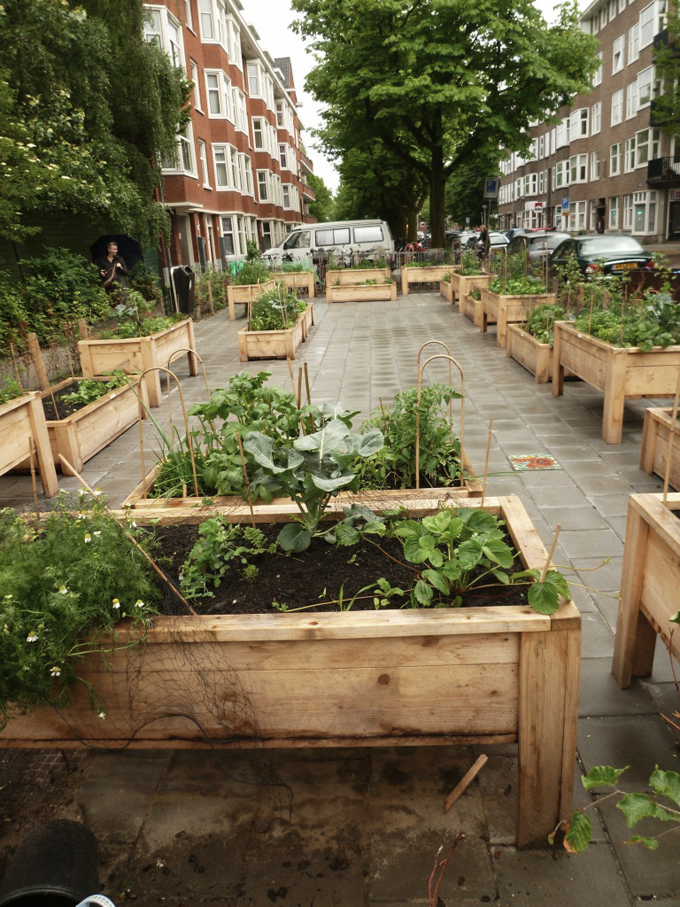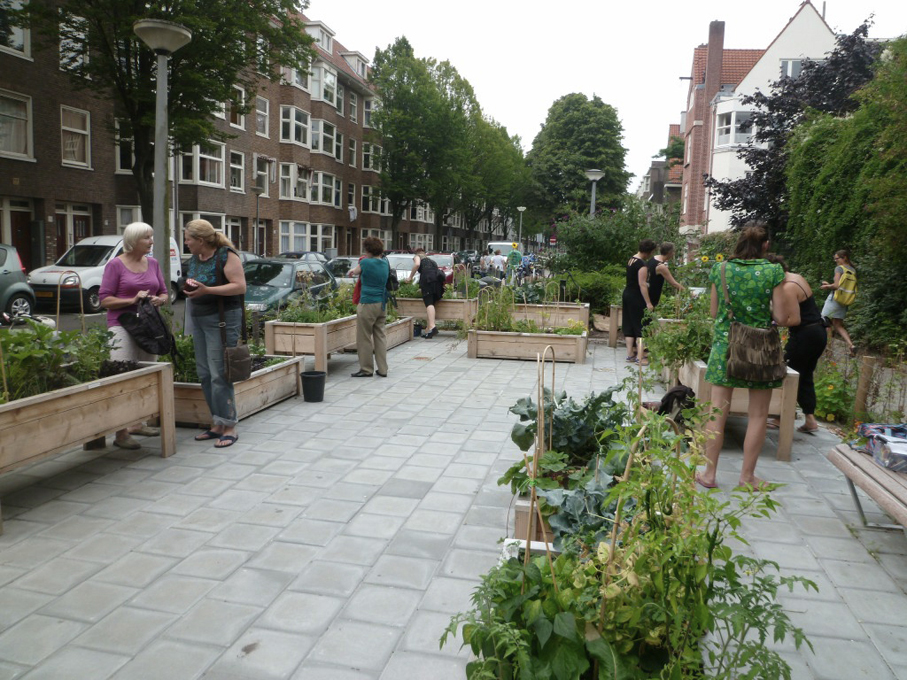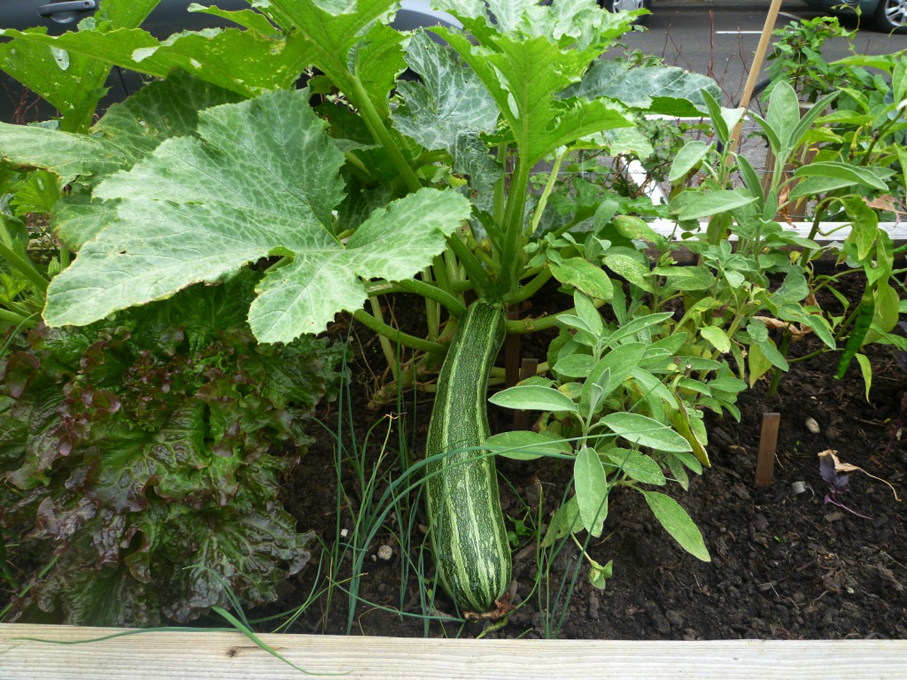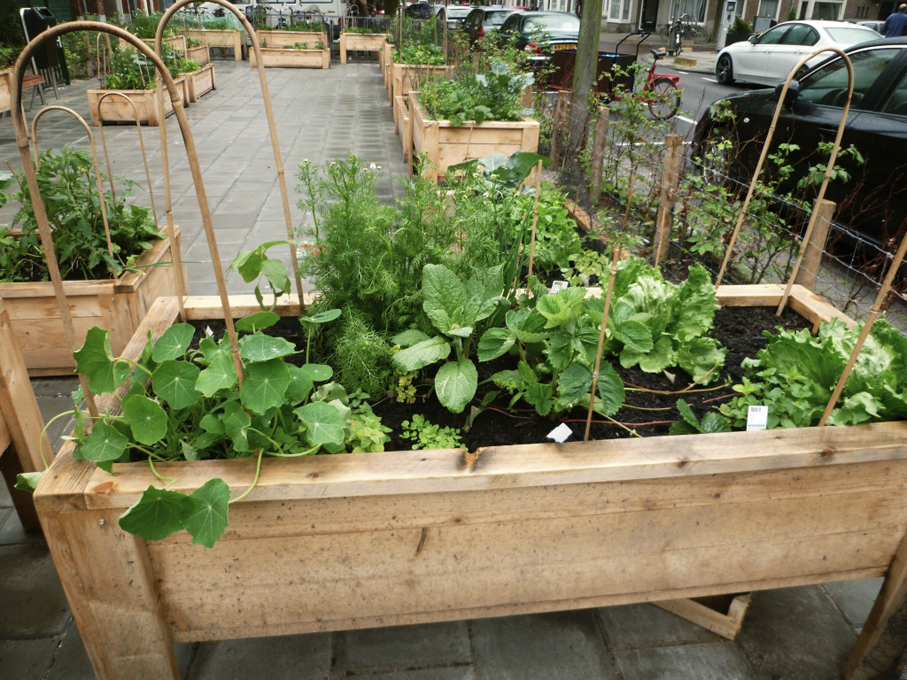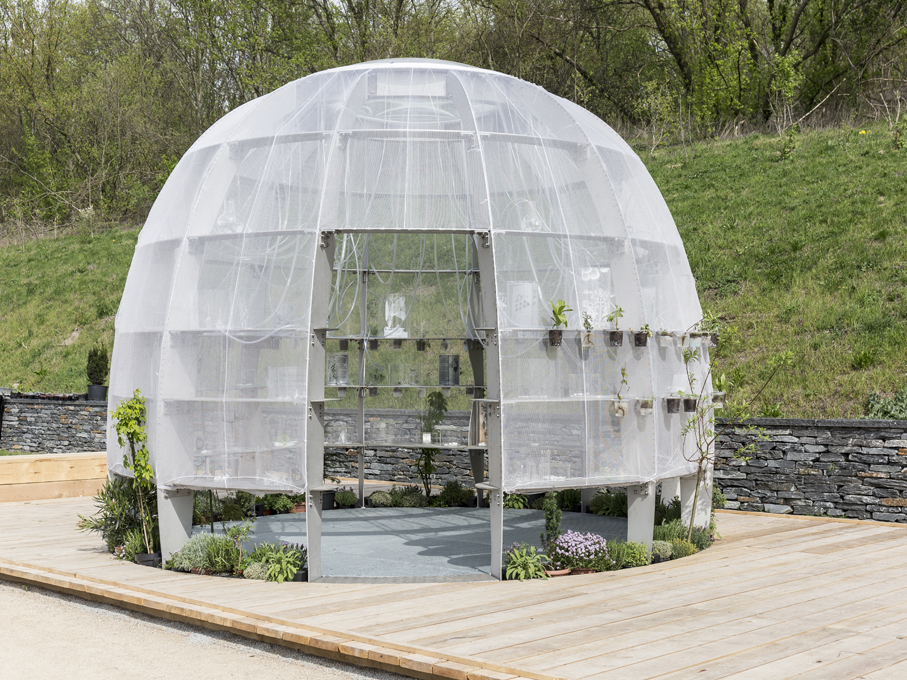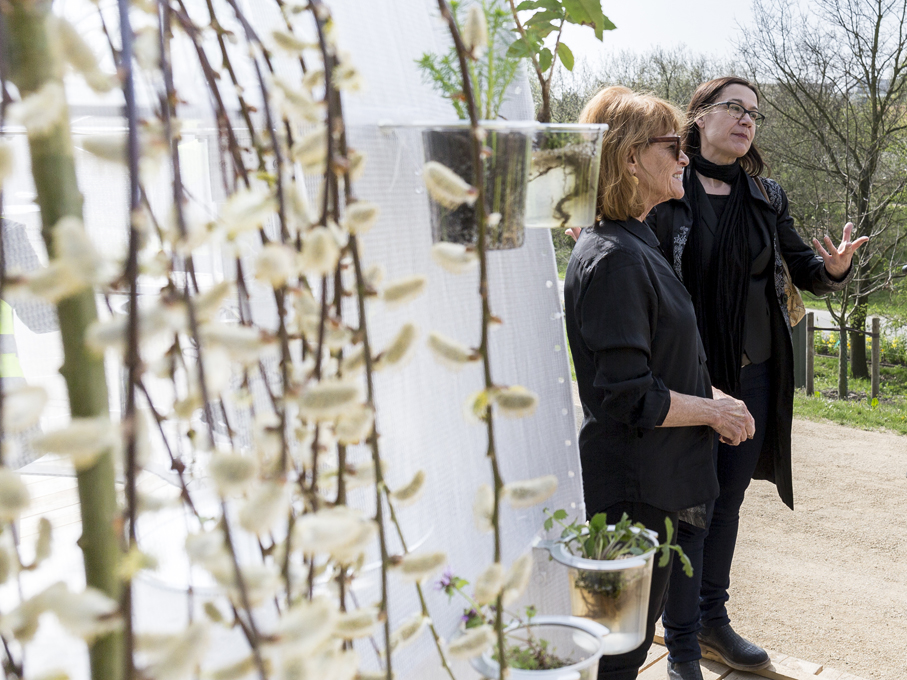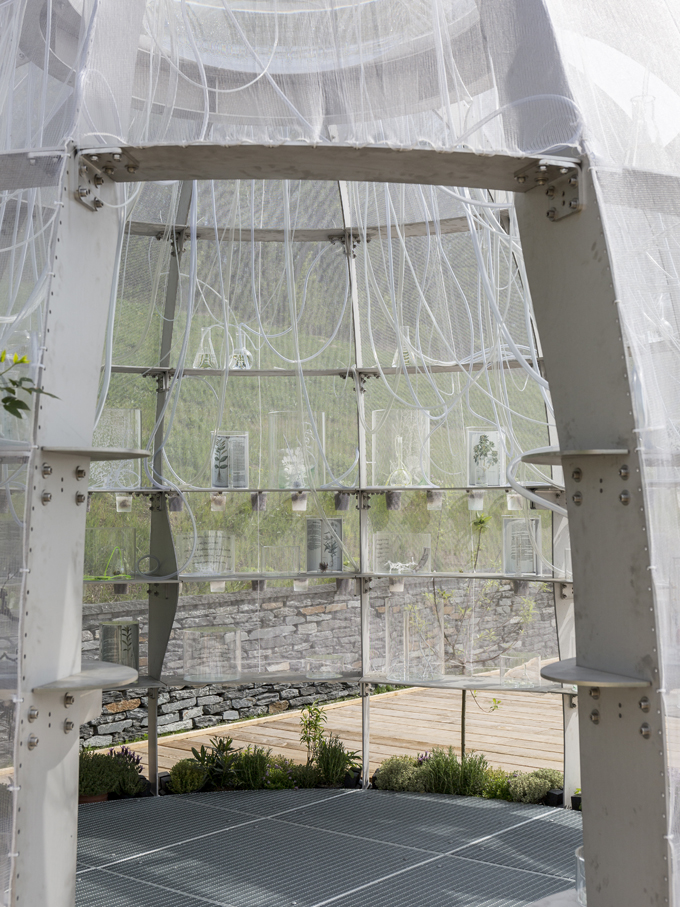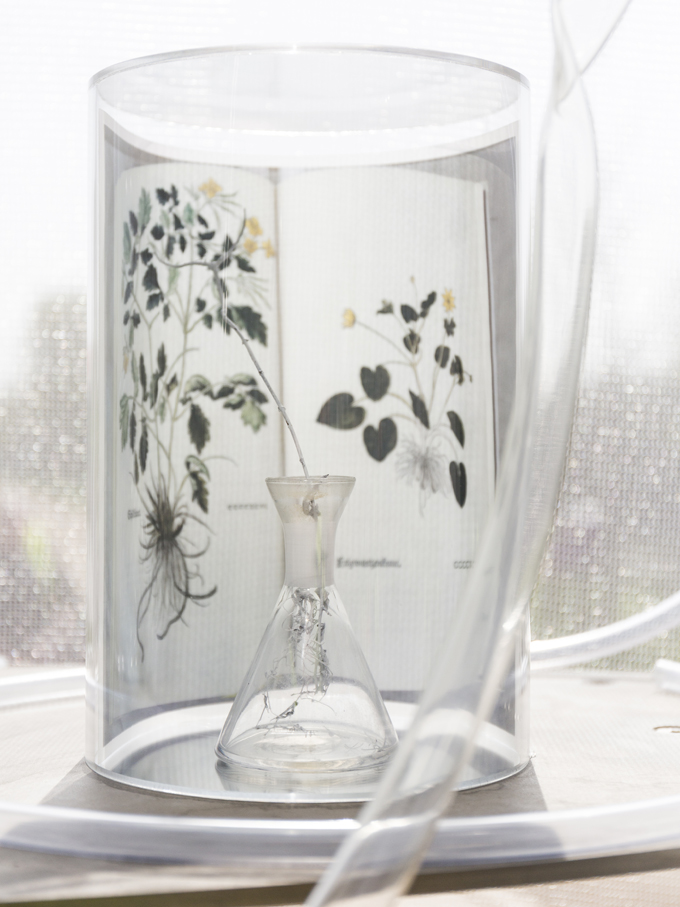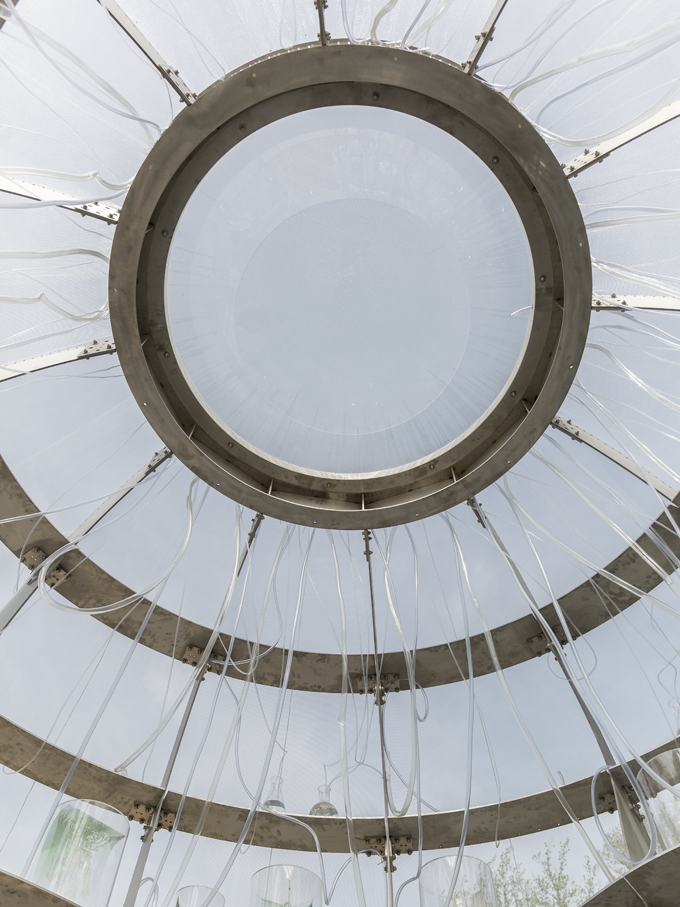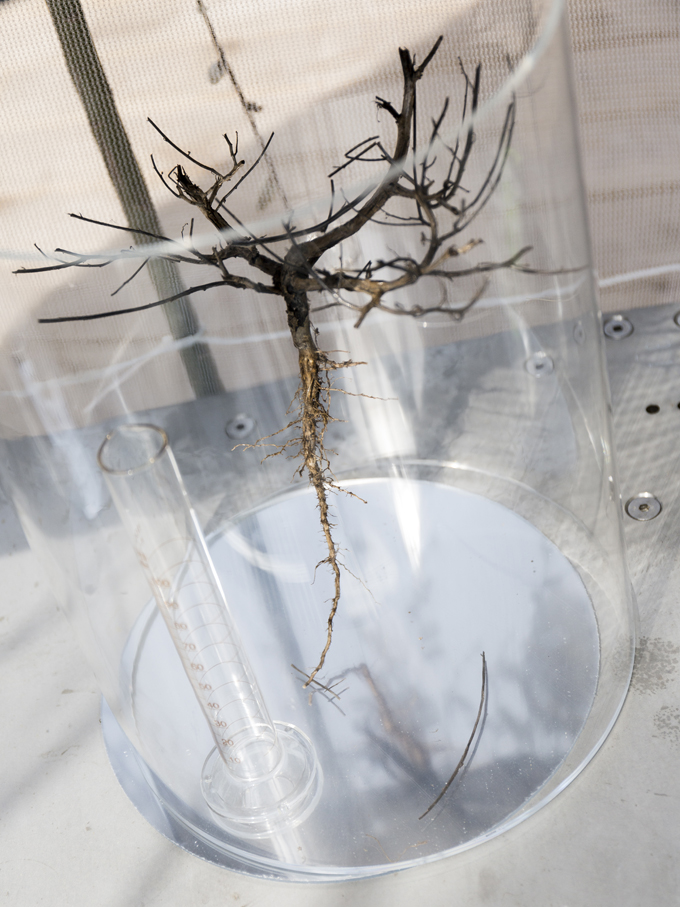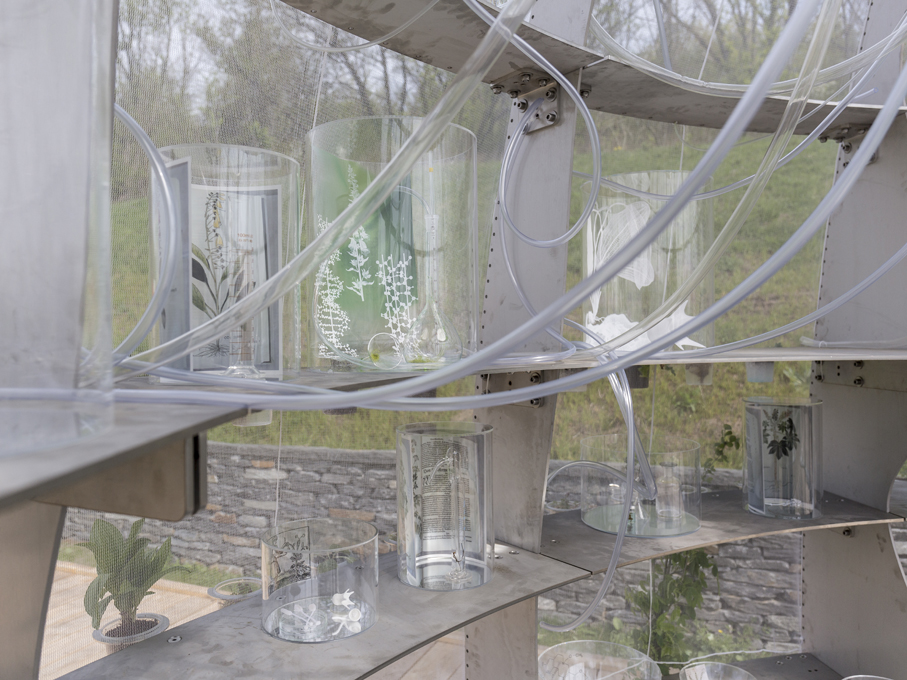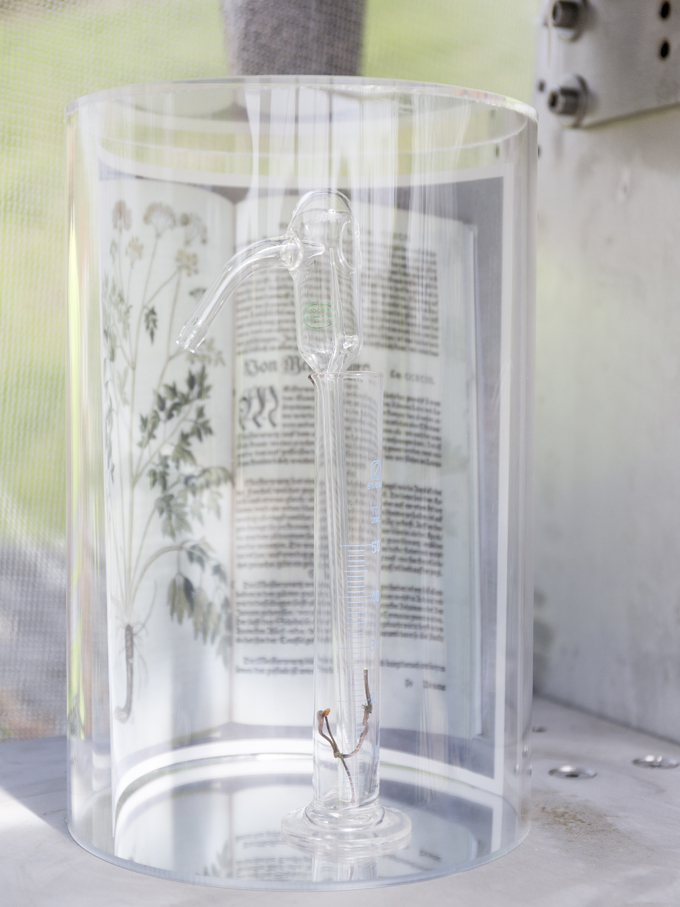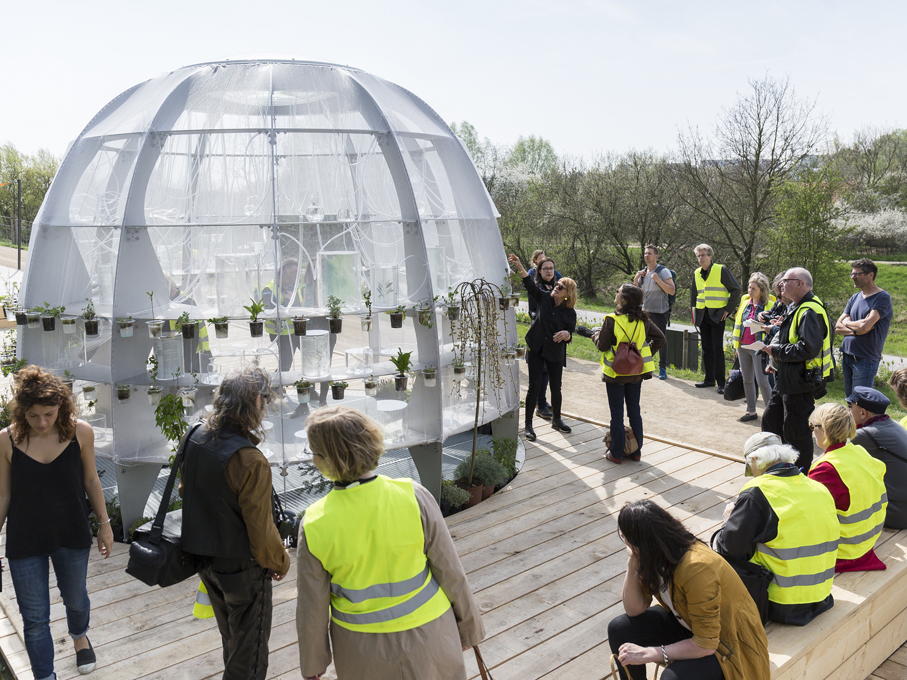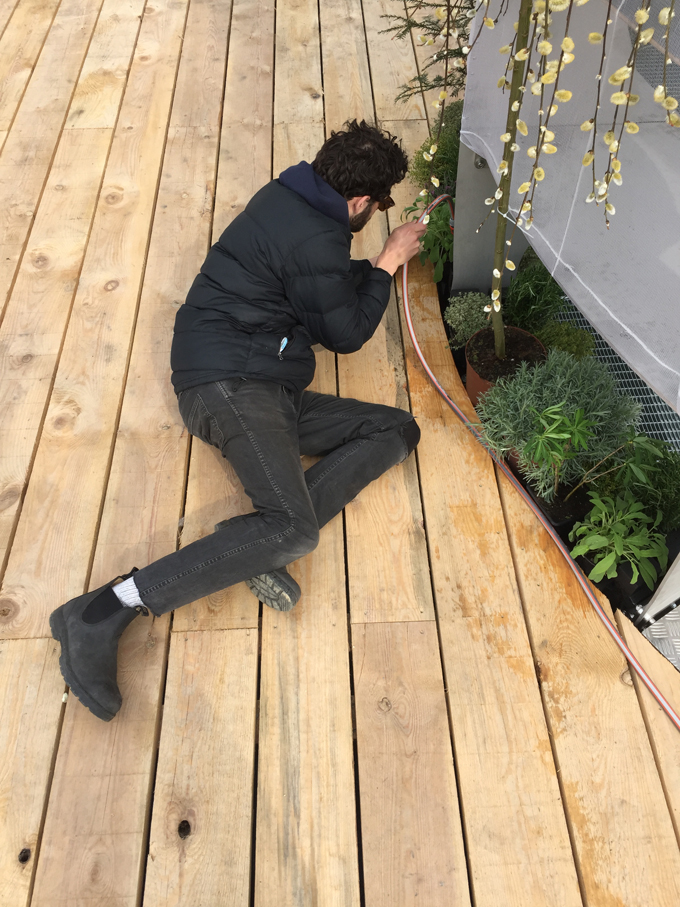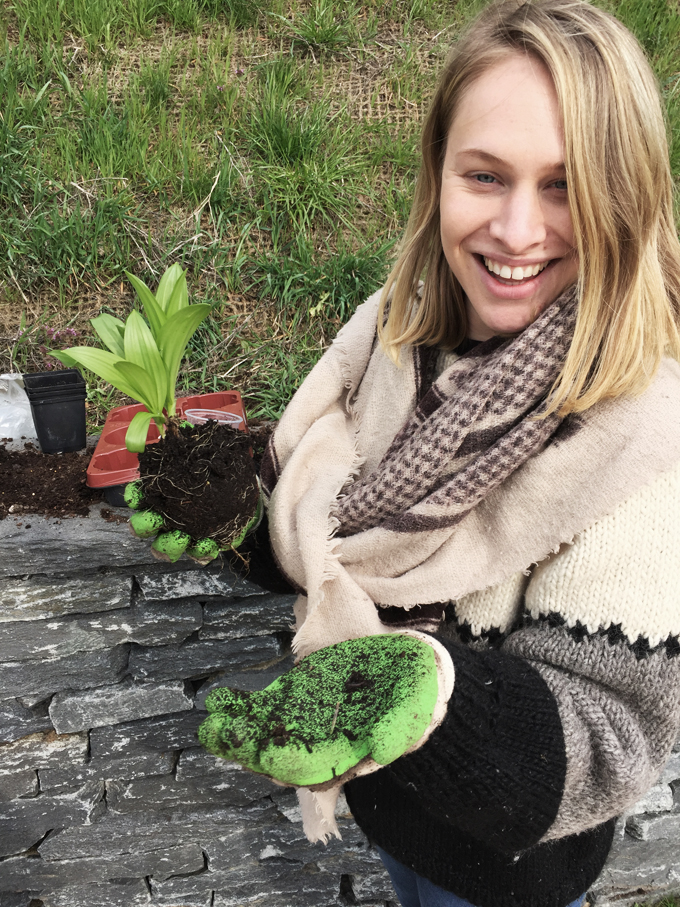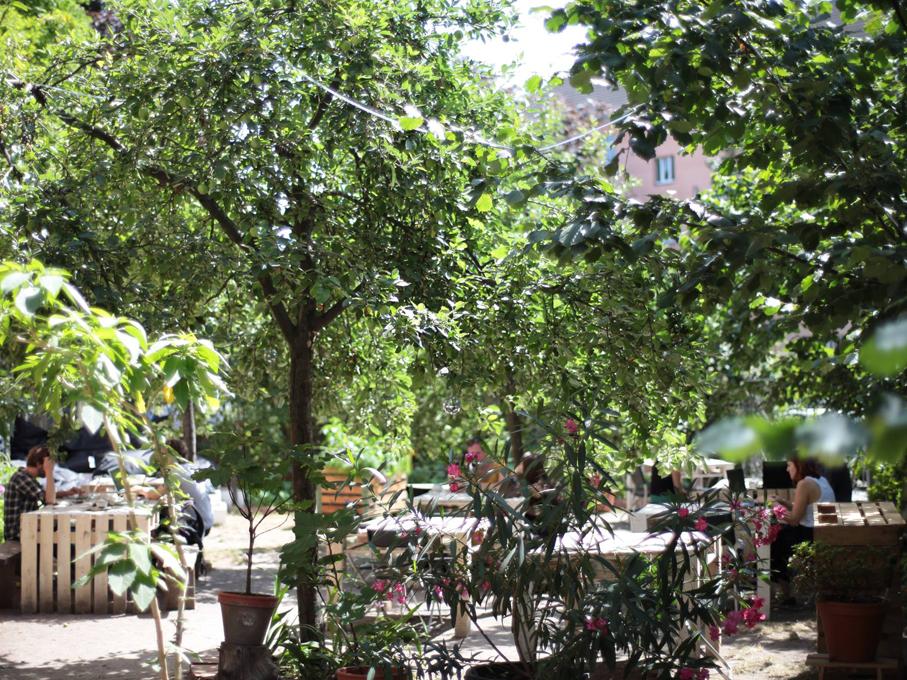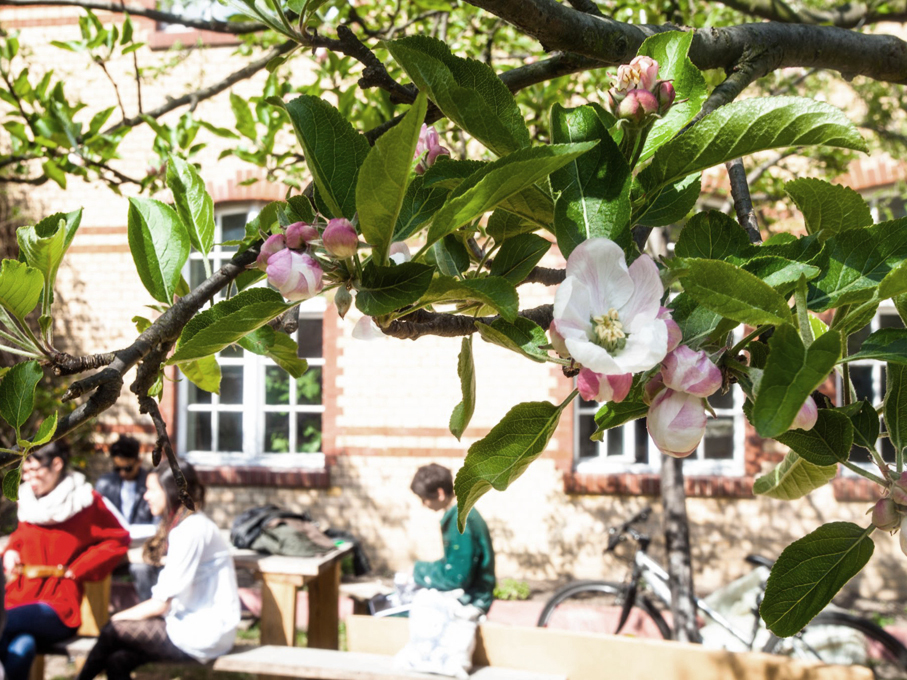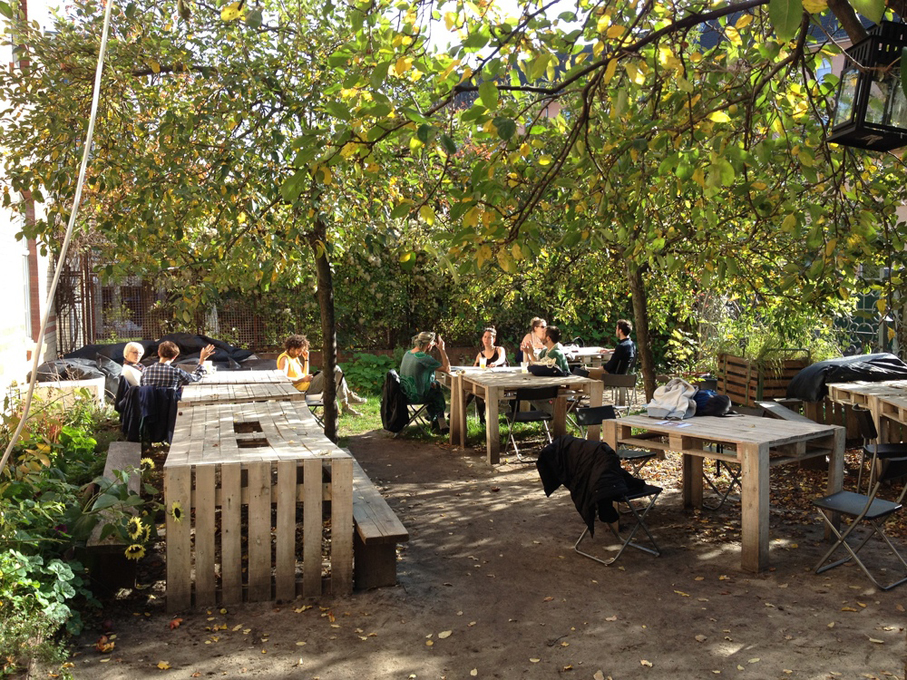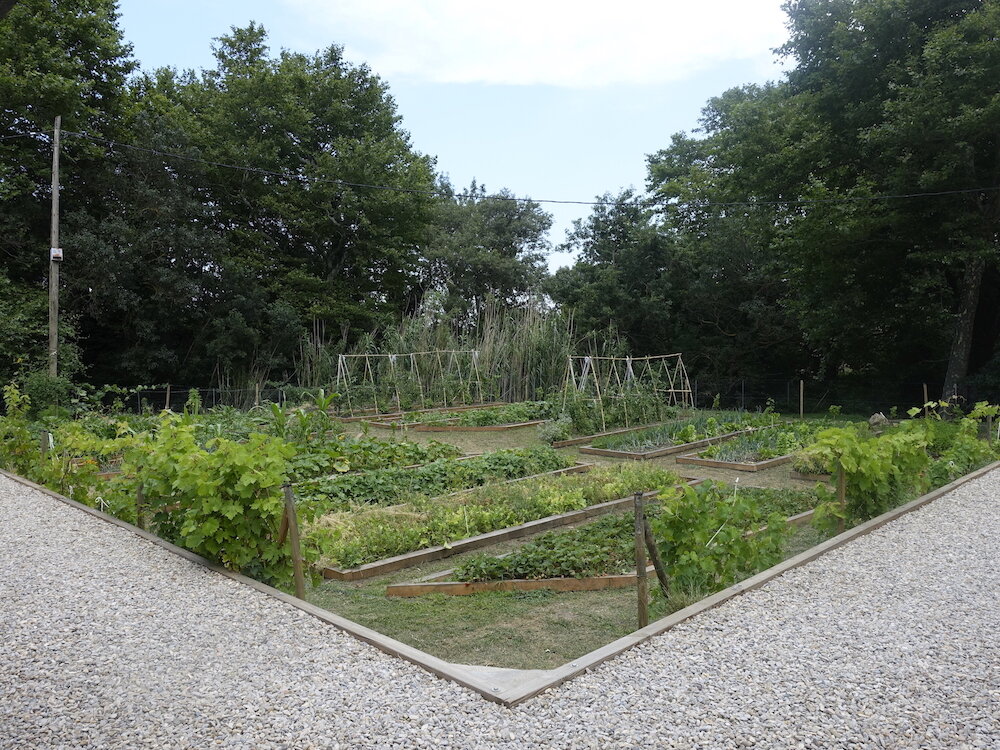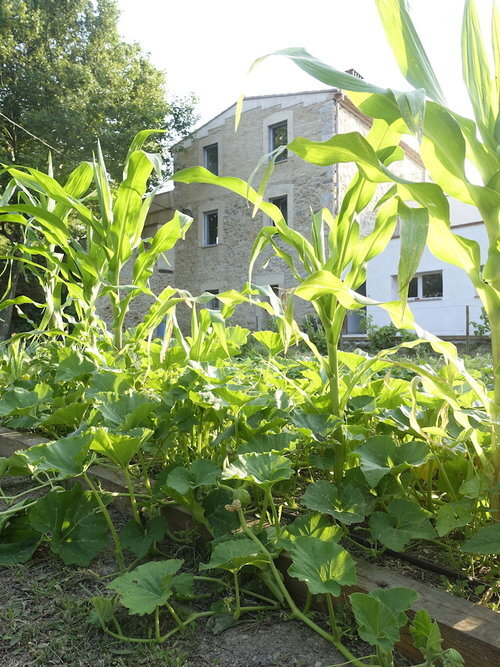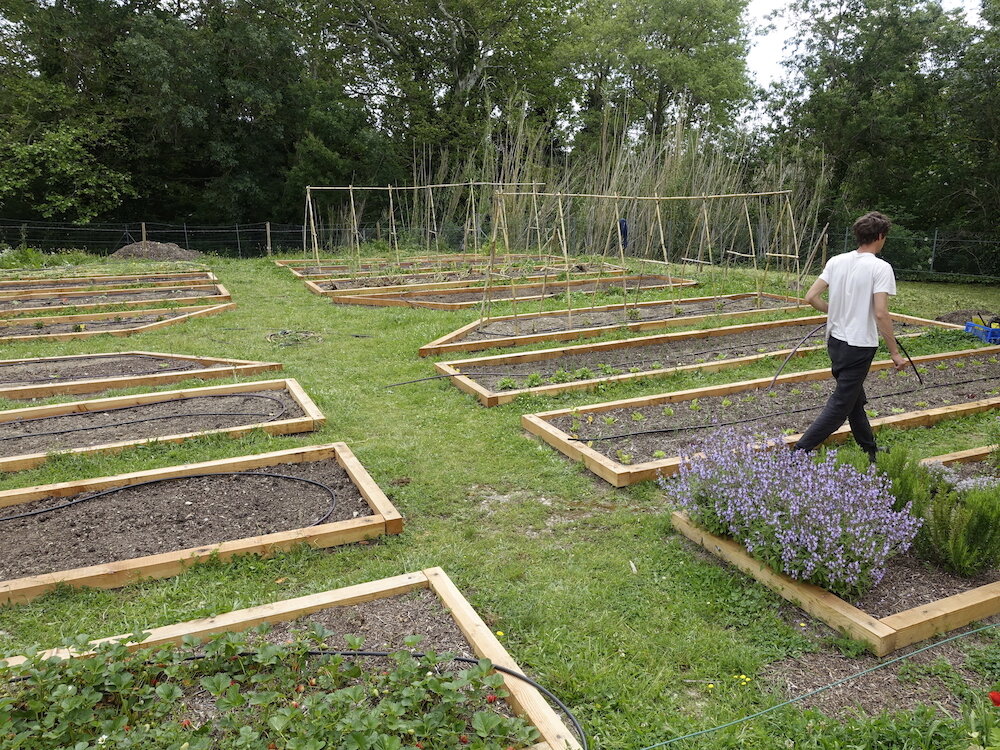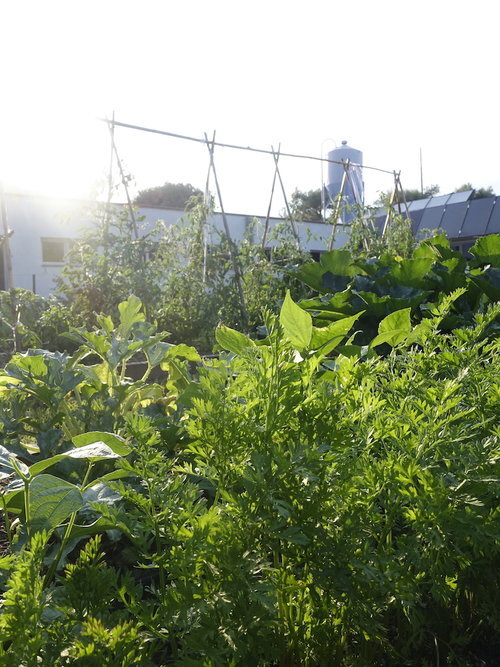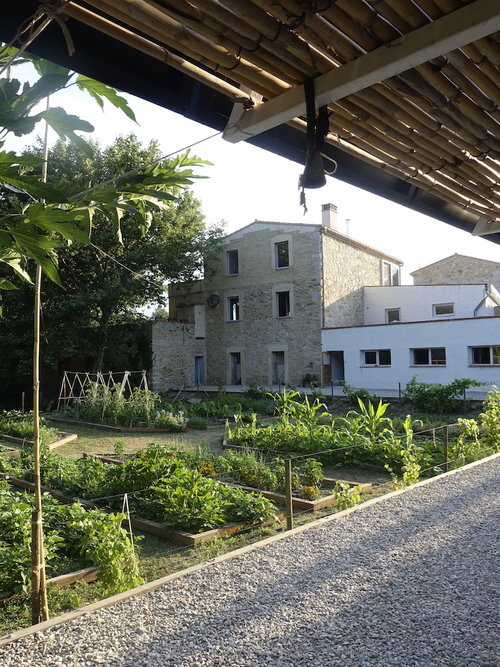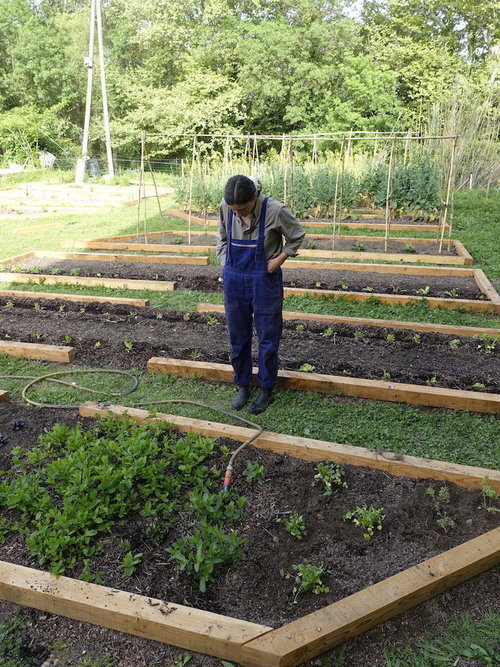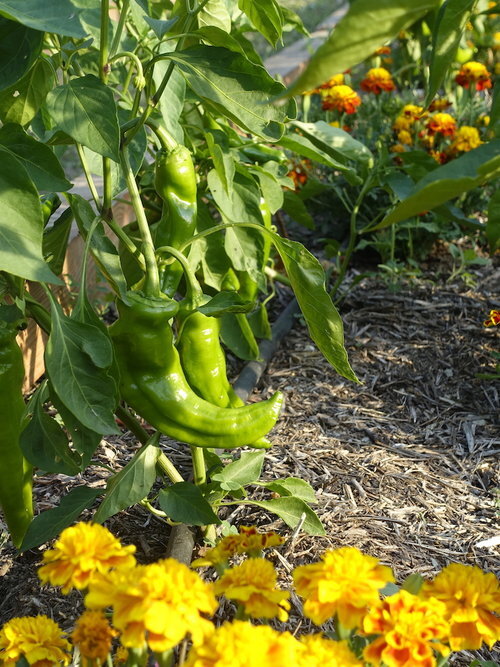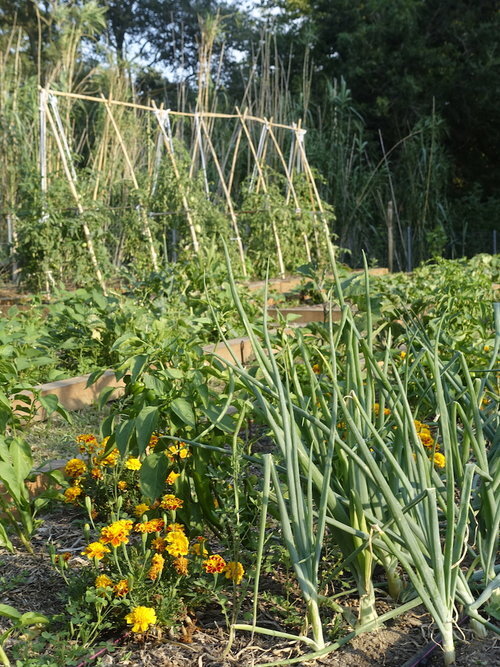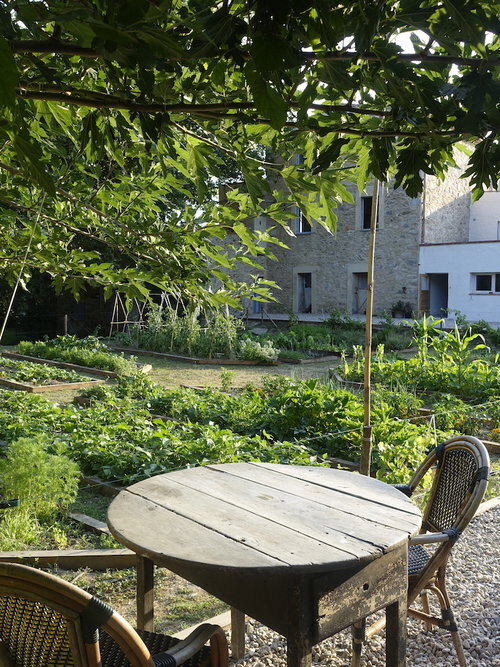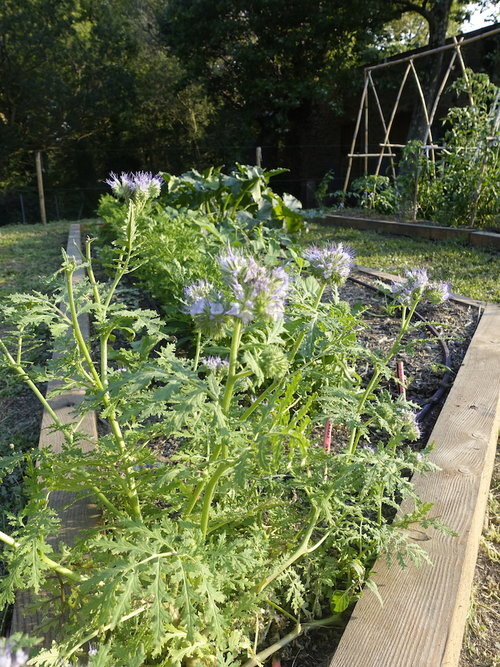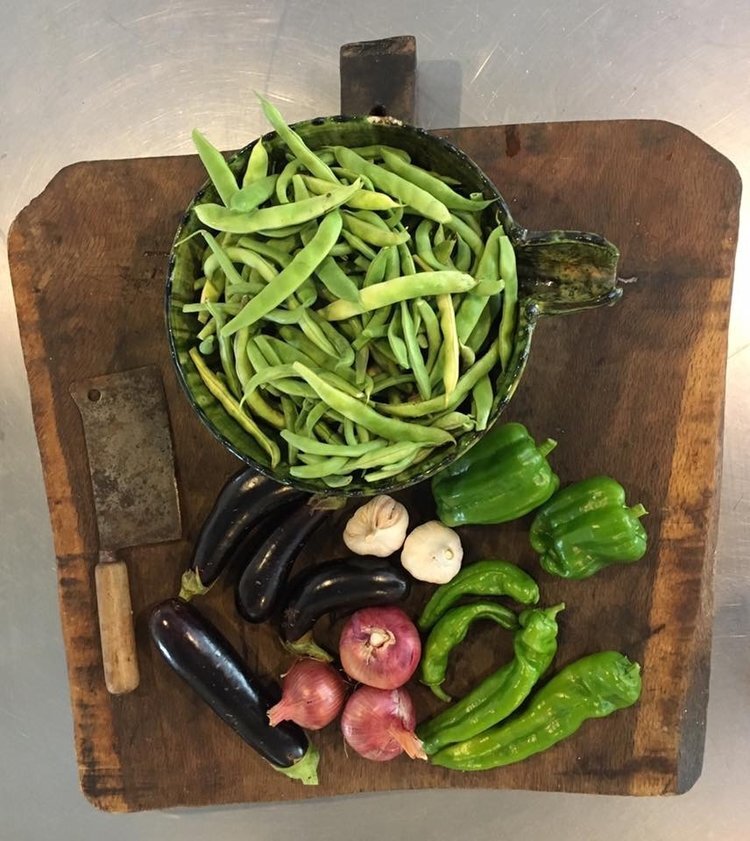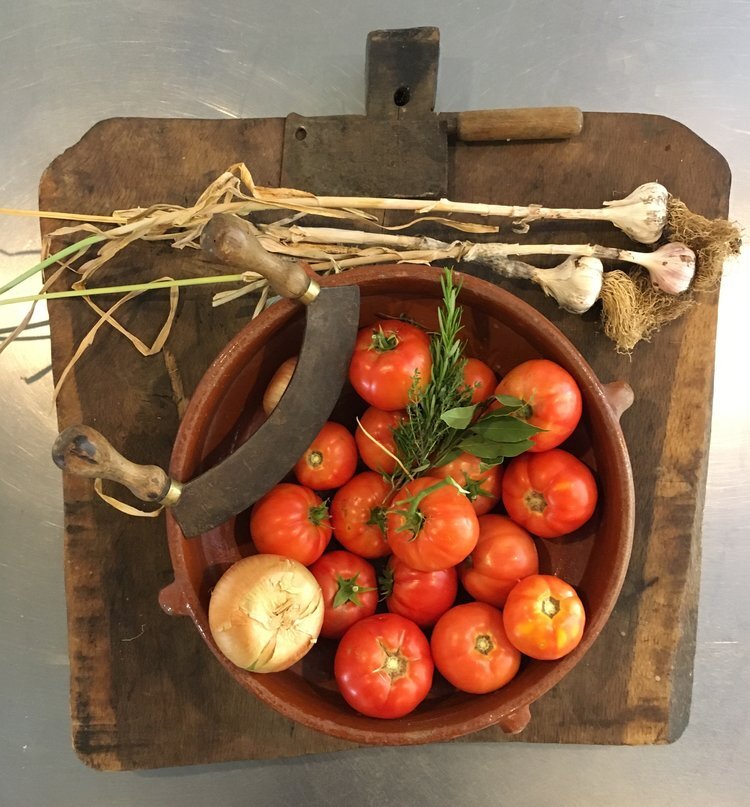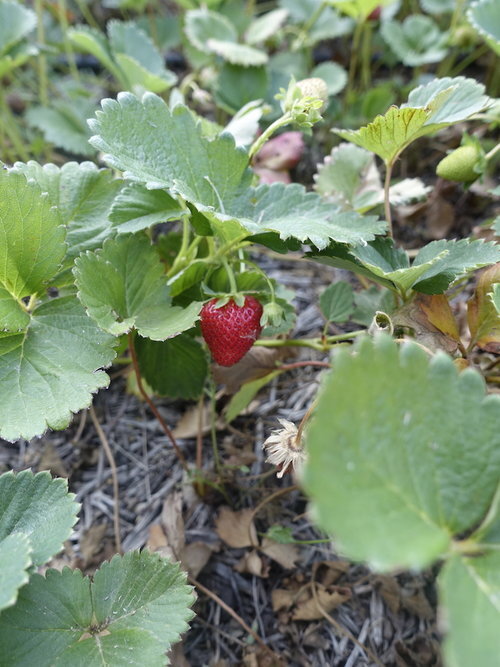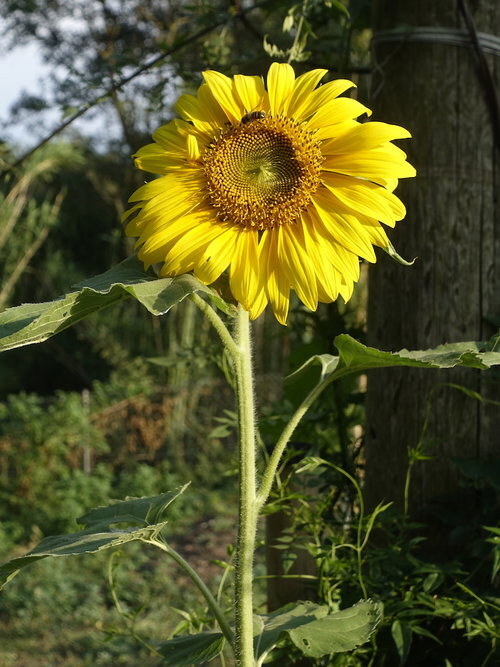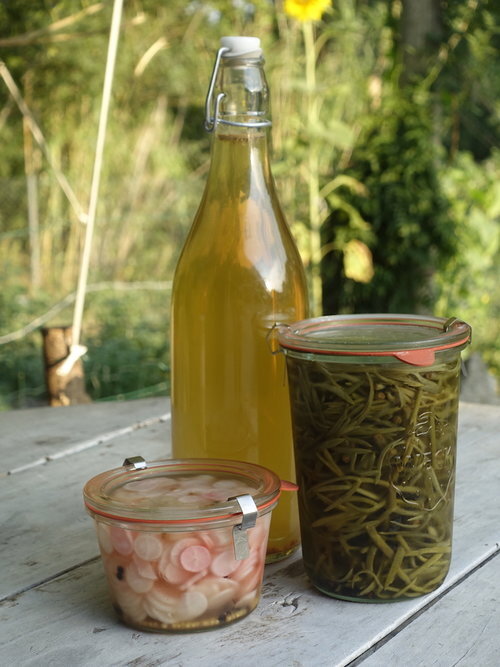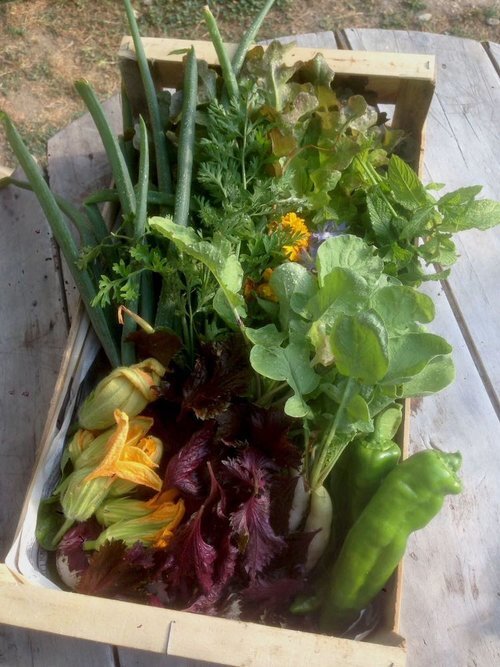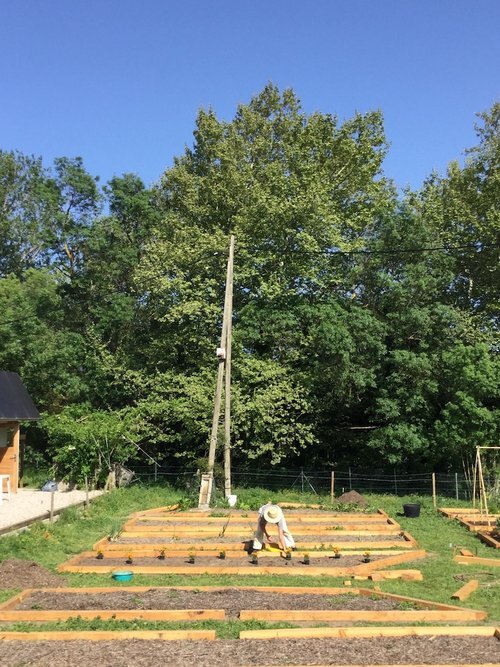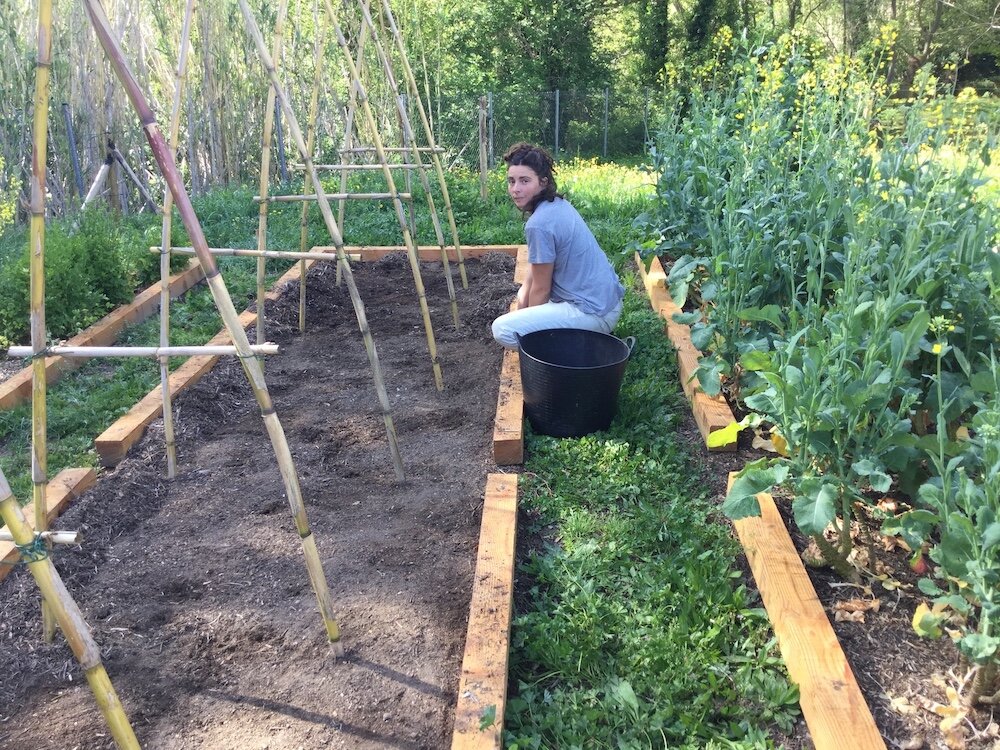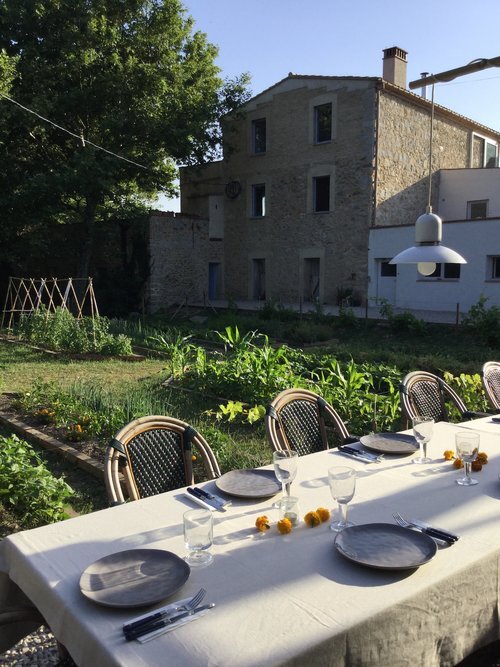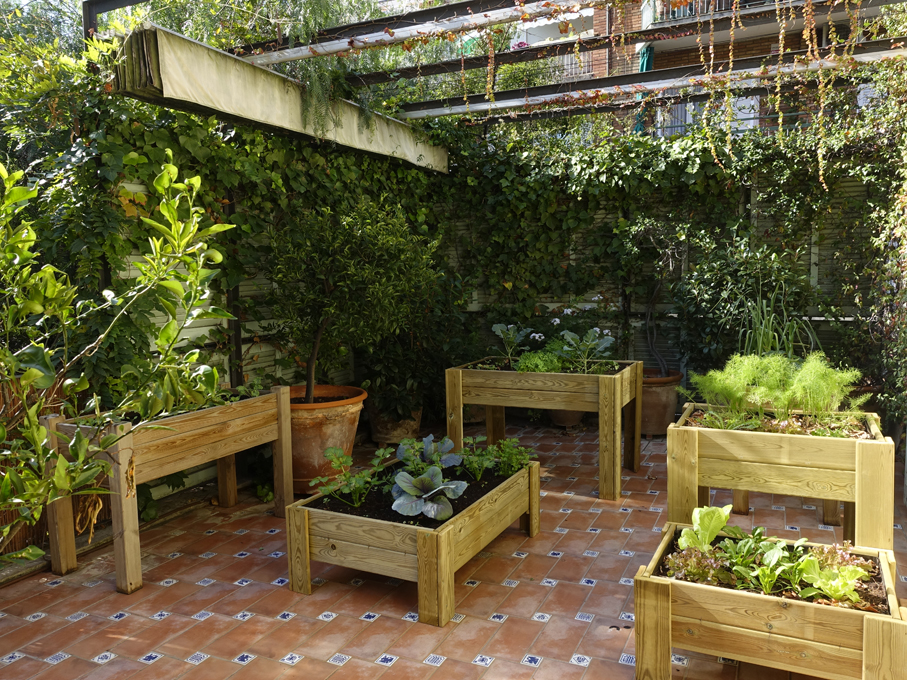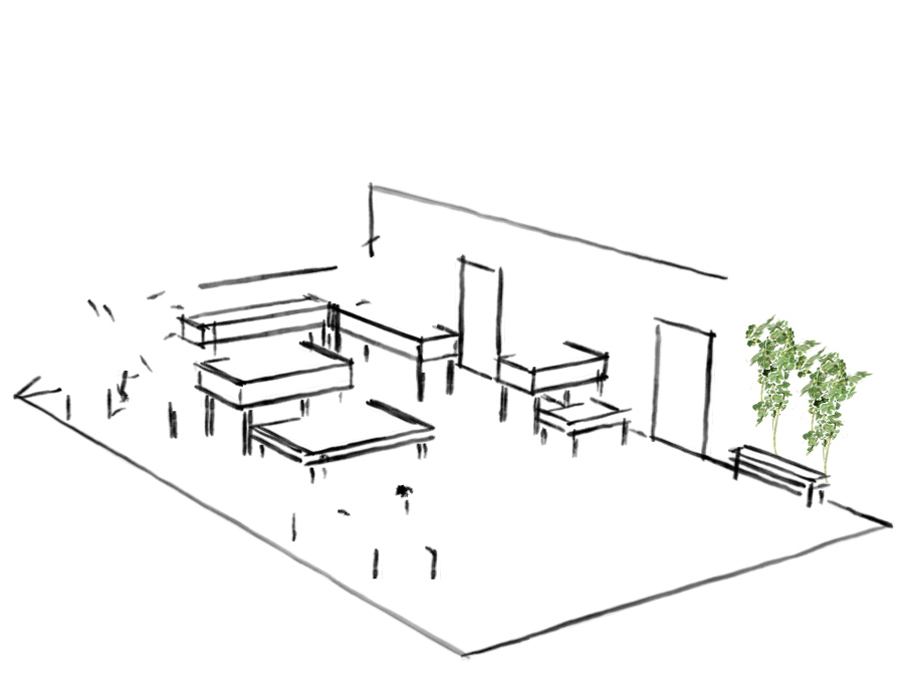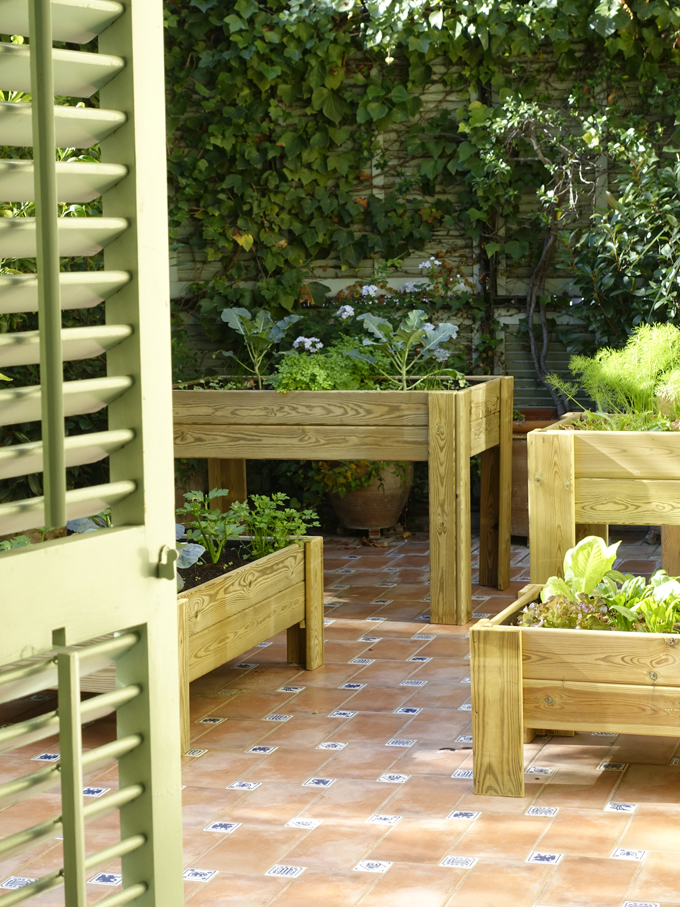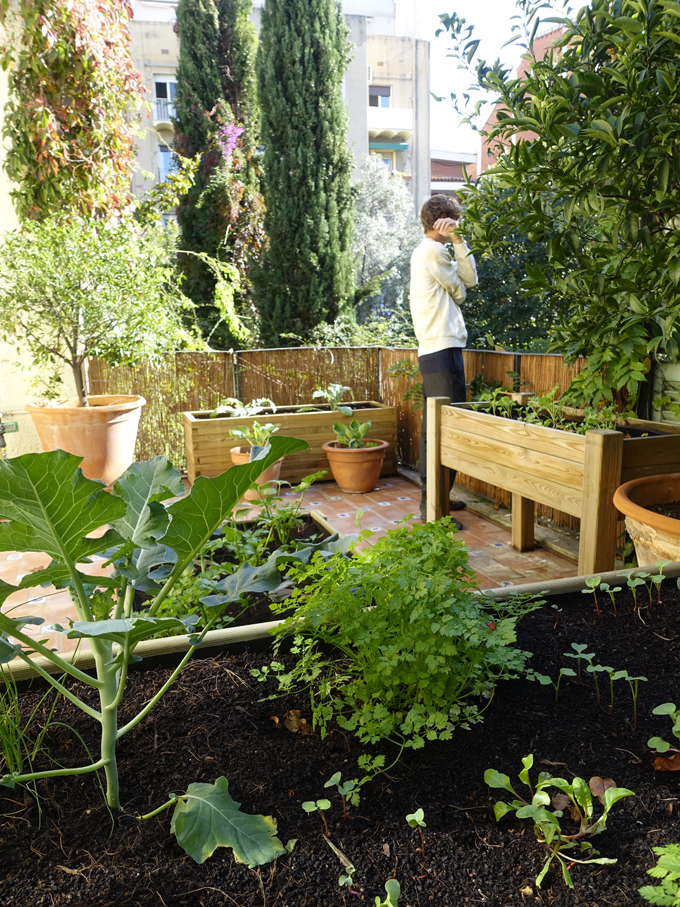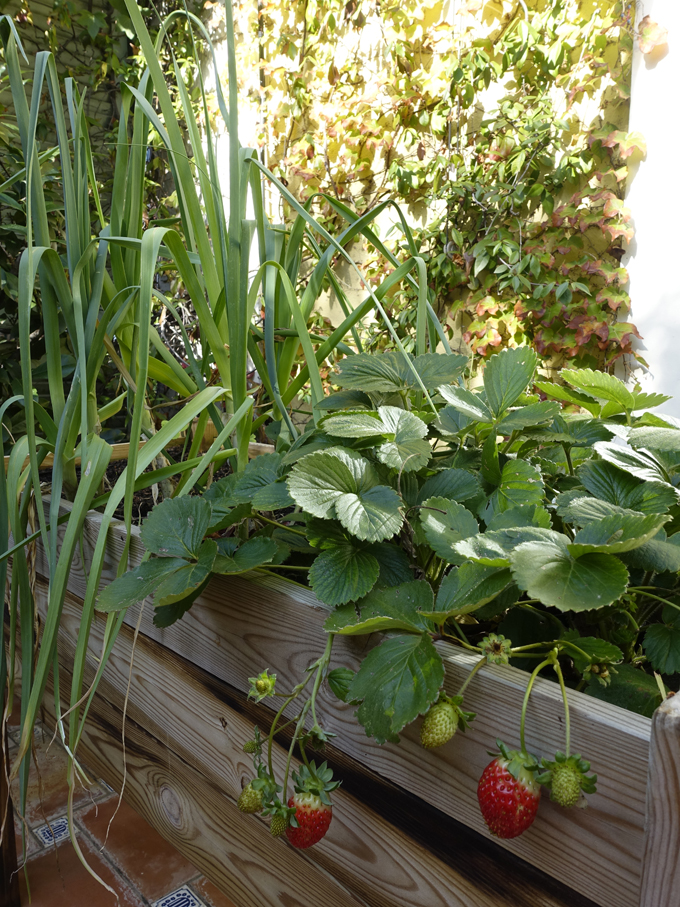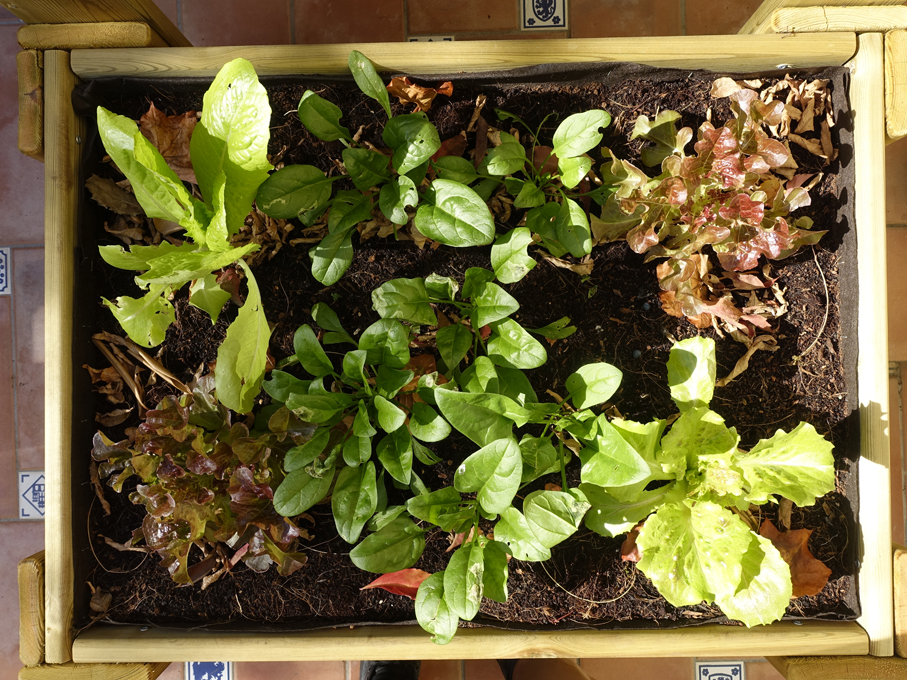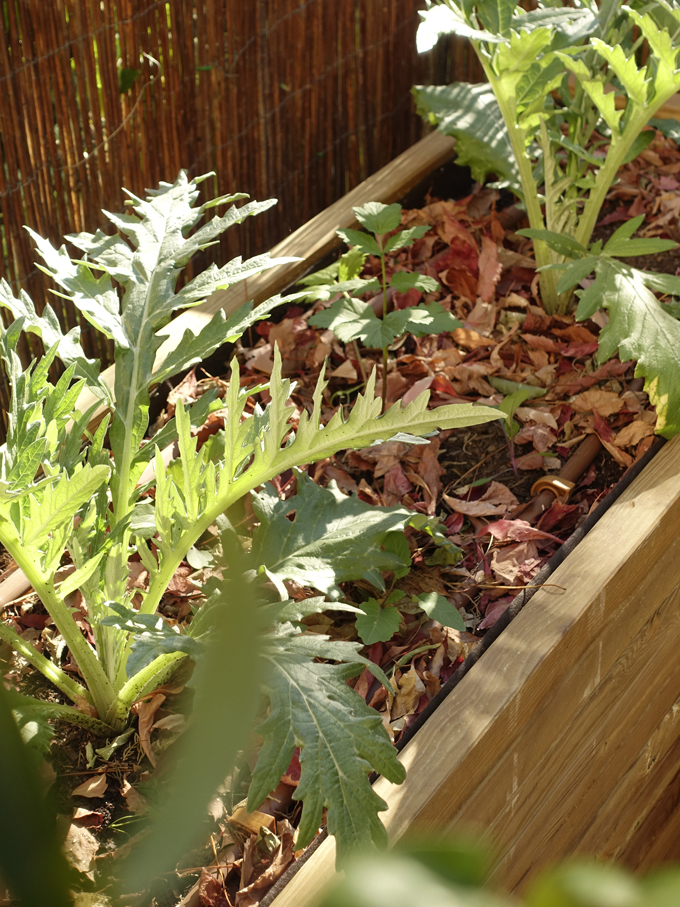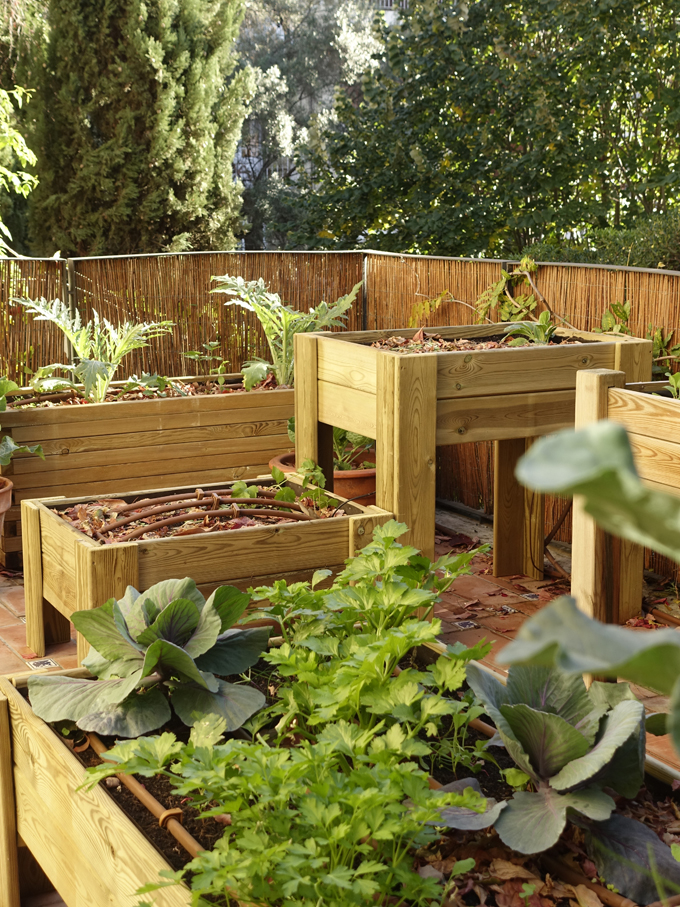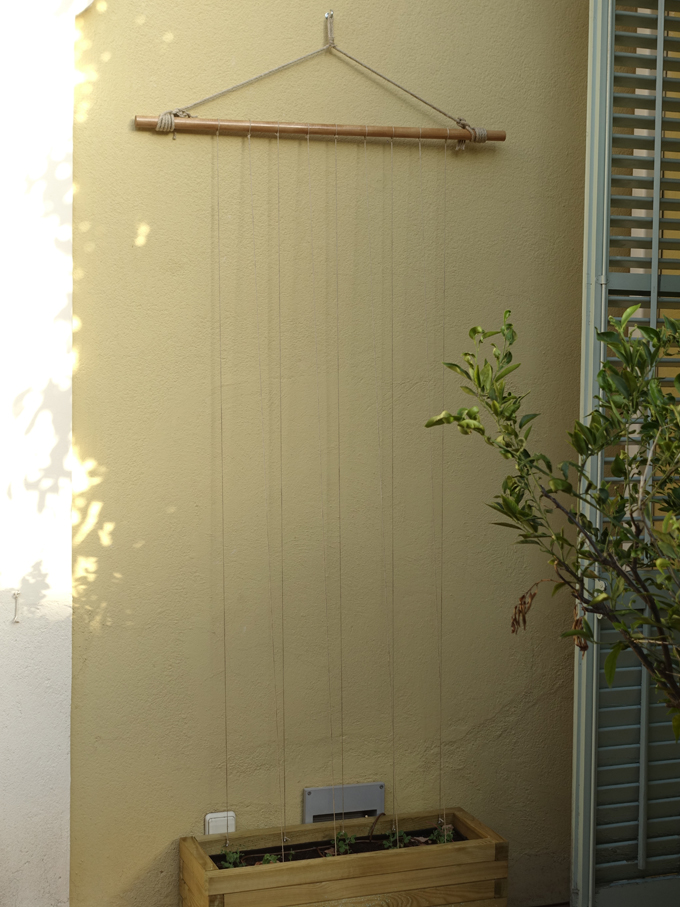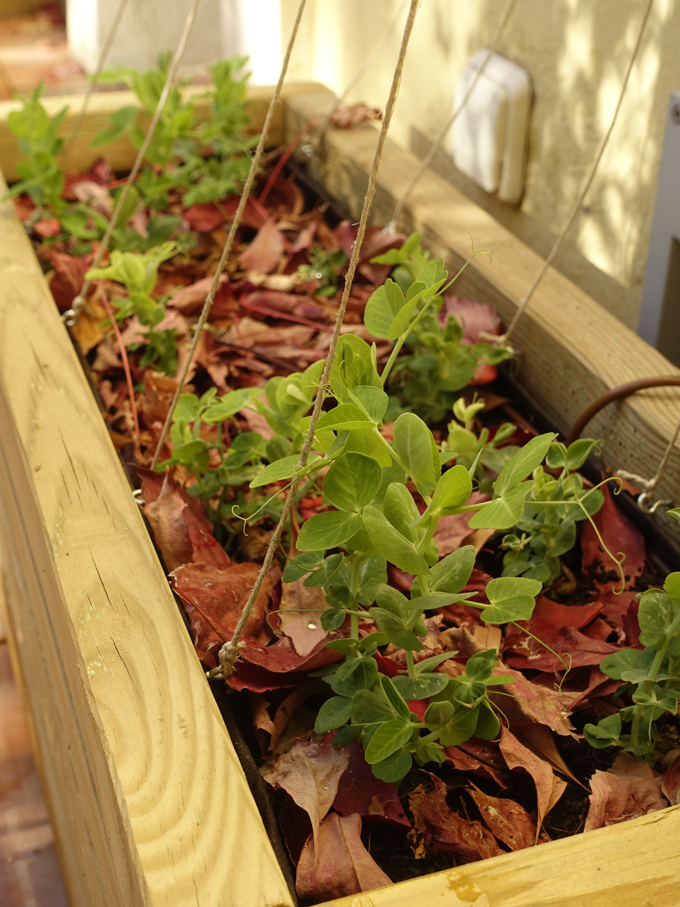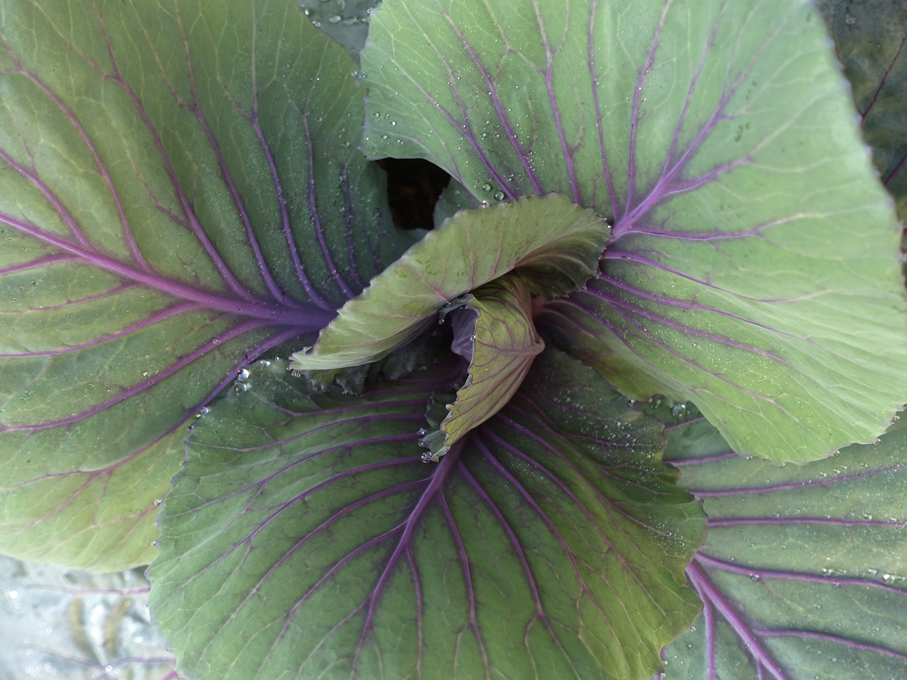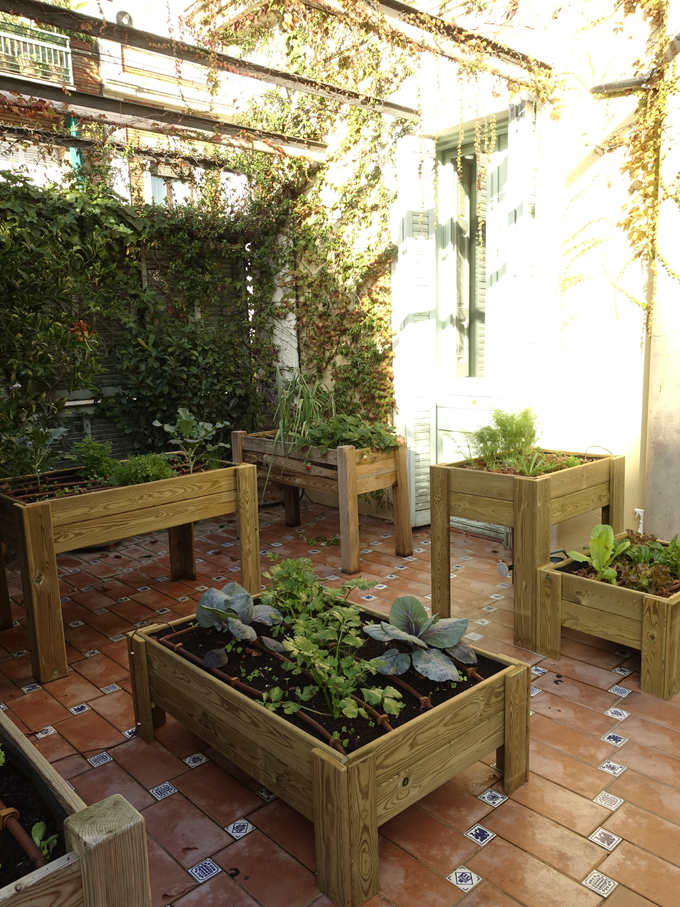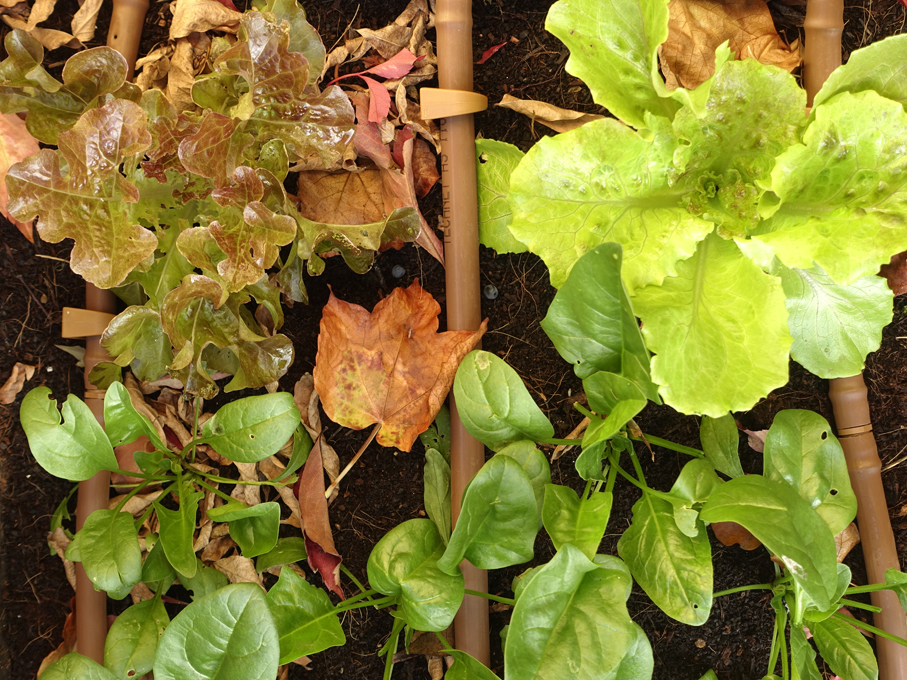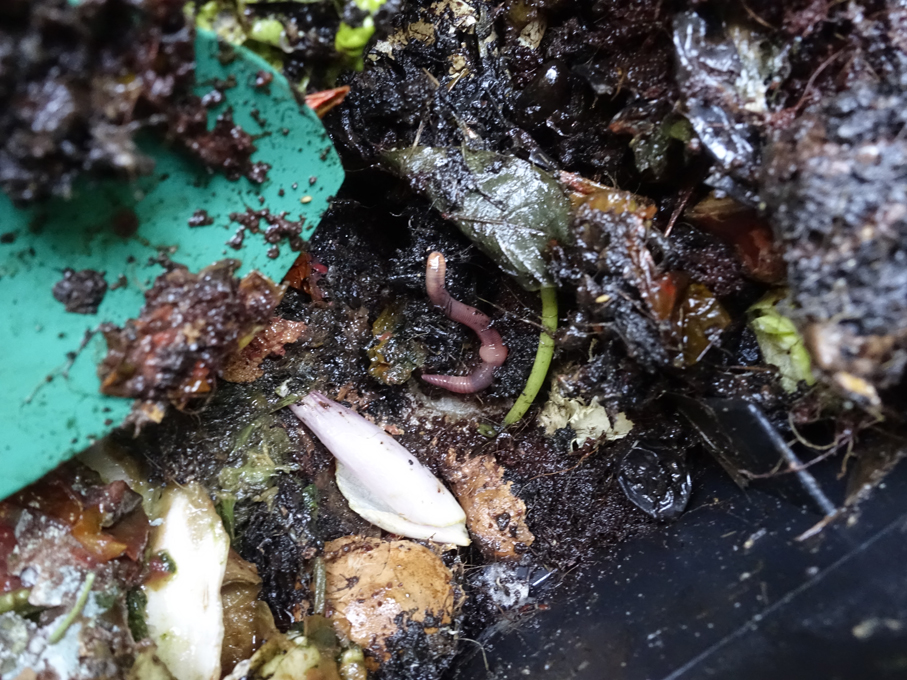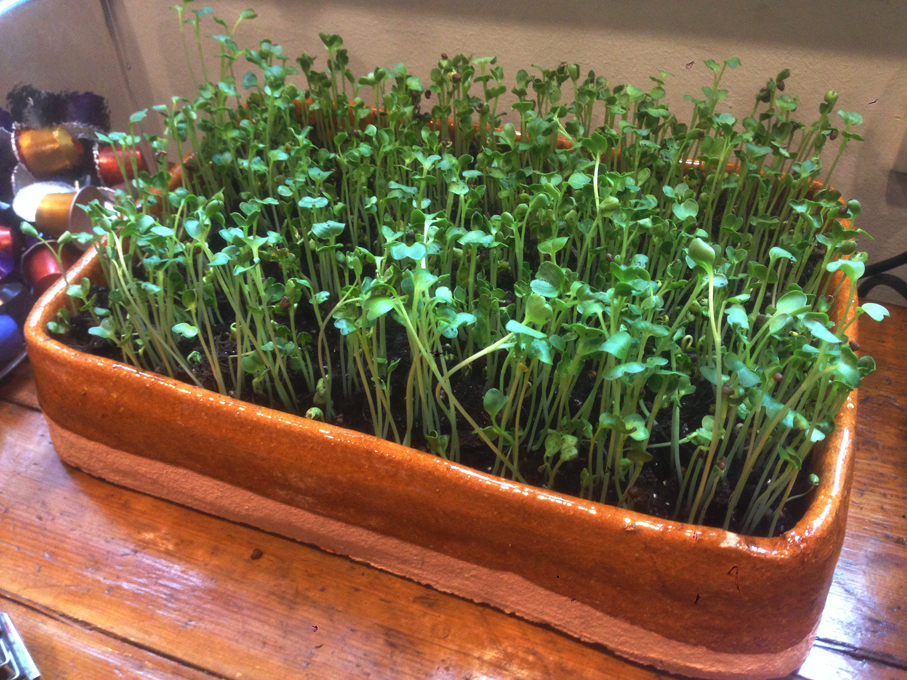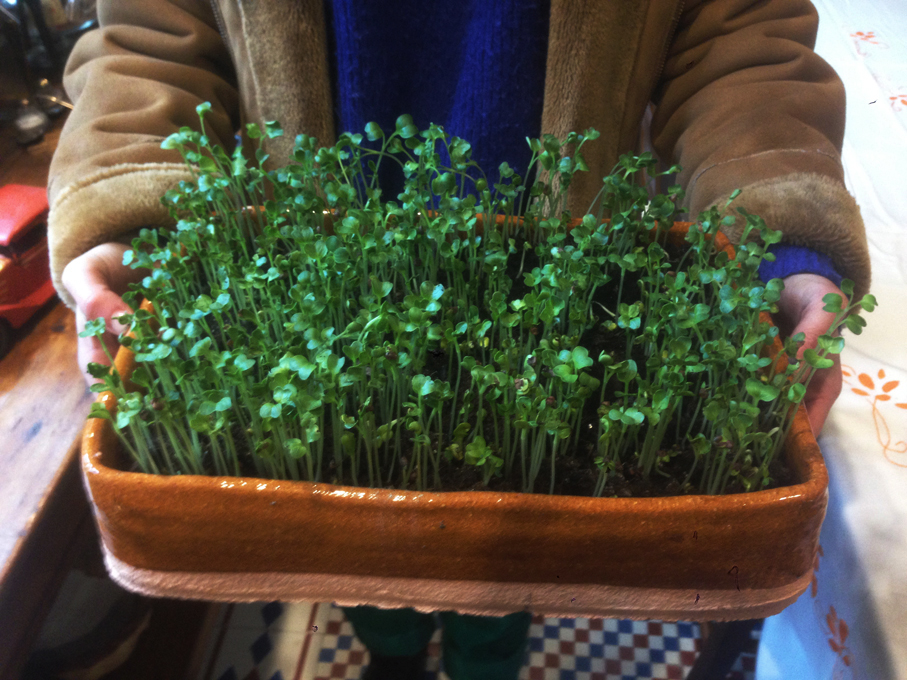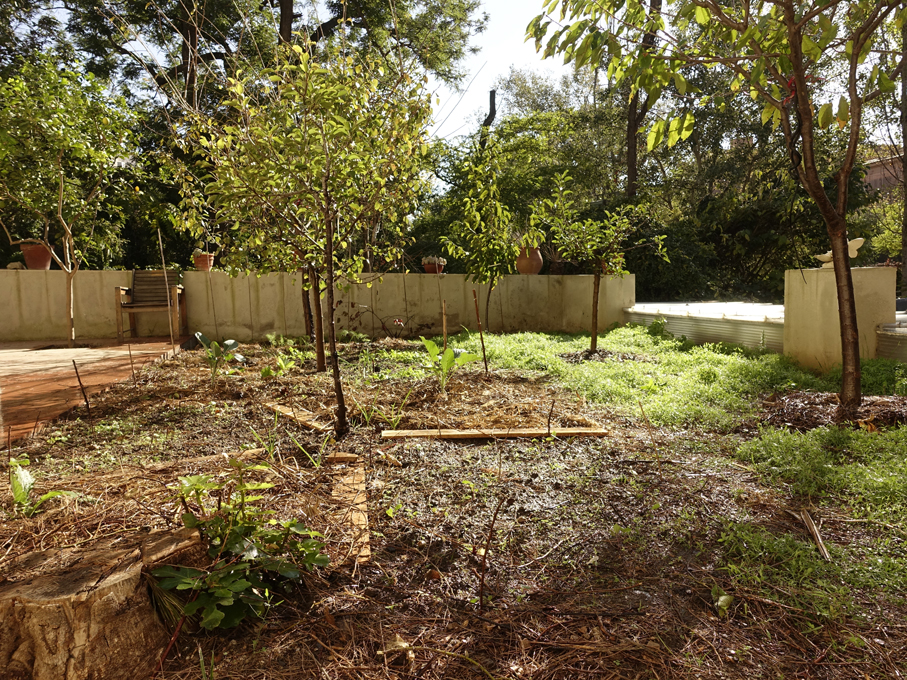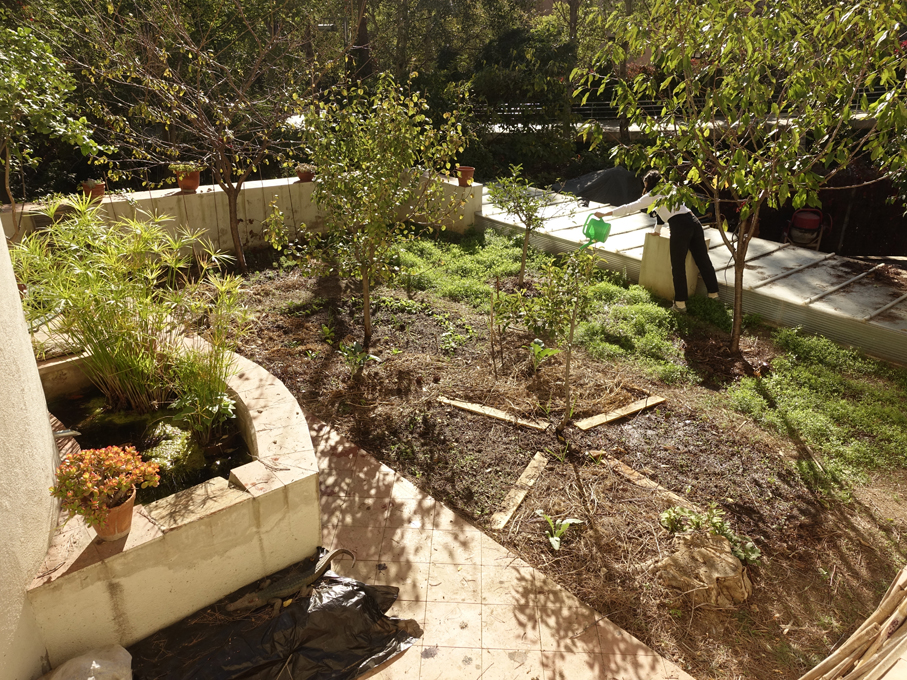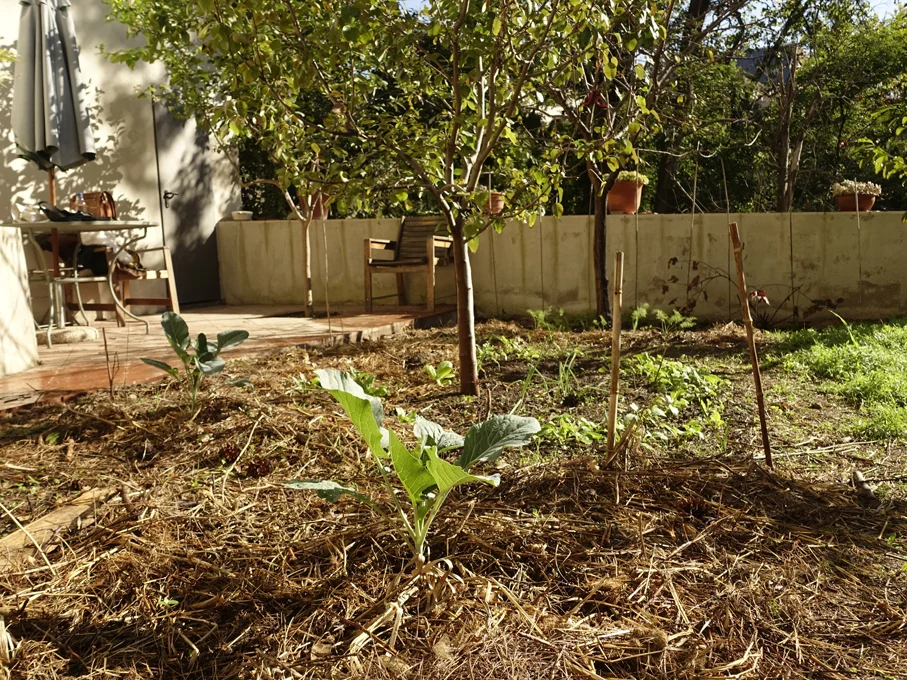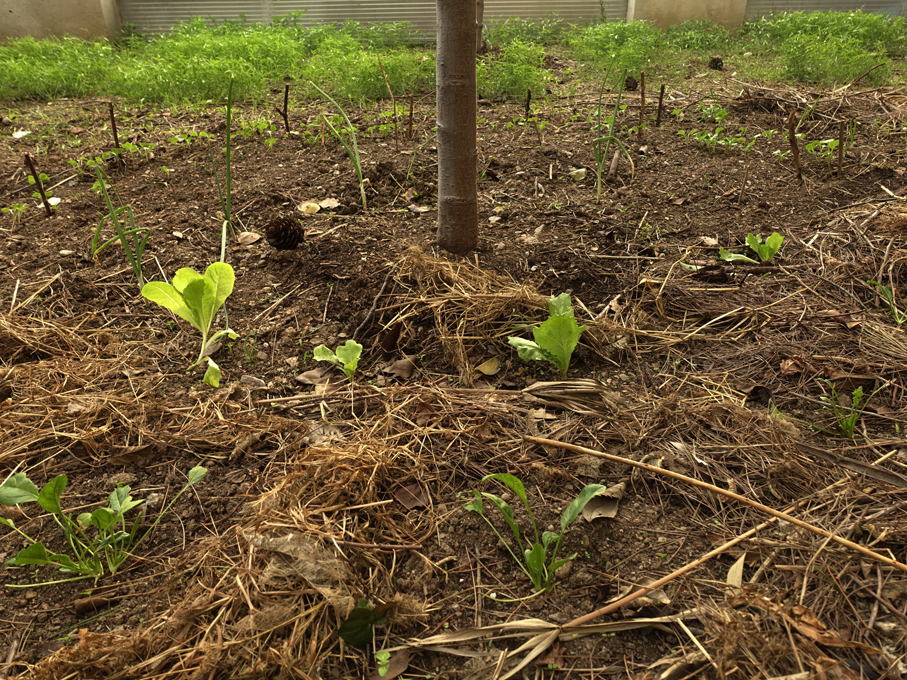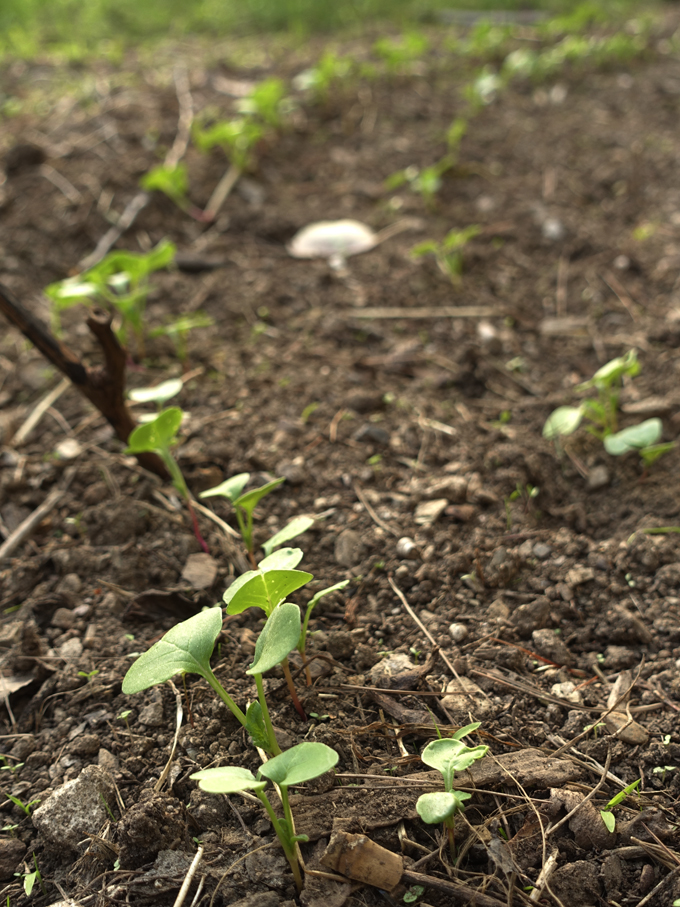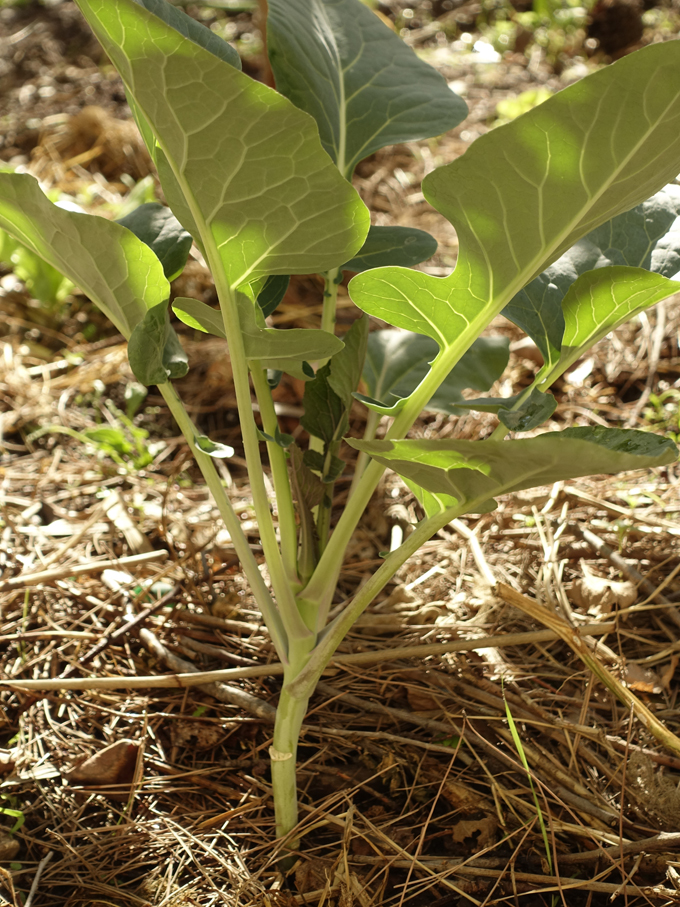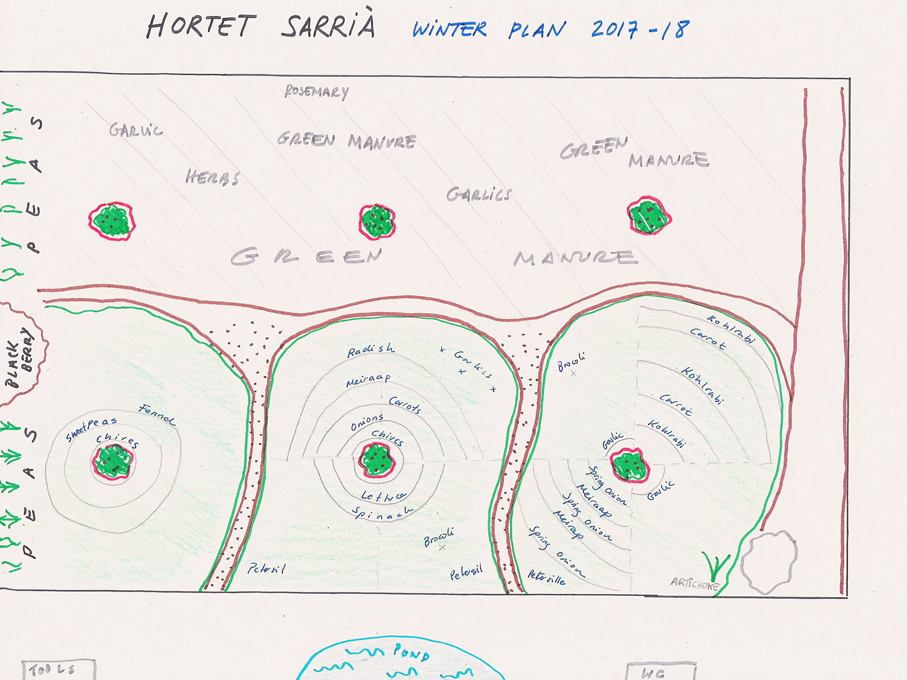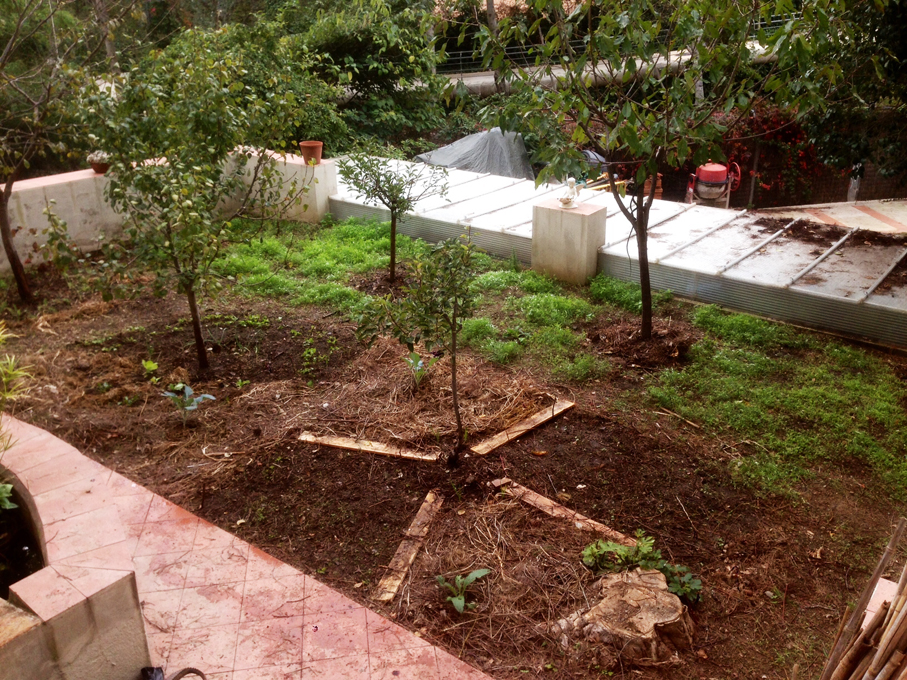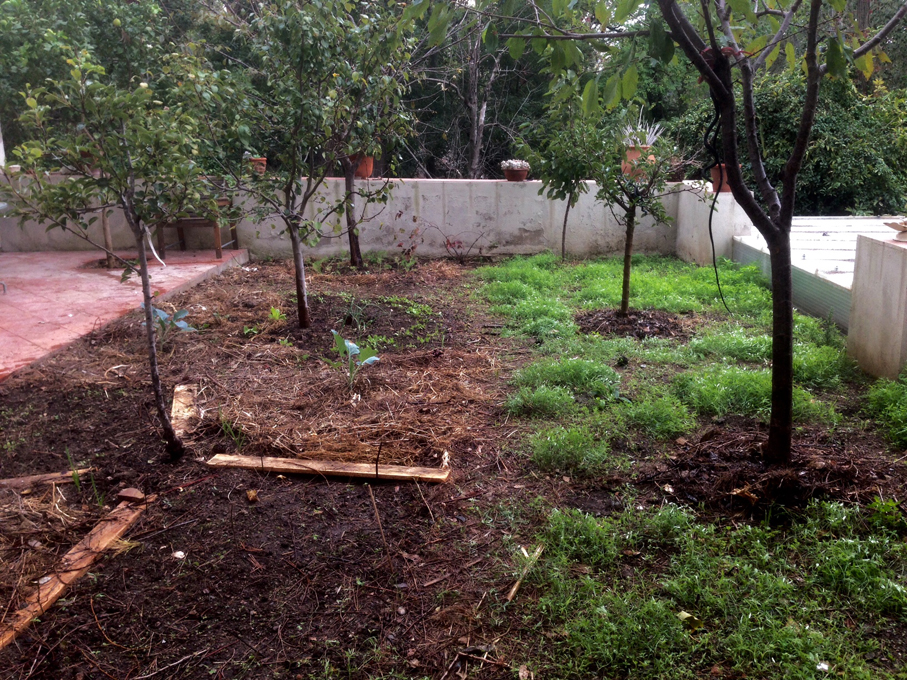GARDENS
Over the past decade we have been involved in the design, implementation, coordination and care of various gardens of all shapes and sizes in the cities we work in: from community gardens to educational gardens, from rooftop and balcony gardens to restaurant gardens and two larger-scale peri-urban projects: a large Community Supported Agriculture farm with two locations in Amsterdam, and a Permaculture Farm in Berlin.
See below for our current and past projects, and get in touch if you’d like to work with us in creating your dream garden! You can e-mail us on gardensams@cityplot.org. Read more about our private consultations here.
PLUK! GROENTEN VAN WEST, AMSTERDAM. 2017 - PRESENT
Pluk! Groenten van West is a Community Supported Agriculture (CSA) project with two locations in the Tuinen van West: the Fruittuin van West and the Boterbloem organic farm. The Fruittuin is a pick-your-own orchard full of apples, pears, cherries, berries and chickens, and the nearby Boterbloem borders the Lutkemeerpolder where Amsterdammers are campaigning for a food park instead of the city’s planned distribution centers.
The Pluk! CSA grows veggies, herbs and edible flowers for more than 200 families on a half hectare of land, together with a big crew of volunteer seeders, weeders and harvesters. A CSA is a concrete step in helping to transform the current broken food system in the direction of food sovereignty. The idea is that members pay a flat annual membership fee for harvesting their own fresh crops each week. Instead of consuming food grown in monocultures on the other side of the world, our harvesters pick their own fresh ingredients and get to know the farmers personally.
If you want to hear more about becoming part of Pluk!, please mail plukcsa@cityplot.org.
Pluk! Groenten van West is a project of the Cityplot Foundation
Stadsboerderij Osdorp, Amsterdam. 2019 - PRESENT
Stadsboerderij Osdorp is a community garden in Amsterdam’s Nieuw-West neighborhood with a focus on healthy, local, organic food. Cityplotters Ann, Naomi & Eva work twice a week with volunteers to grow a variety of vegetables and herbs to be used in the community kitchen, a local herbal teas project and for kids cooking workshops. The location hosts other integrated activities for the neighborhood, and Cityplot runs various workshops including our our Get Down, Get Dirty series here.
Want to volunteer? Send a mail to ann@cityplot.org
AS RESTAURANT GARDEN, AMSTERDAM. 2015 - 2020
For five years Cityplot maintained the herbs, berries, vegetable beds and greenhouse at Restaurant As in Amsterdam’s Beatrixpark, until they relocated. We worked closely with the chefs in determining which interesting herbs, microgreens, unusual 'forgotten' vegetables, and tasty wild plants to grow for the kitchen. Restaurant As represents 'pure cooking', serving dishes largely shaped by nature.
FOOD FOREST GARDEN FOR K.L. WEILLE & FAMILY. 2018 - 2020
In the autumn of 2018 we started this project at a private, quite wild and wooded back yard in Amsterdam West.
We came up with a permaculture based garden plan to evolve the property into a food forest garden over two to three years.
The garden implementation commenced in the spring of 2019 and we made many visits for pruning, planting and maintenance visits, all aimed at enhancing the relationship between the family and the property they share with many mature trees, shrubs, medicinal and culinary herbs, along with birds, frogs and insects. We added food and flowers and moved fruit trees around to harmonise this large space made of varied zones from deep shade in summer to west facing warmth. The sunny front garden leads to the business entrance which also operates out of the family home.
The idea was to create a very low maintenance perennial forest garden, where the family can enjoy foraging for fruit and berries and herbs. This garden should only require only a bi-annual visit from us after 2020, and to that end, our visits also include garden education for our clients.
Tugelahuis Kindertuin, Amsterdam. 2016- 2018
Co-coordination of Children's programme
The Tugelahuis Kindertuin is a special spiral garden for children from the Transvaal neighborhood in the east of Amsterdam. Over the past years we have joined garden founder and coordinator Eva DeCarlo in a successful series of workshops, both during and after school. From seed to harvest, the children tend a variety of organic vegetables, herbs, and edible flowers from which we make beautiful and healthy snacks together.
Curious Finch, Amsterdam. 2012-2016
Cityplot educational garden
The Curious Finch is an educational garden focused on learning and teaching about growing organic edibles – vegetables, herbs, flowers, mushrooms and fruit – in small spaces. The garden was set up in 2012 in order to address the issue that urban dwellers increasingly want to grow their own food but lack the necessary tools and training. Together with a group of volunteers, we created a garden focused on the most relevant sustainable urban farming crops and techniques. The educational garden was divided into small plots and areas that each demonstrate different aspects and techniques of urban growing: permaculture, biodynamic growing, seed saving, composting, herbs, wild plants, mushrooms, edible flowers, companion planting, berries, and heritage crops.
Regular hands-on workshops were organised in the Curious Finch on themes including composting, beekeeping and permaculture techniques. We also held regular children’s workshops with activities such as building fairy houses, treasure hunts through the garden, identifying insects and pollinators, collecting and planting seeds, and foraging and making snacks with wild plants.
A group of volunteers took up coordination of the project from 2017; we remain in close contact.
Open Coop Kantine, Amsterdam. 2013-2016
Growing and harvesting salads and herbs for the kitchen
Starting in 2013, Cityplot took care of the Kantine Garden at the Open Coop in the Tolhuistuin, a short ferry ride from behind central station to Amsterdam North. We grew herbs, salads, vegetables and edible flowers for the kitchen, which was renowned for serving delicious and healthy salads every weekday at lunchtime. We also set up a worm composting system at the Open Coop in order to recycle the kitchen’s vegetable waste into compost for the containers. In total we maintained around 30 food boxes. Unfortunately, the Open Coop Kantine closed in 2017.
The Green Living Lab, Amsterdam. 2015-2016
Teachers in Green Student Bootcamp Challenge
The Green Living Lab (Het Groene Leven Lab) is a unique natural lab in an urban environment in the South of Amsterdam where scientists, technical experts, artists and businesses meet to stimulate healthier urban living. Starting in 2015, Cityplot has provided edible gardening workshops, and helped to plan and coordinate work days in the garden. In 2016, Cityplot taught the gardening classes during the Green Student Garden Bootcamp Challenge: find out more here!
(http://greenlivinglab.org/our-programmes/green-student-bootcamp-challenge-2016/)
I Can Change the World With My Two Hands, Amsterdam. 2015-2016
Coordination of garden workdays
This organic inner garden is a paradise in the heart of Amsterdam West. The production garden grows food for the local food cooperative and neighborhood restaurants. In 2015 and 2016, Cityplot coordinated the regular work days there for volunteers in the garden.
Kruidenpluktuin, Amsterdam. 2014-2016
Children's workshops
Starting in 2014, Cityplot gave workshops for children at the Herb Garden at the Weteringplantsoen in central Amsterdam. The children had their own little garden, which we planted up with bee and butterfly-friendly plants. During the workshops we learned about the edible and medicinal properties of several herbs.
Activities at the workshops included making herbal teas, propagating herbs from cuttings, learning about pollinators and other useful garden insects, building an insect hotel, making catnip mice, rolling seed balls with bee-friendly flower seeds, tasting local honey, playing ‘insect bingo’, hunting for medicinal herbs, saving seeds from the garden, making pesto, and filling ‘dream pillows’ with herbs.
Soeptuin Bredius, Amsterdam. 2016
Get Down Get Dirty Workshop series for gardeners
This garden in the Spaarndammerbuurt of Amsterdam grows fresh vegetables and herbs for the local food bank. In addition to delivering fresh crops, the ‘soeptuin’ (soup garden) serves as a green meeting place for the neighbourhood. Soeptuin Bredius is organised entirely by volunteers.
In 2016, Cityplot gave a series of workshops to the gardeners on soil health and crop planning for a balanced garden.
Get in touch if you’d like to join in the garden team of this amazing project: soeptuinen@gmail.com.
Greenpeace International, Amsterdam. 2013-2016
Rooftop gardening workshops
Starting in 2013, Cityplot gave regular workshops for the staff at Greenpeace International in Amsterdam, helping them get their edible roof garden started. Our role included setting up a crop plan for the entire year together, and starting up a worm composting system. The staff enjoyed harvesting herbs and salads for their lunch!
Watch a video of one of our Greenpeace workshops.
Vrouw & Vaart, Amsterdam. 2014
Get Down Get Dirty Workshop series for gardeners
We were pleased to be invited to give a series of workshops in 2014 at the Vrouw & Vaart women’s empowerment center in Nieuw West. Here women from many different cultures and backgrounds grow and harvest food together, and prepare delicious meals in their communal kitchen. Cityplot set up a worm composting system with the women, and gave a series of practical and theoretical workshops including crop planning, plant identification, creating balance in the garden and seed saving.
Van Beuningenplein Cafe Pavilijoen, Amsterdam. 2014-2015
Growing and harvesting for the Cafe kitchen
Cityplot worked with the chef of this cosy Mediterranean cafe to create a rooftop garden full of herbs, flowers and ingredients for Shashouka, the kitchen’s specialty. We harvested regularly for the kitchen, and also taught our Get Down, Get Dirty gardening series on the rooftop for city dwellers keen on setting up their own gardens in the sky.
Curacaostraat, Amsterdam. From 2007
Get Down Get Dirty Workshop series for gardeners
As one of the very first Cityplot workshop locations around the corner in Corantijnstraat (2008), this project went through all the city regulation red-tape and social growing pains a new urban gardening project could entail. We are very proud of this group, that brought the neighbourhood outside and grew a beautifully productive sidewalk garden together, which now acts as a vibrant neighbourhood social hub. The participants are largely independent now, as it should be…
A great location to drop by if you’re near Surinameplein.
“Inside the Flower” IGA Pavilion, Berlin. 2017
Botany, plant history and mythology meet architecture at the International Garden Exposition.
Both Cityplot and LAVA Architects joined forces with the Australian botanical artist Janet Laurence, creating a “Wunderkammer” pavilion for the ‘Internationale Garten Ausstellung’ (IGA), which took place in Berlin in 2017. The pavilion gradually changed shape as the year progressed, being taken over by vines, flowers and various shades of green. The interior displayed a lab-like setting, in which plants at home in the Berlin climate were displayed as an installation. The fine line between plant toxicity and medicinal plant qualities was central to the “Inside the Flower” theme.
Agora, Berlin. 2015-2016
Initial Cityplot Berlin Workshop location
The Agora garden started with our gardening team building up the soil structure and experimenting with this cafe garden parallel to the launch of the workshop programme in 2015. Aside from workshop participants getting dirty, a tirelessly enthusiastic team met once a week to exchange and put permaculture knowledges into practice. Our gardening sessions blended into the Wednesday Agora programme (lunch, farmers market, food assembly, and pop-up dinner and food-related lecture series).
MAS FLAQUER, CANTALLOPS, ALT EMPORDÀ. 2018
Our latest project has consisted of the design, creation and maintenance of this splendid 200m2 garden for a rural bed&breakfast in the Alt Empordà.
The location of the garden, protected from the wind by the adjacent buildings, together with the natural barrier of the vineyard, has allowed us to cultivate plants without suffering from the harsh climate of the Albera area.
We proposed a design with wooden terraces arranged in a large geometric mandala that fits the minimalist style of the house. In order to protect the soil and retain as much water as possible, we have applied a mulching system with fairly large wooden shavings, so that they cannot be blown away by the wind.
The aim was to provide quality vegetables, flowers and herbs for the restaurant, which offers dinners for its customers and also catering for private events.
At the same time, we have installed an automatic irrigation system and two composting systems for the restaurant’s organic waste, making it an excellent fertiliser for garden plants.
MAS YEBRA HOUSE, BARCELONA. 2017- present
From growing food to cycling nutrients
Our client wanted to have a terrace where she could grow vegetables and herbs for a family of two. We set up growing tables at the house's southwest-facing terrace that provide edible plants all year around.
We also installed a microgreens system in the kitchen and a worm compost system to recycle food scraps and obtain compost for the garden.
L'HORTET DE SARRIÀ, BARCELONA. 2017 - 2020
Bringing a garden back to life
When we took over this plot, the space lacked a design and its six fruit trees had been put in a secondary role and become sick.
Our idea for the new design has been highly influenced by our desire to restore the importance of the fruit trees.
We will first build good healthy soil, as we begin planning a perennial edible and medicinal garden around the trees in order to help increase biodiversity, bring them back to health, and provide food and medicinal plants for the client.
